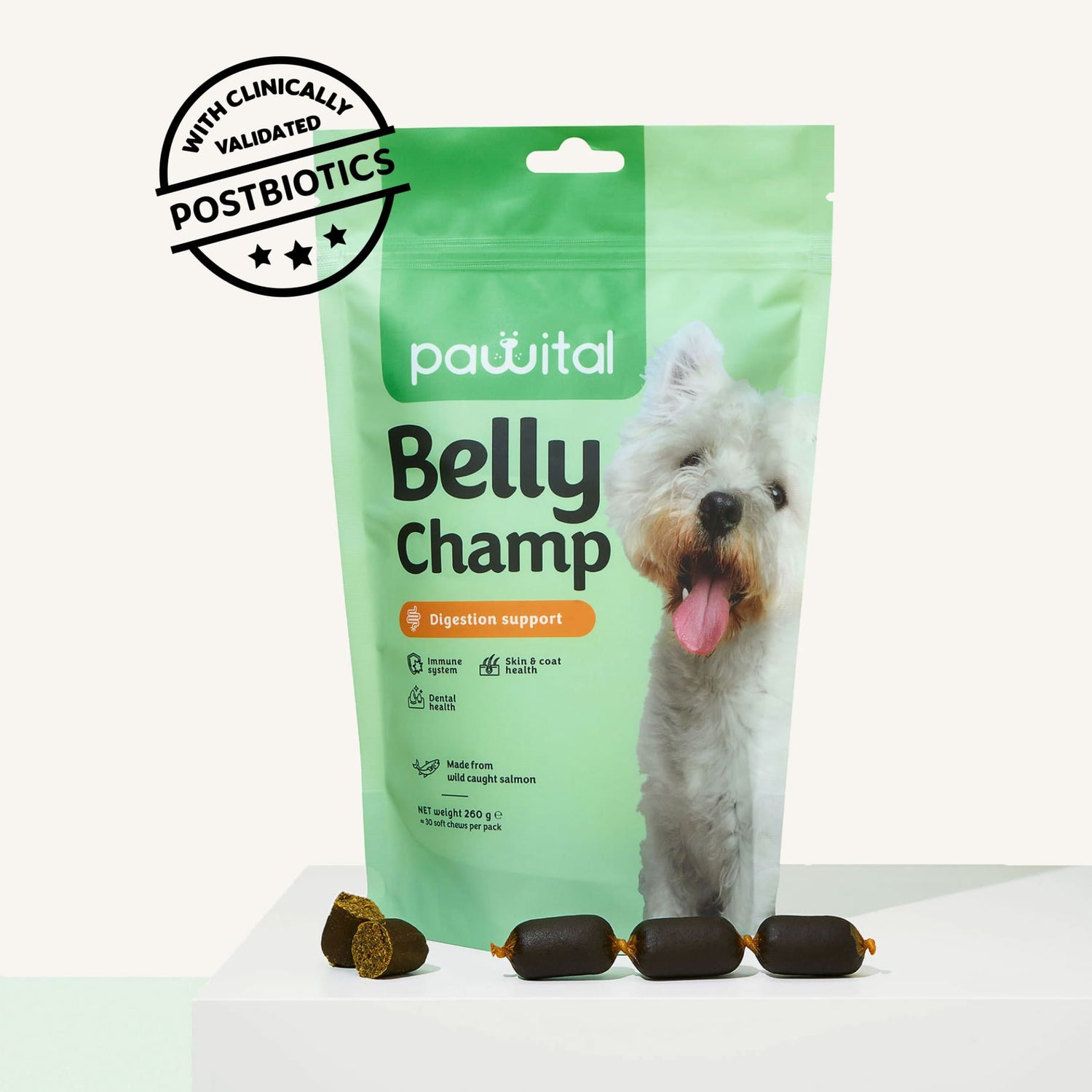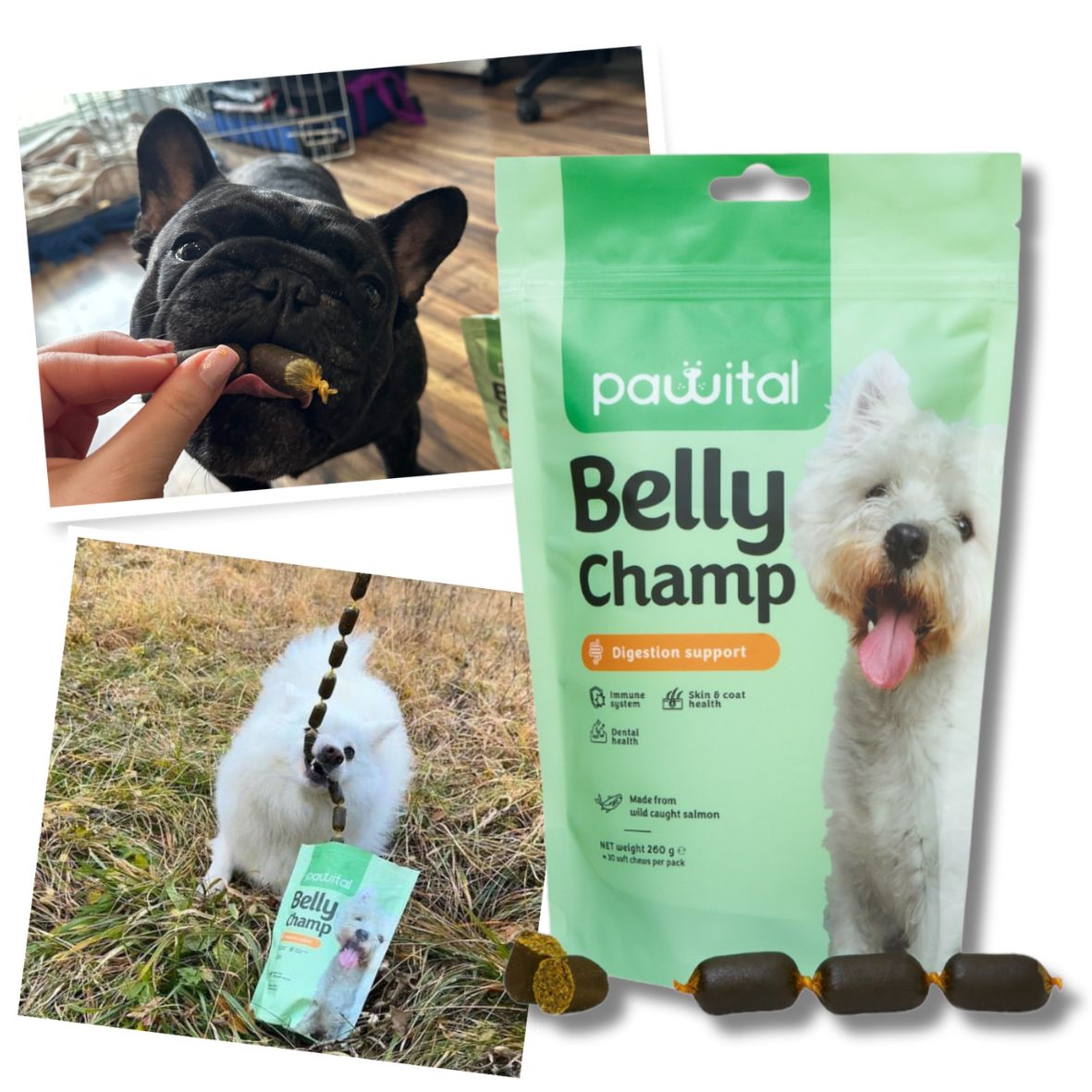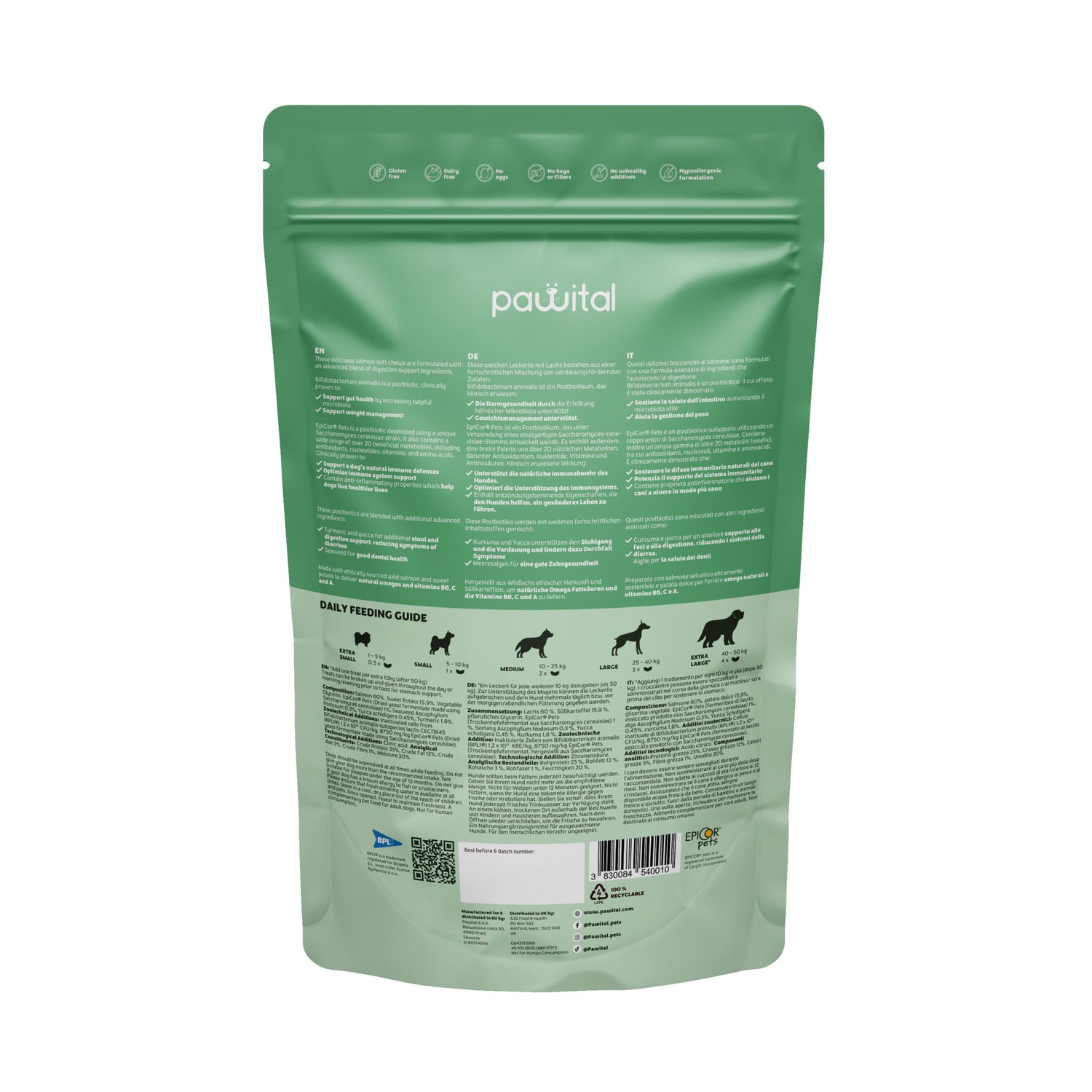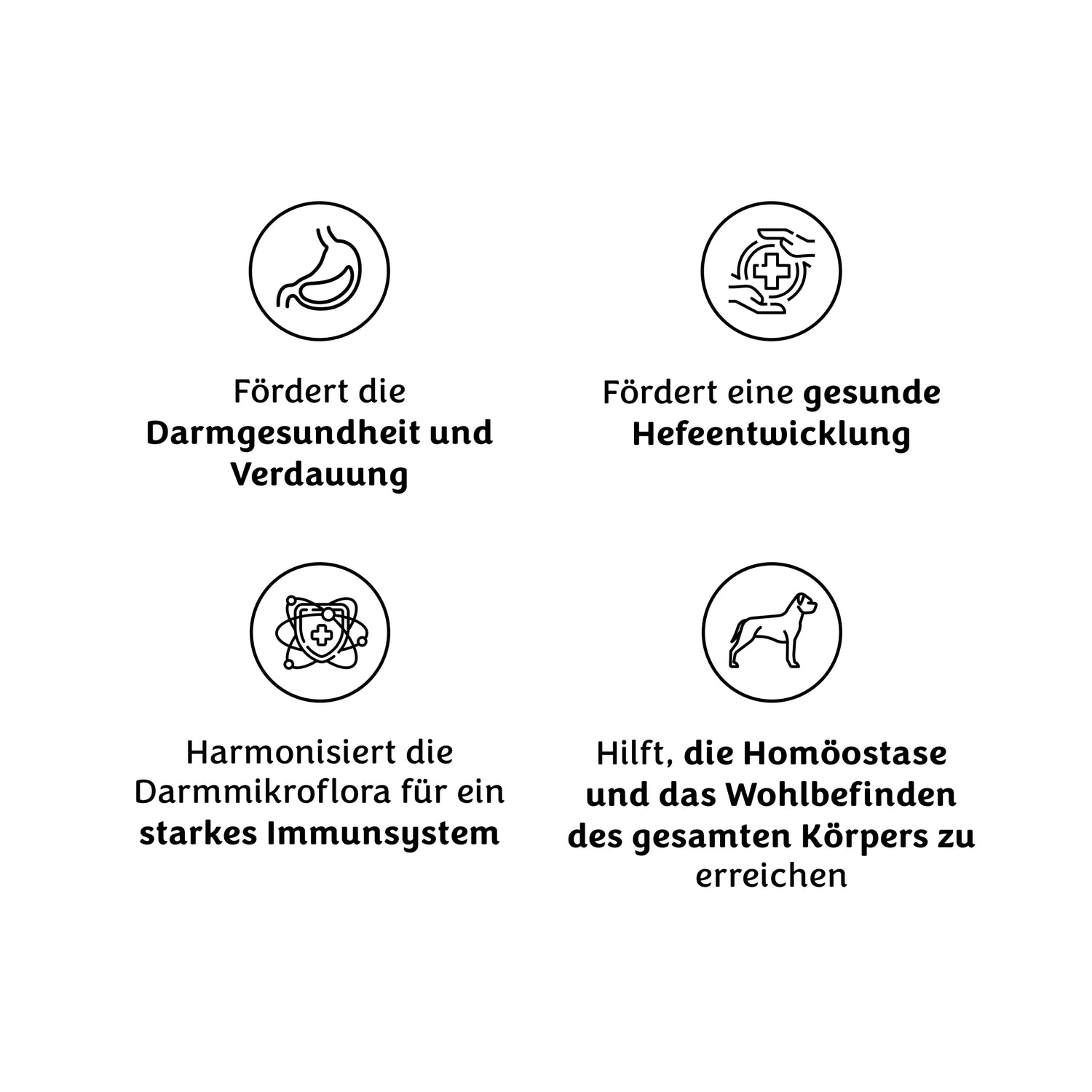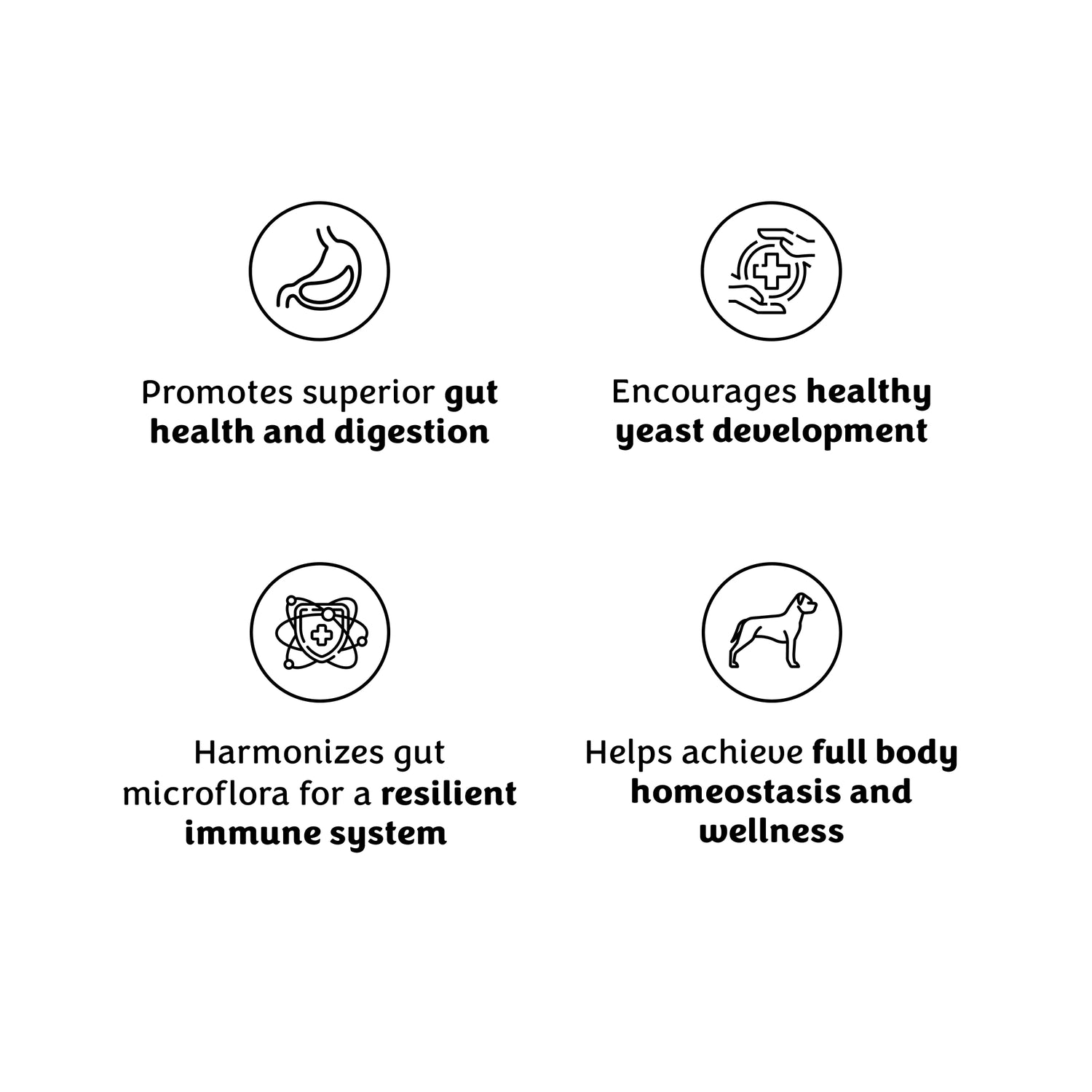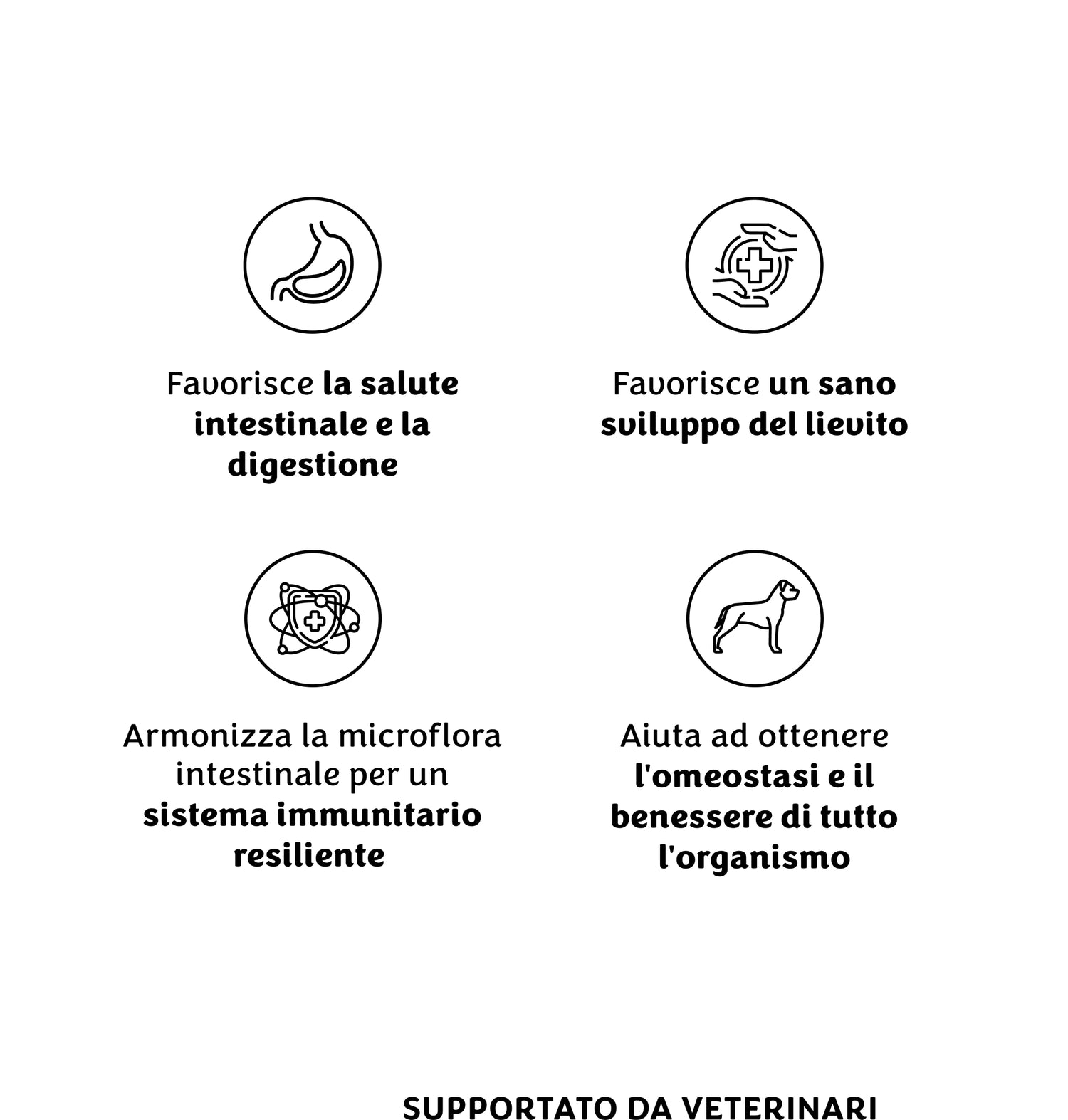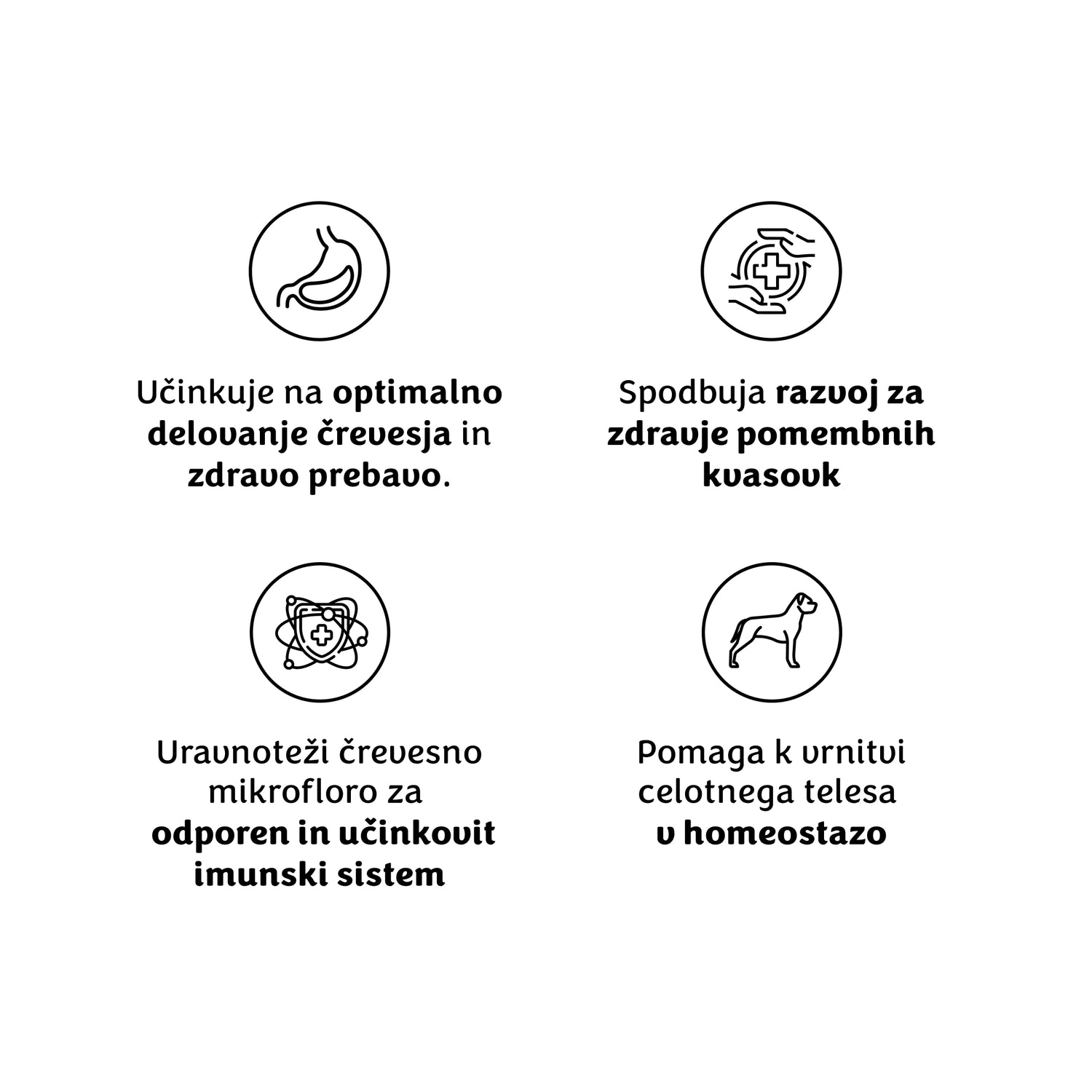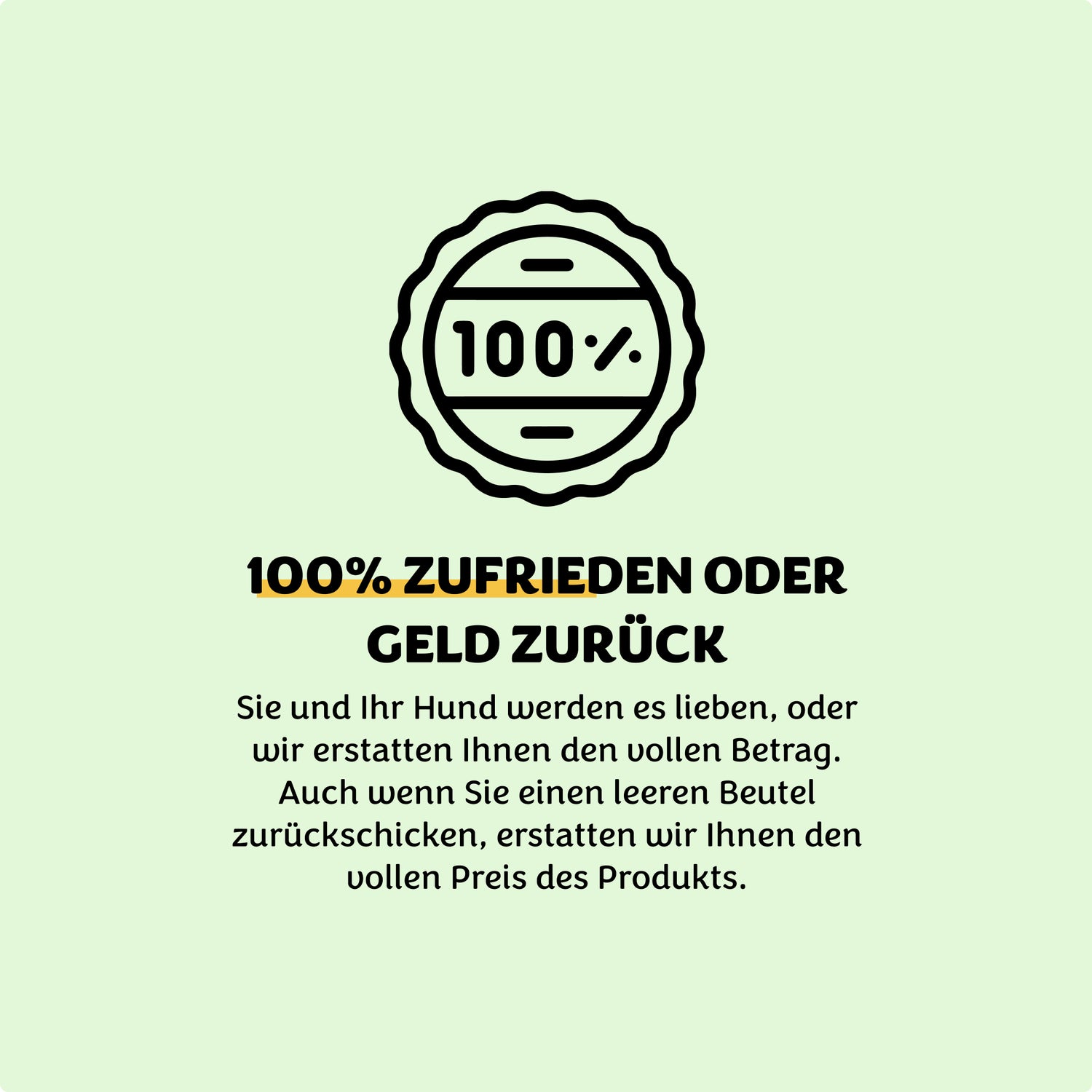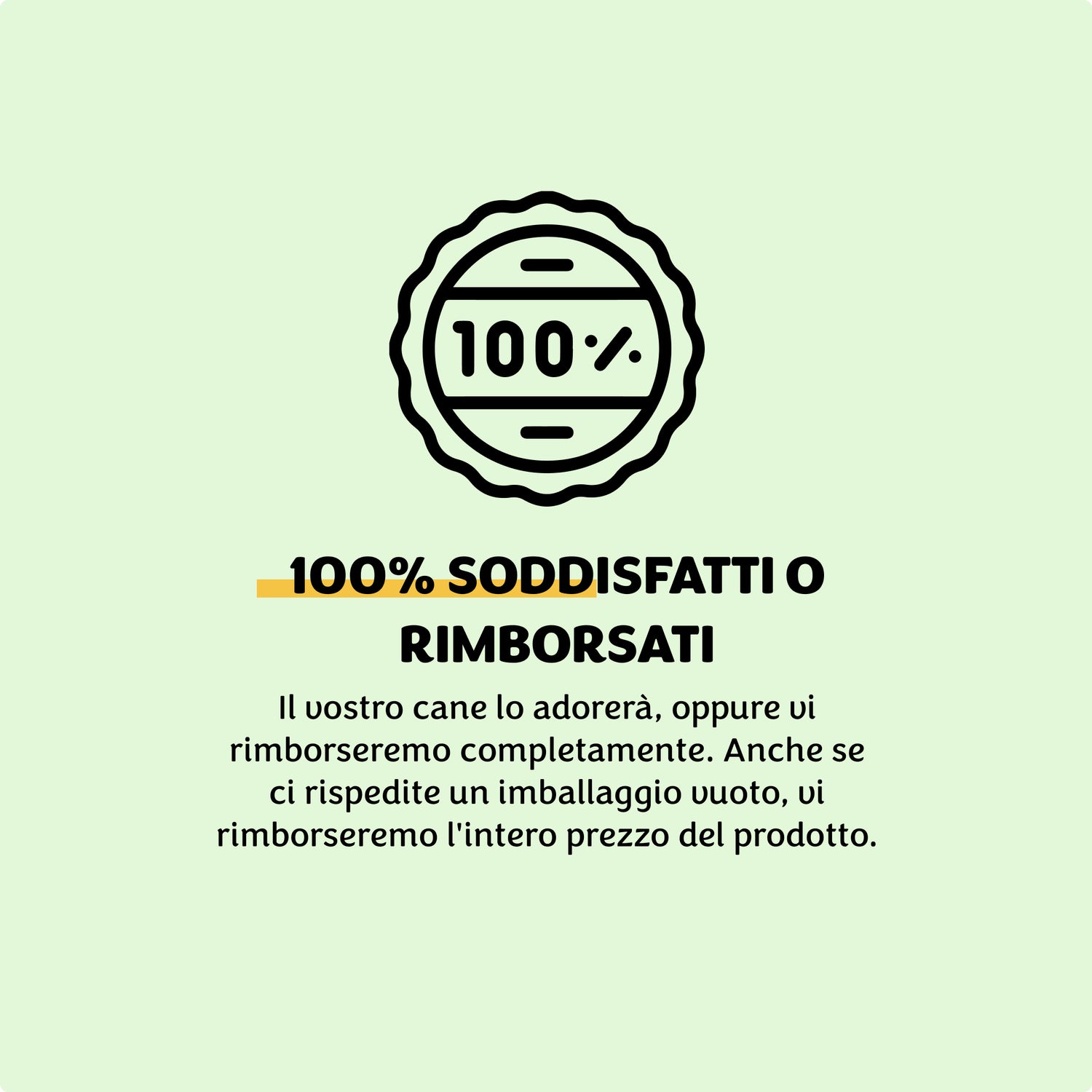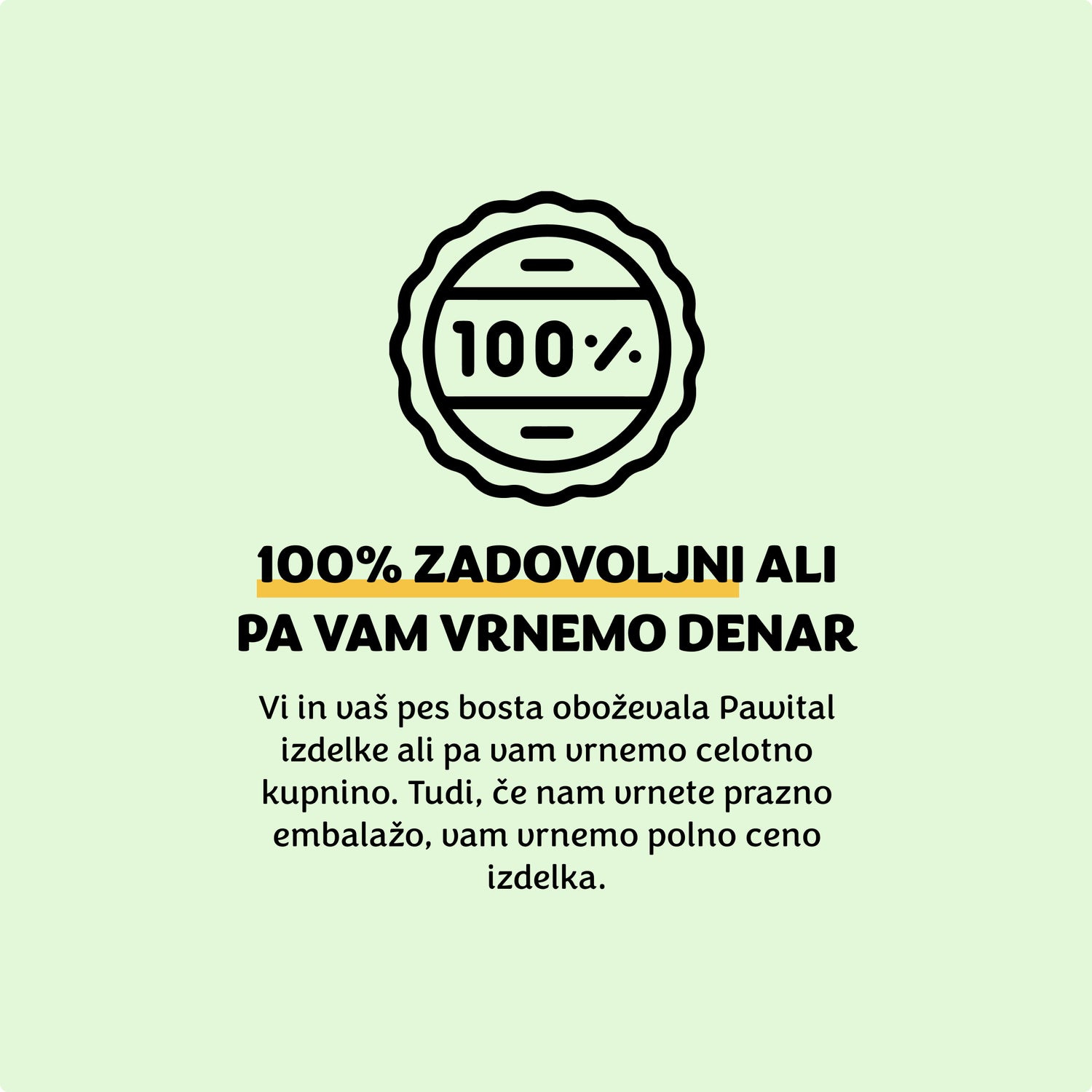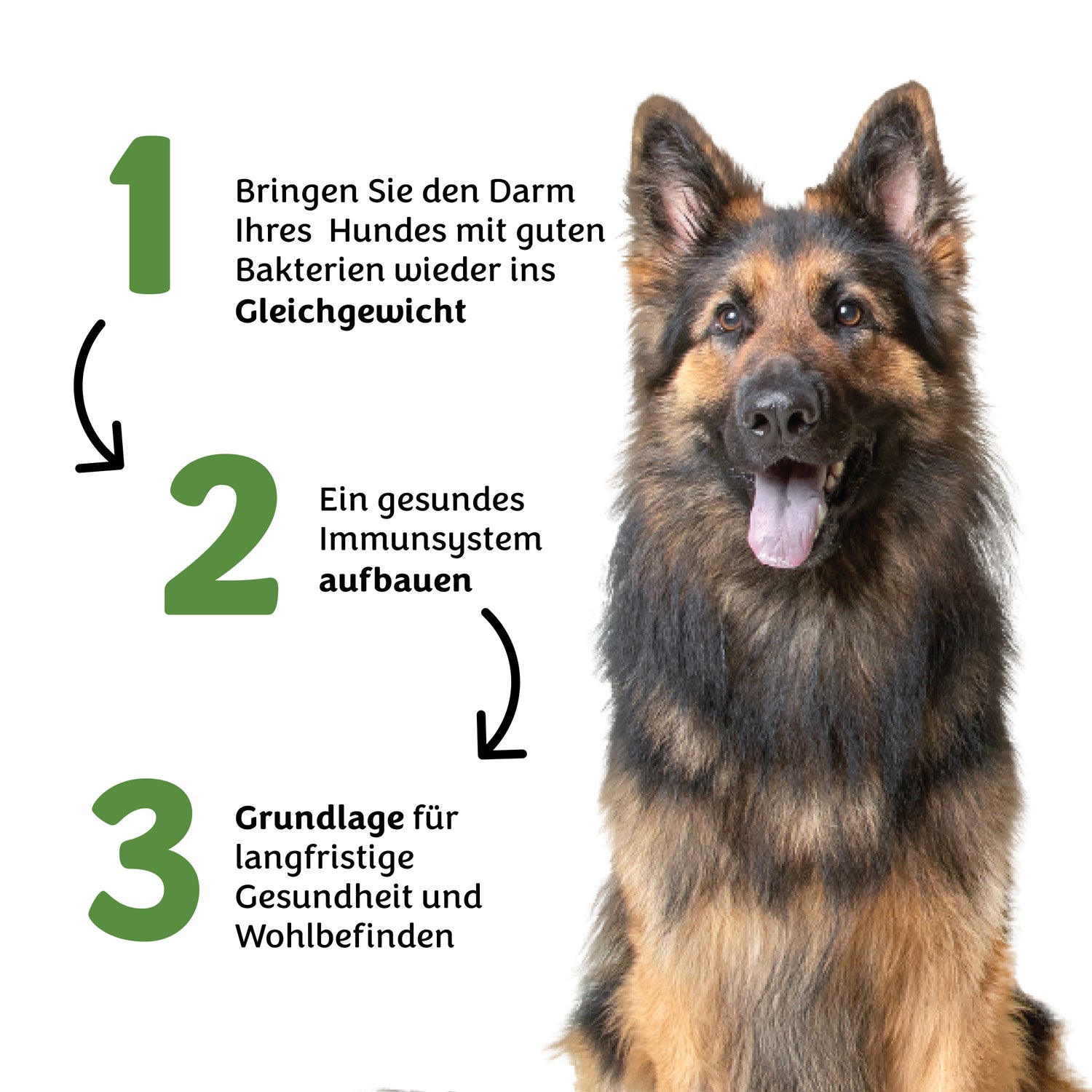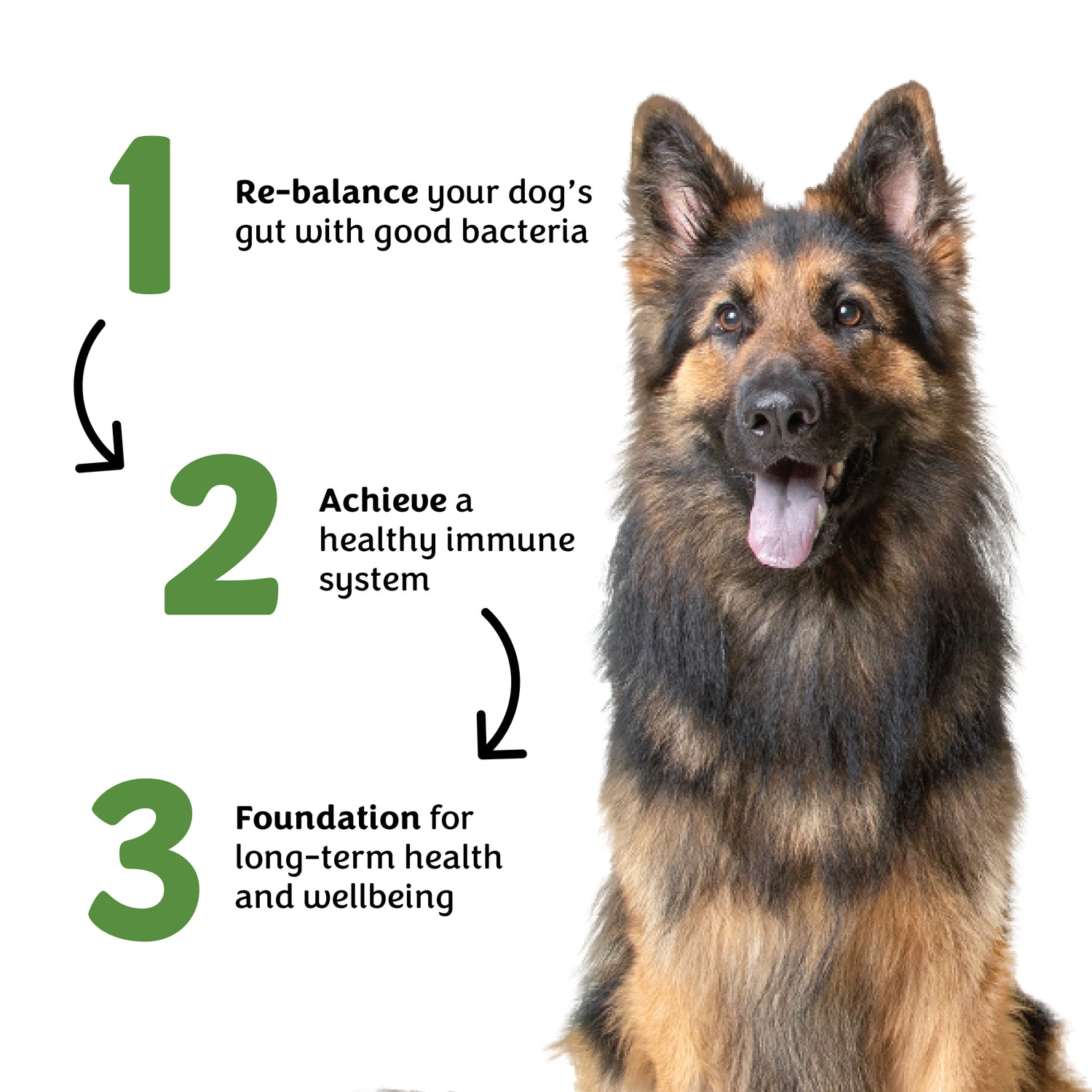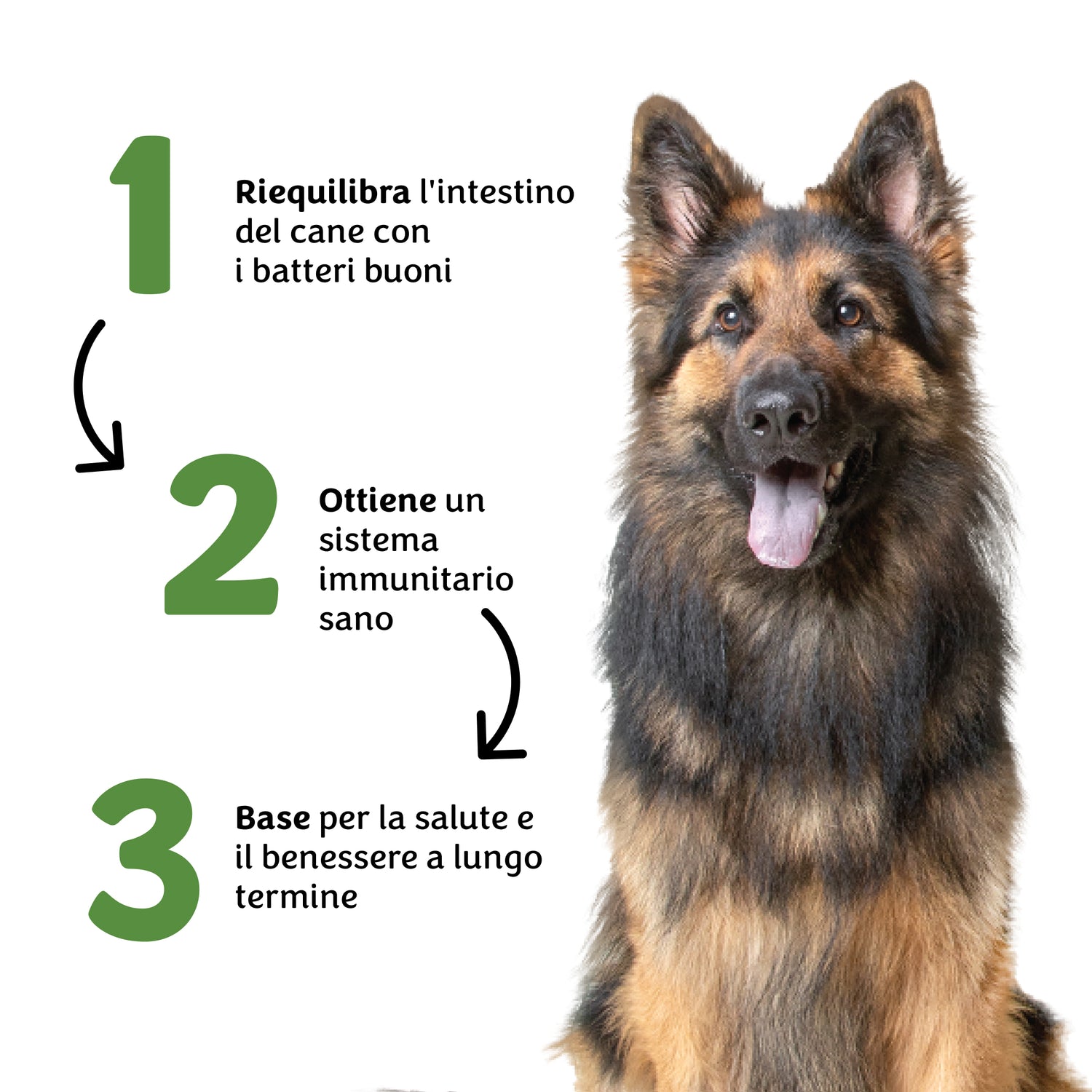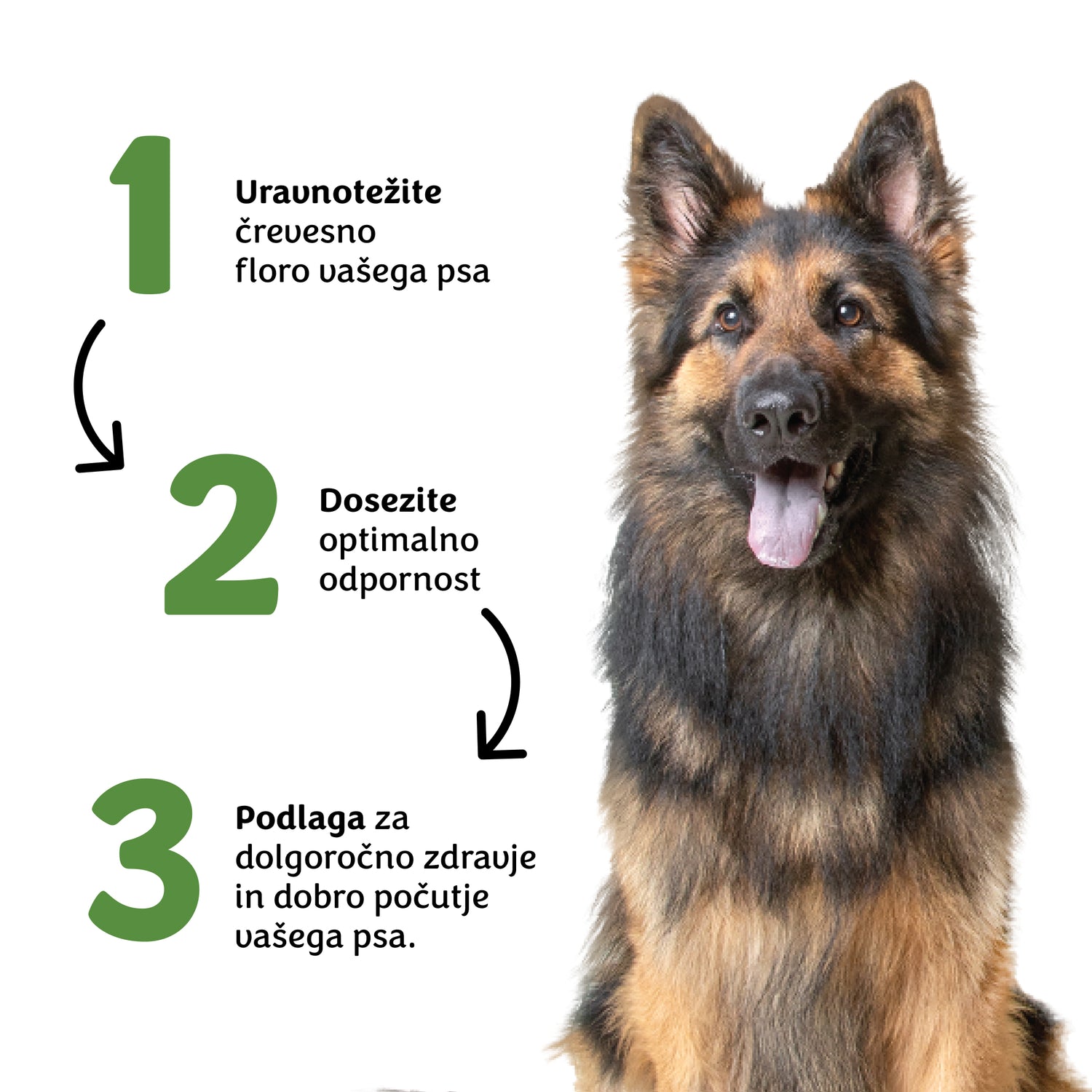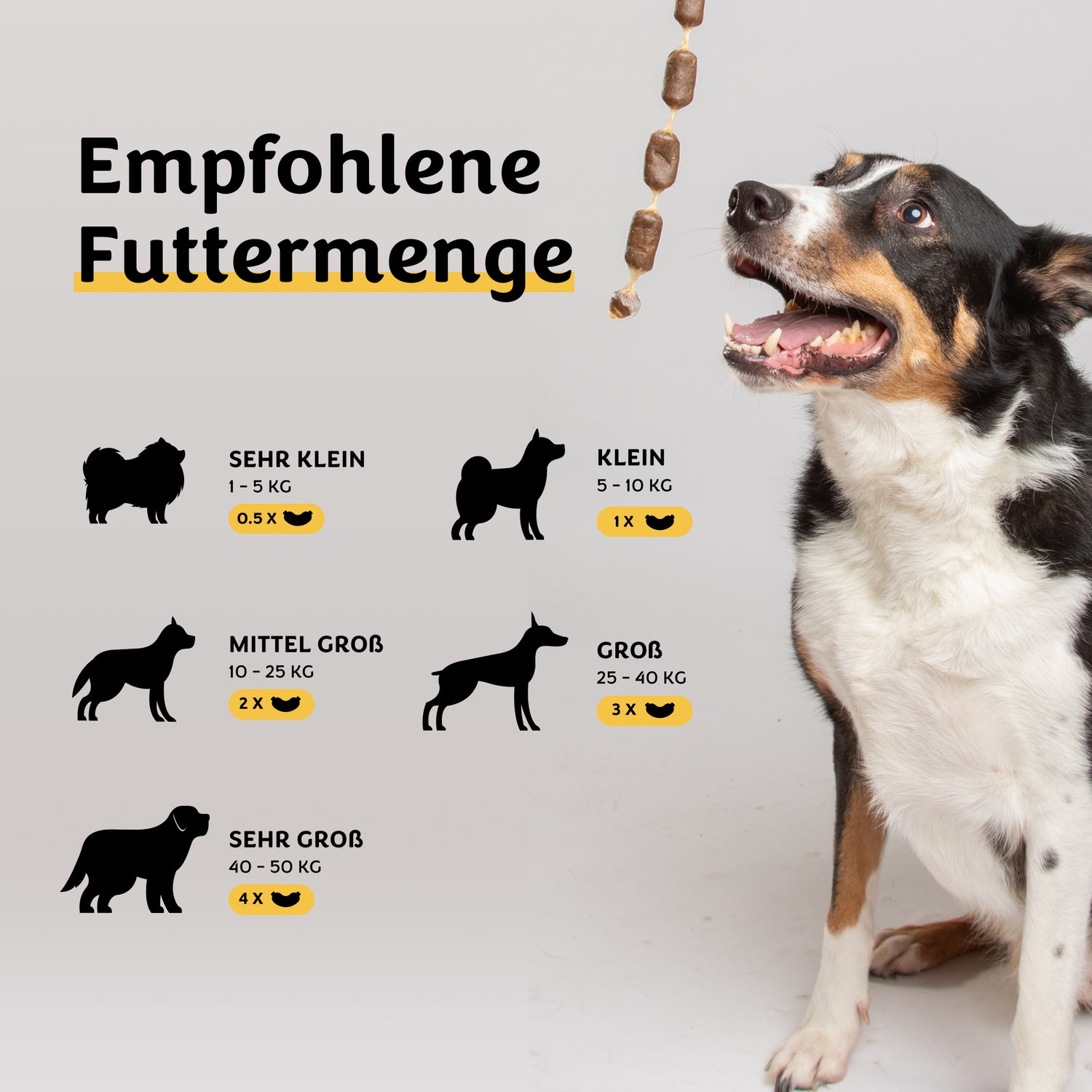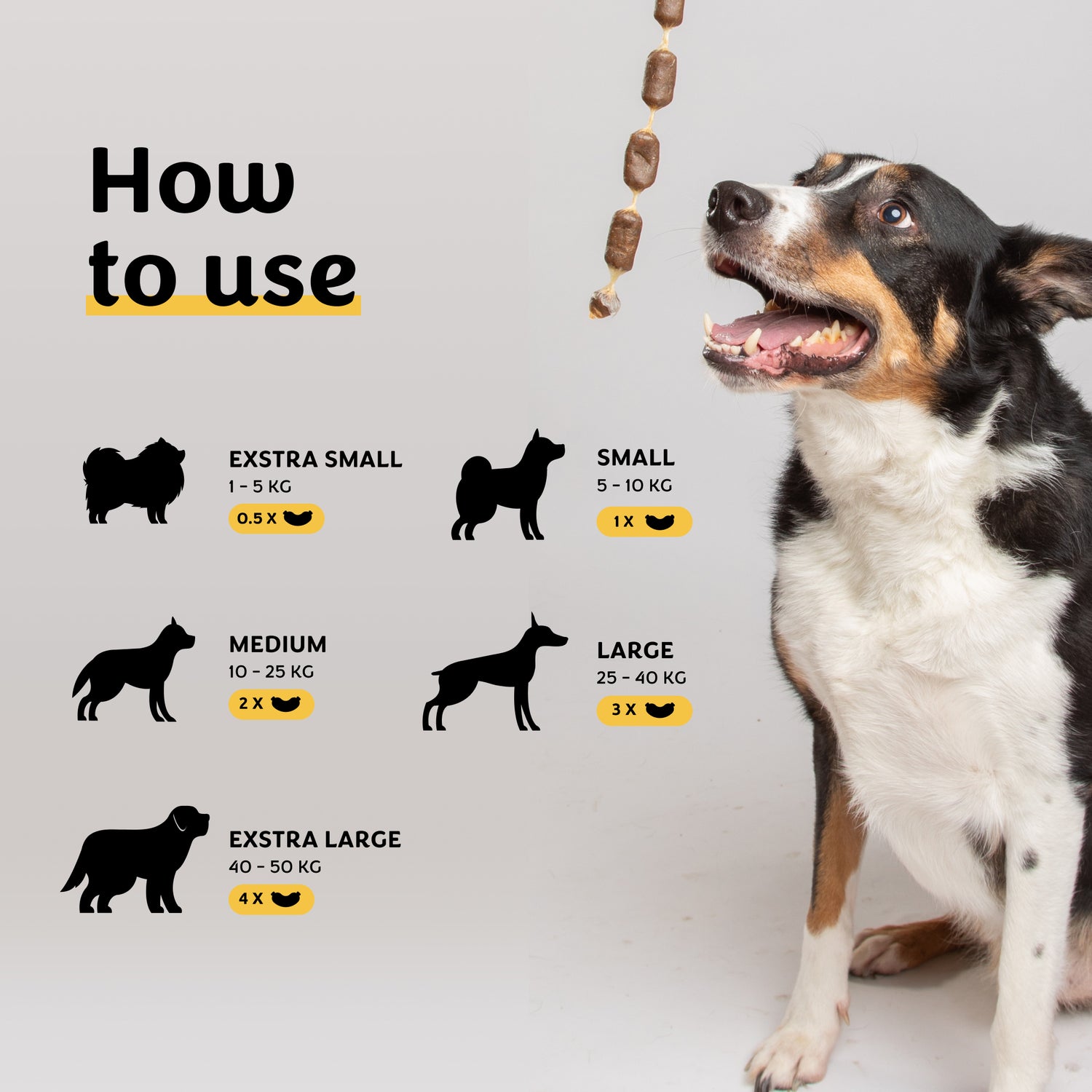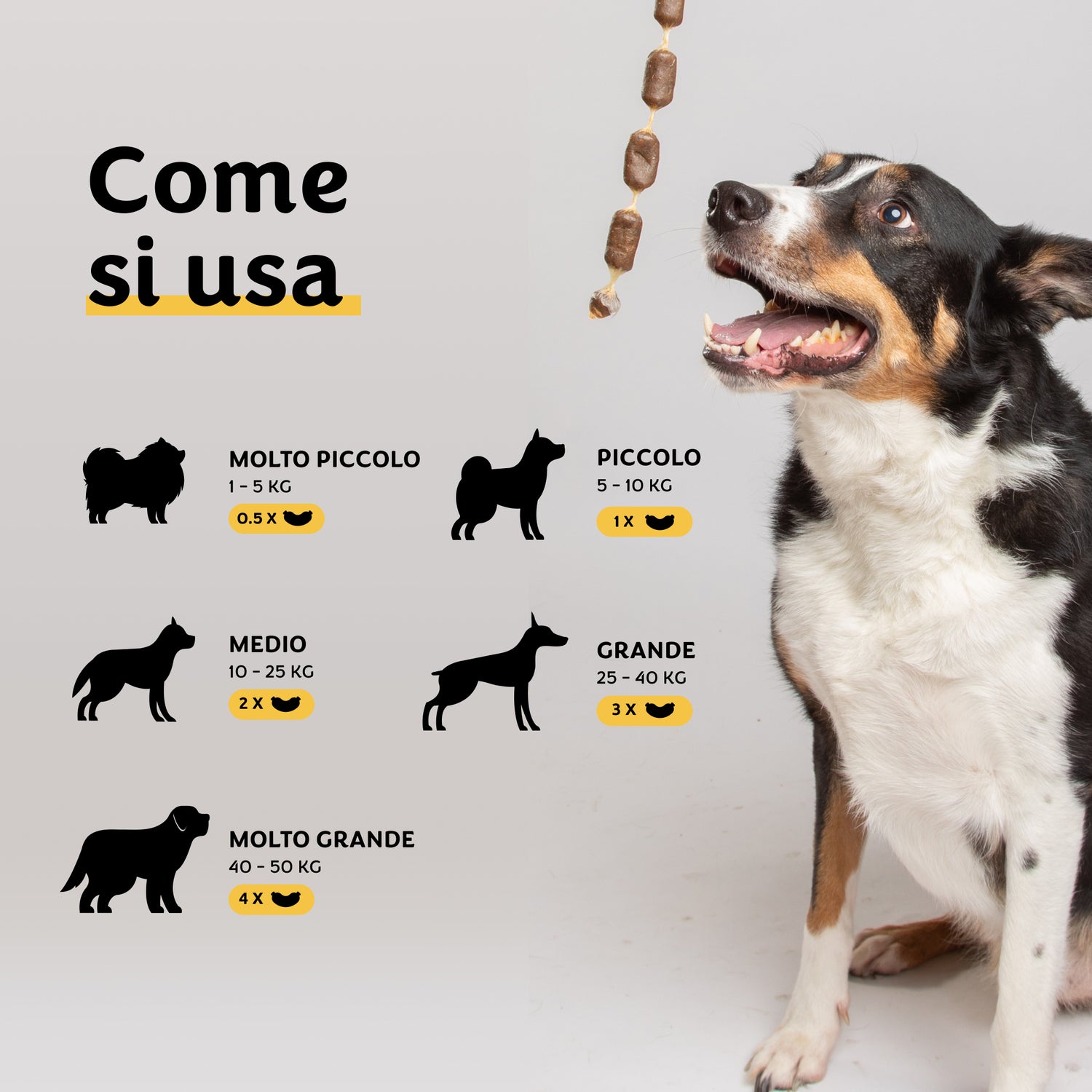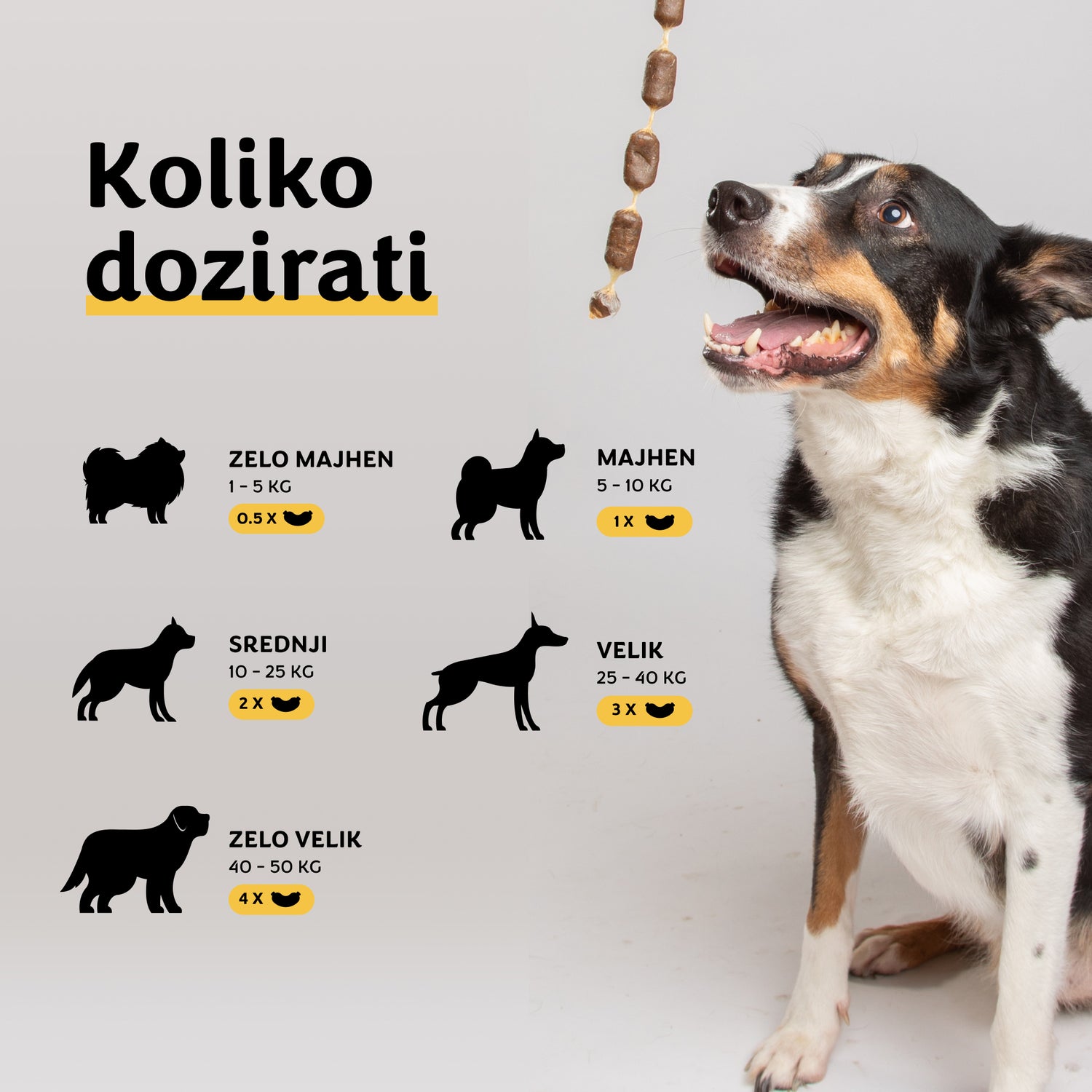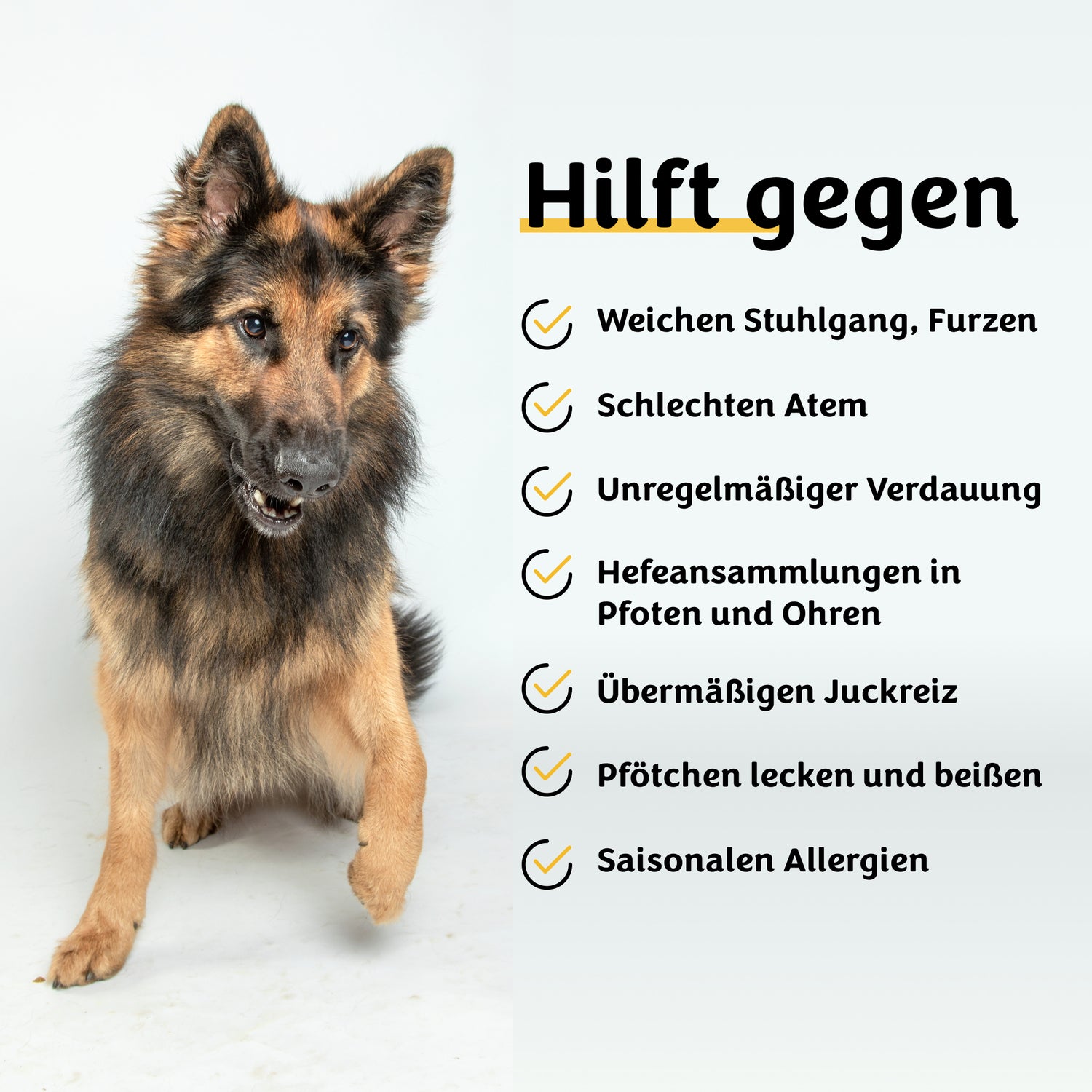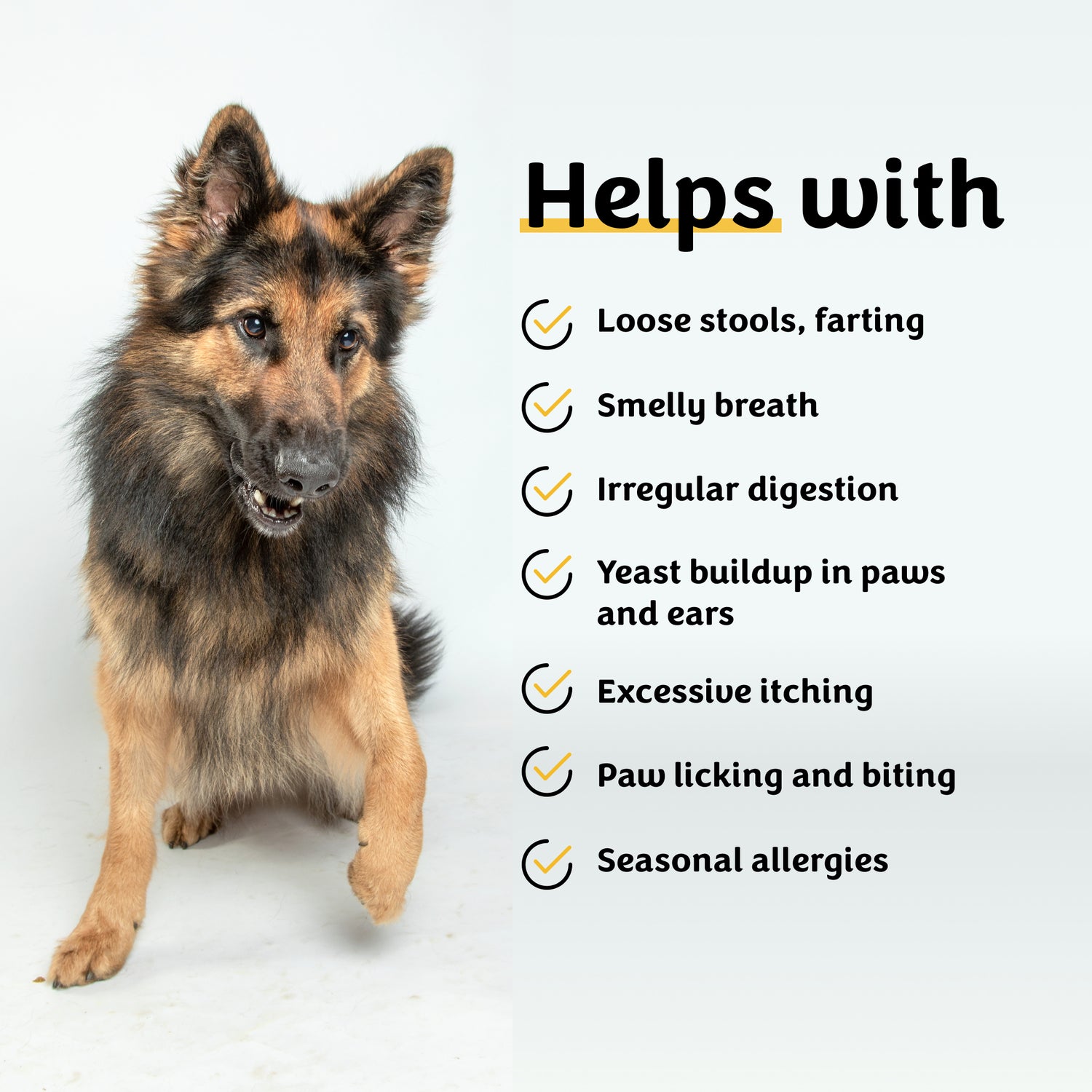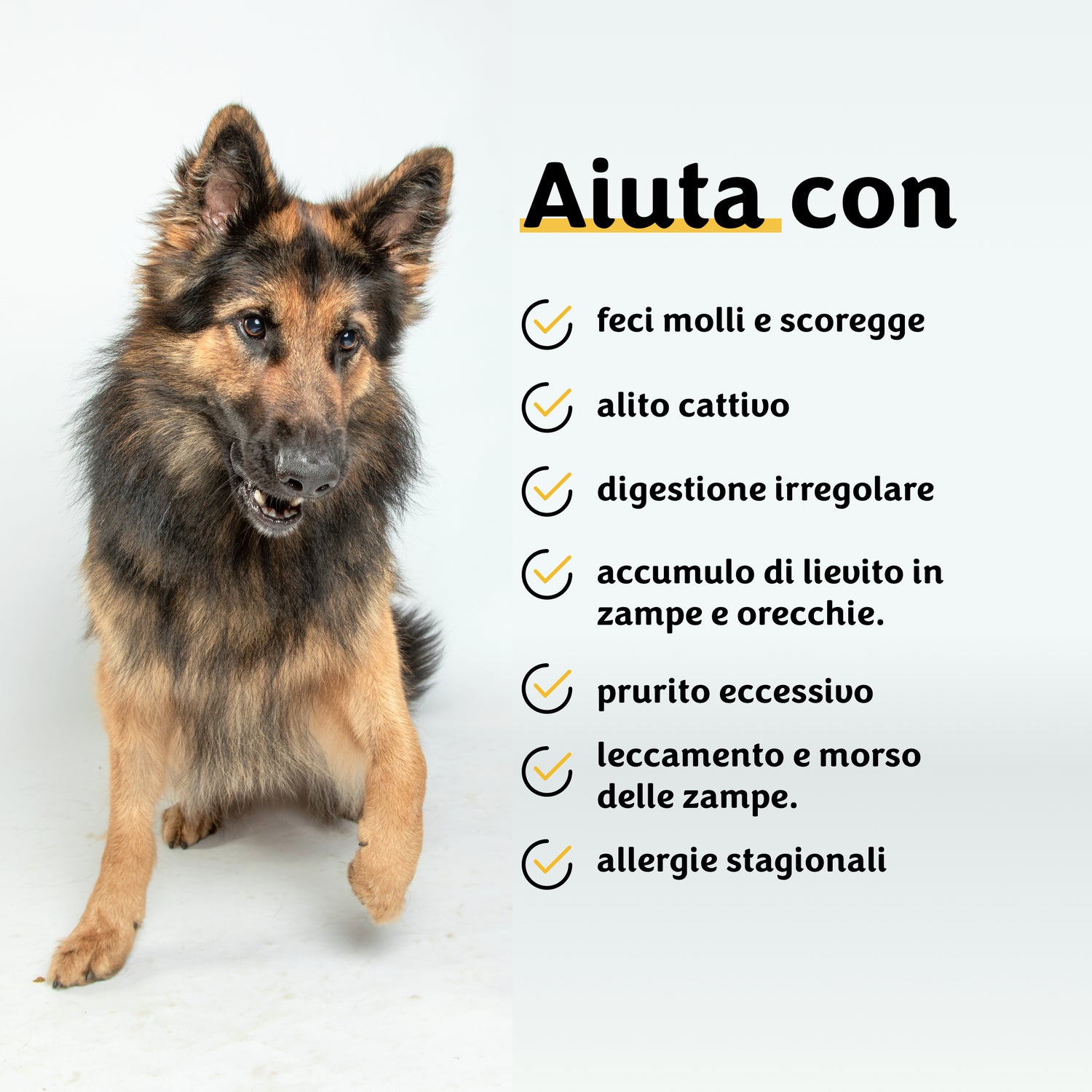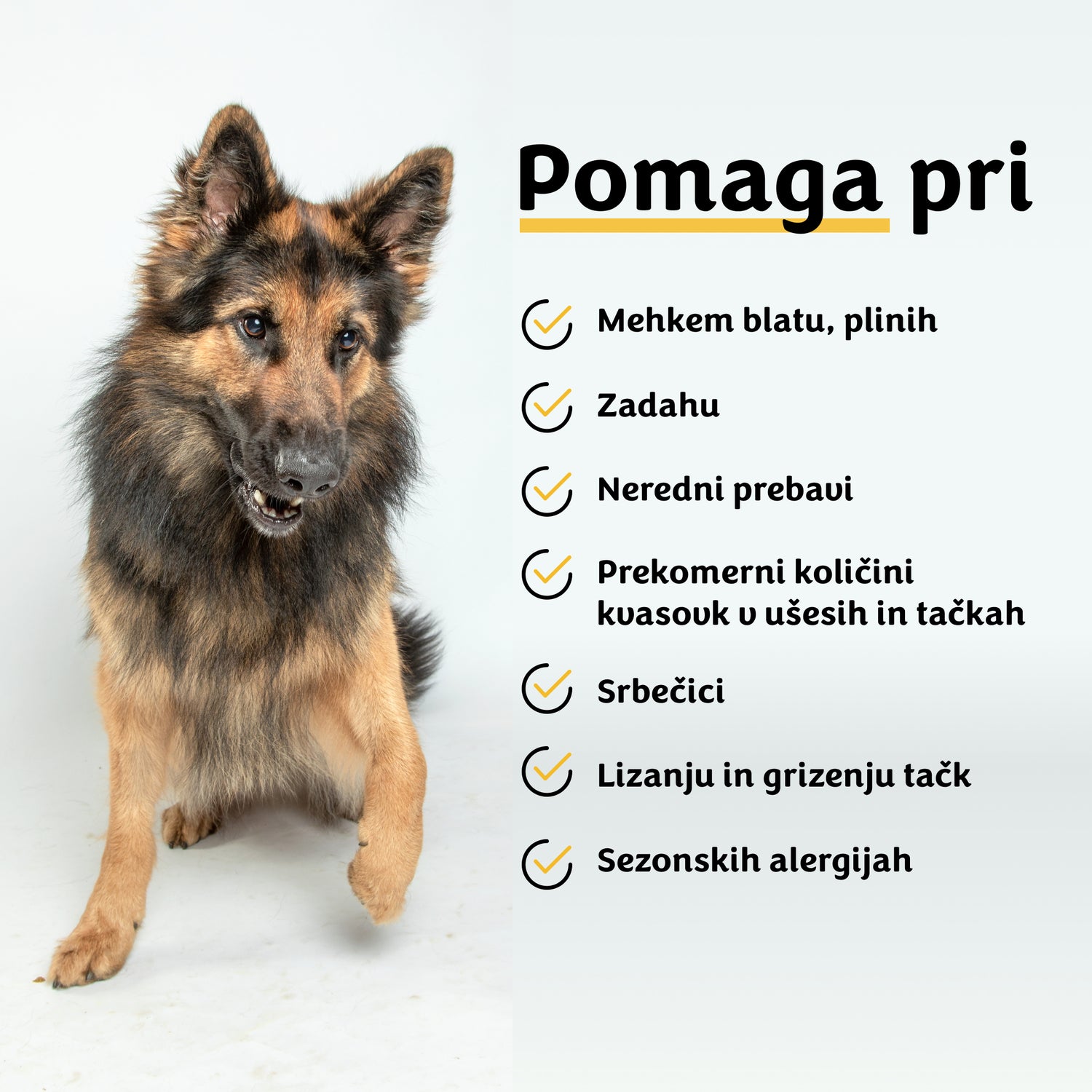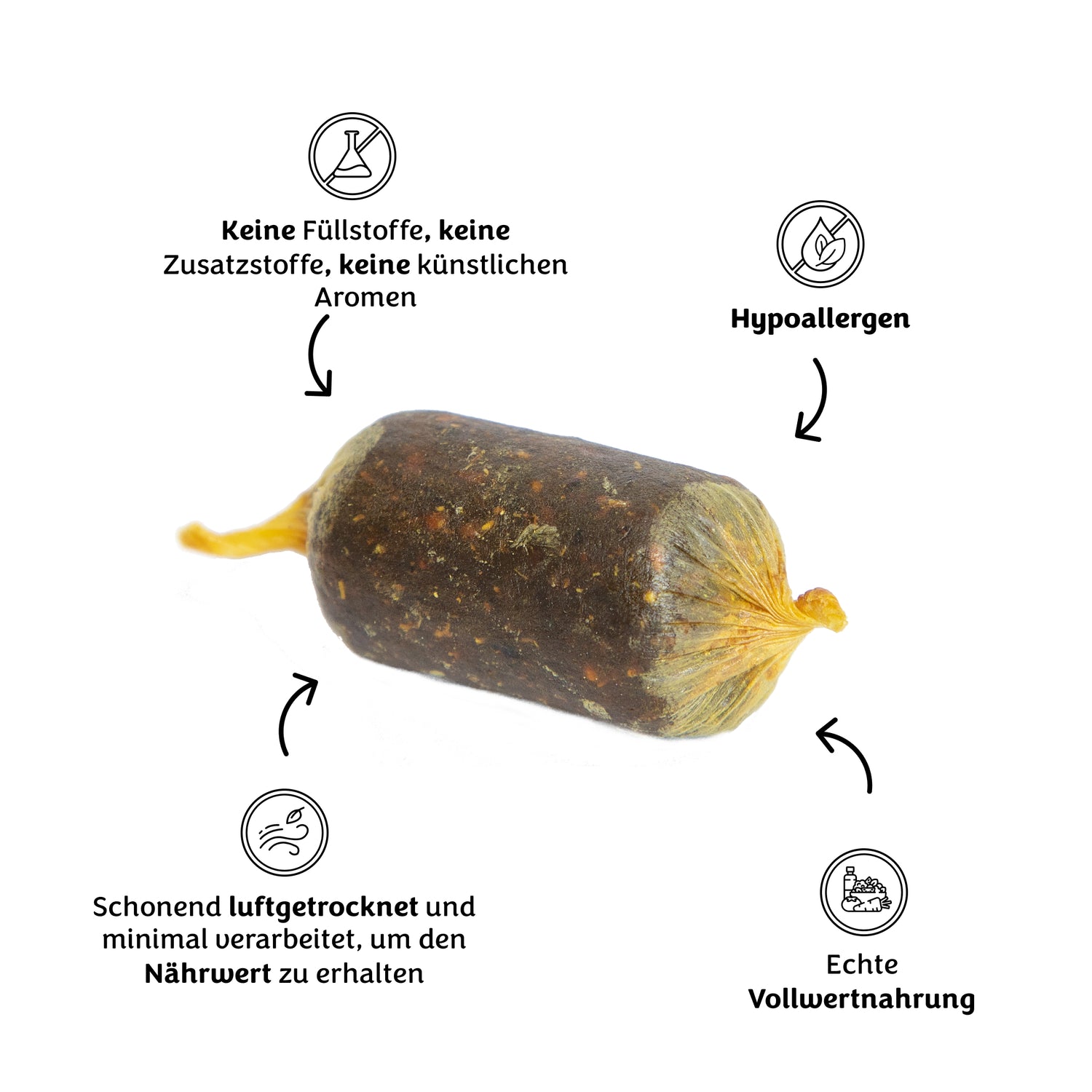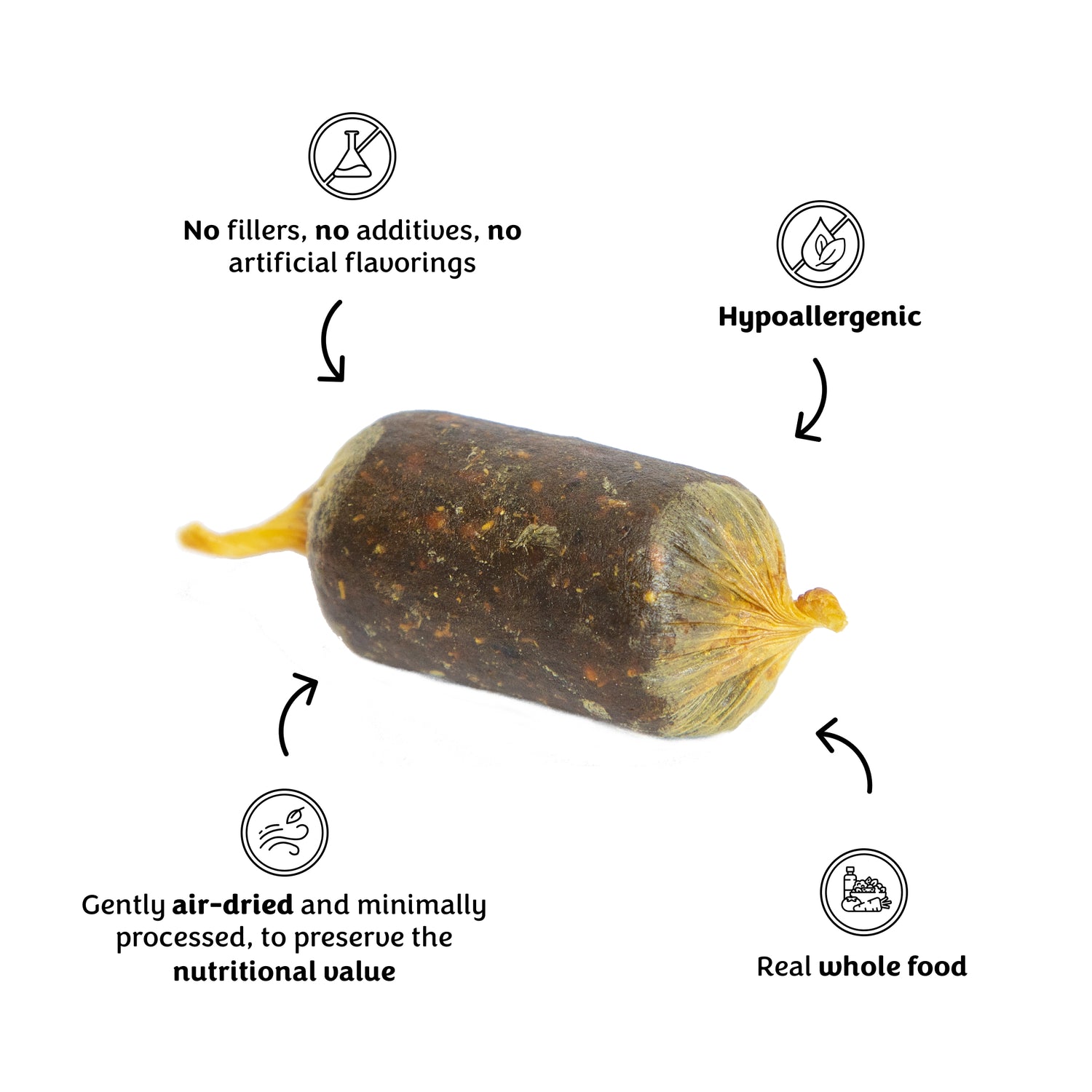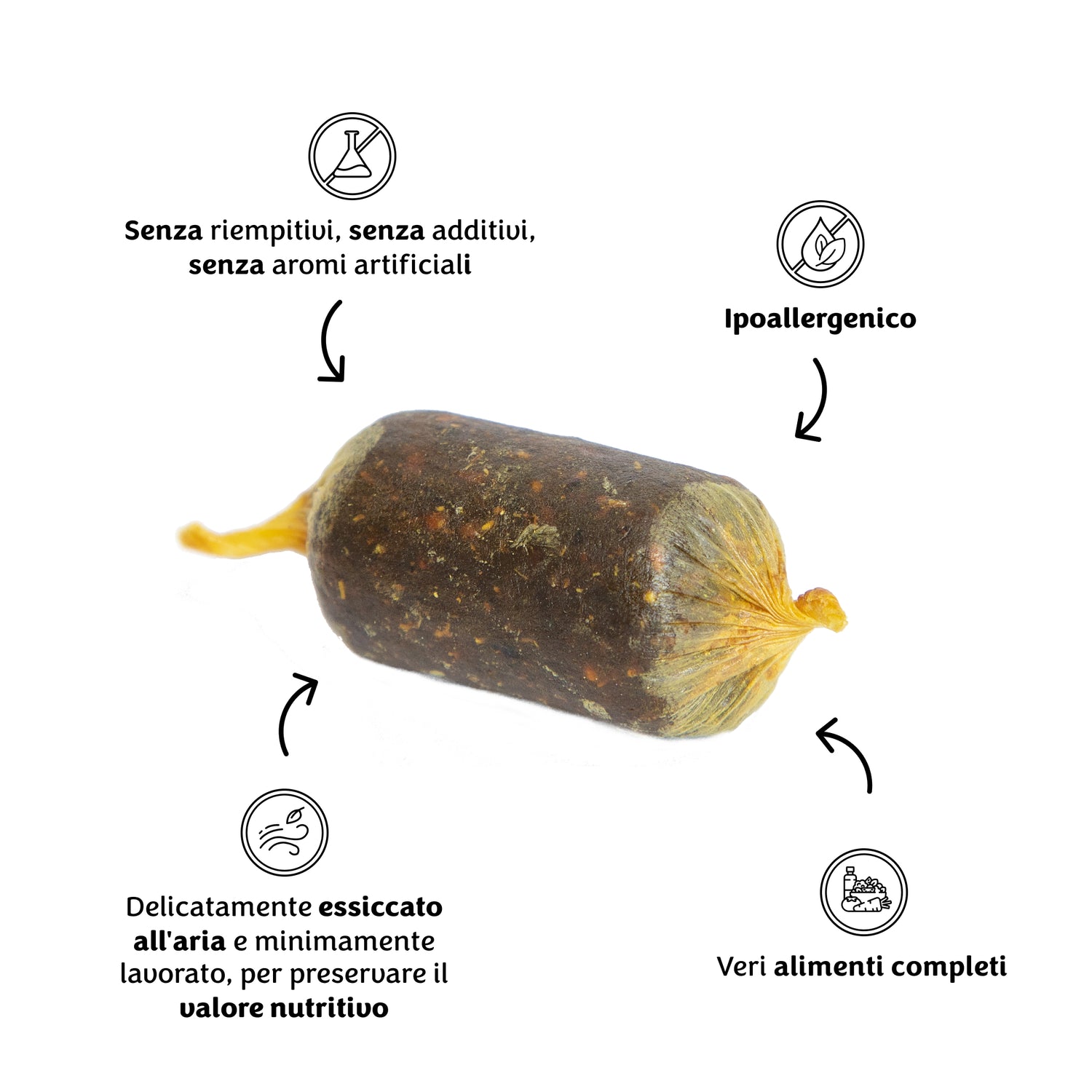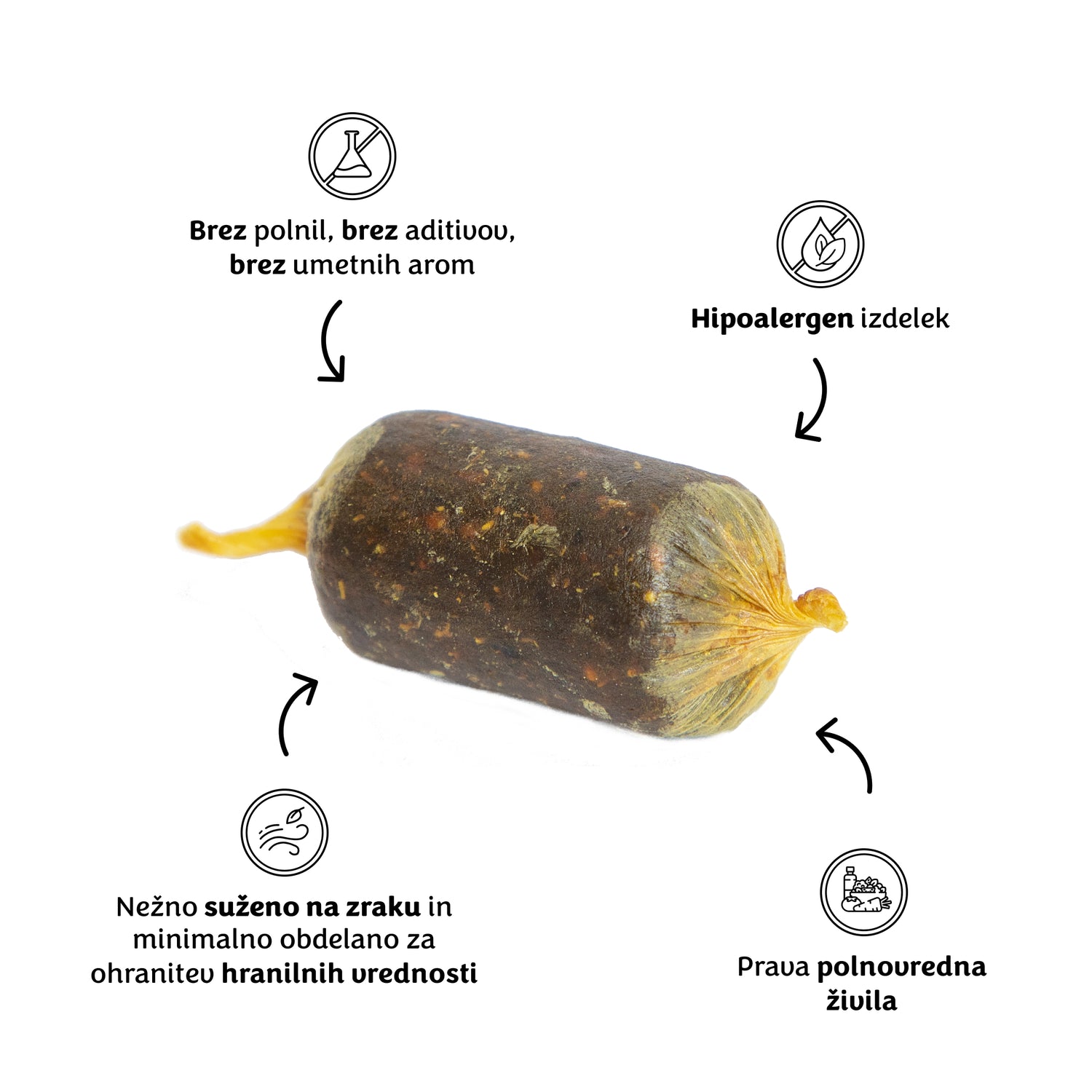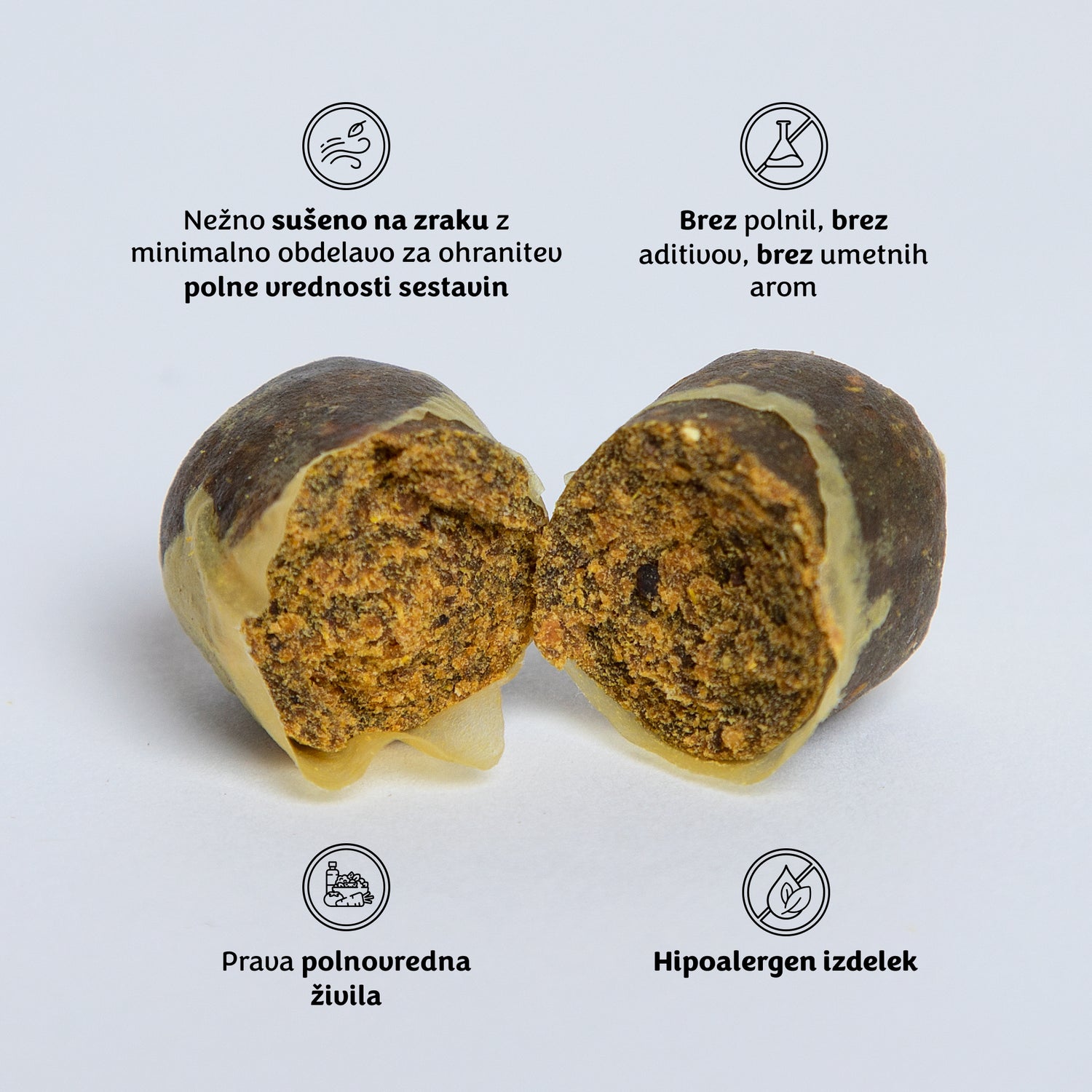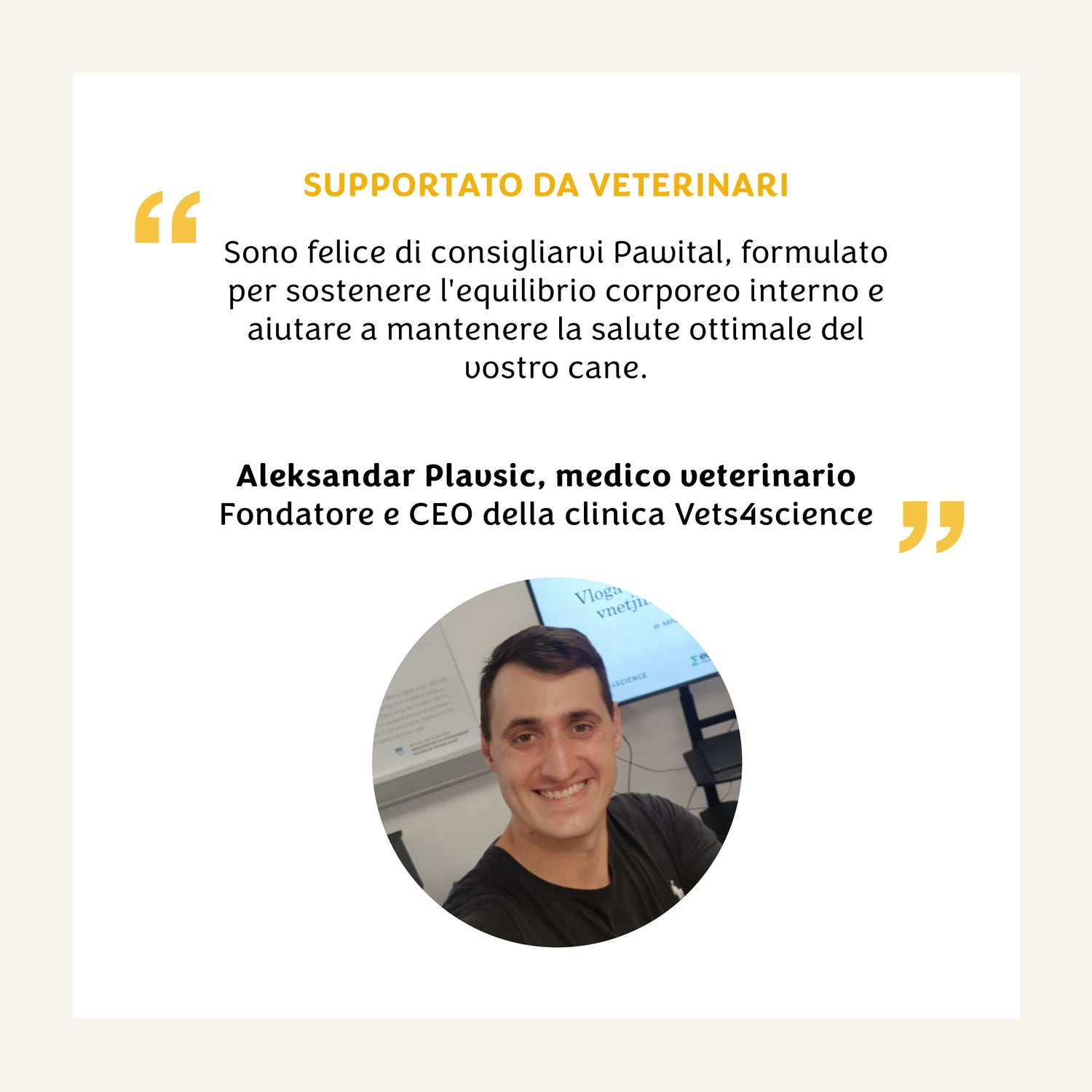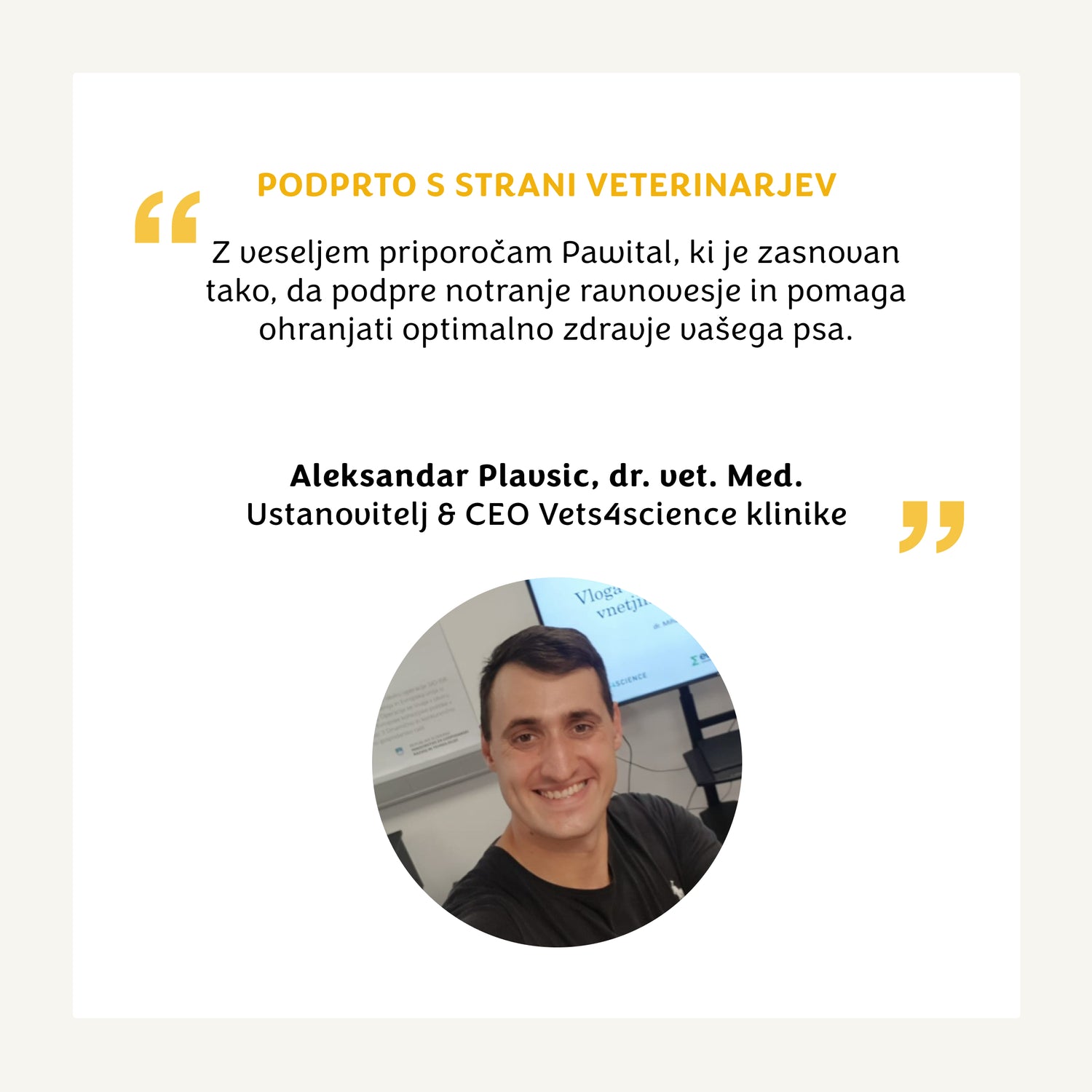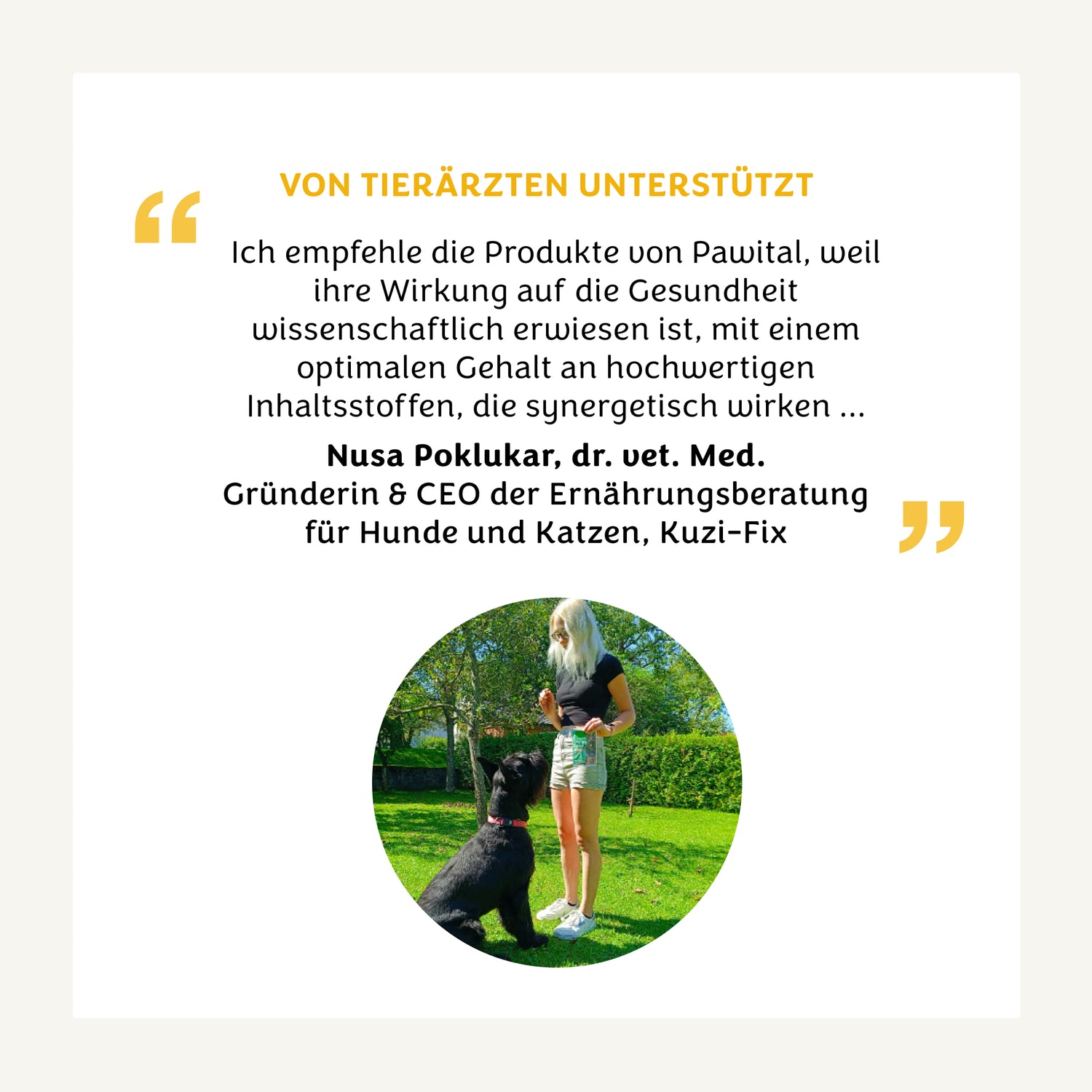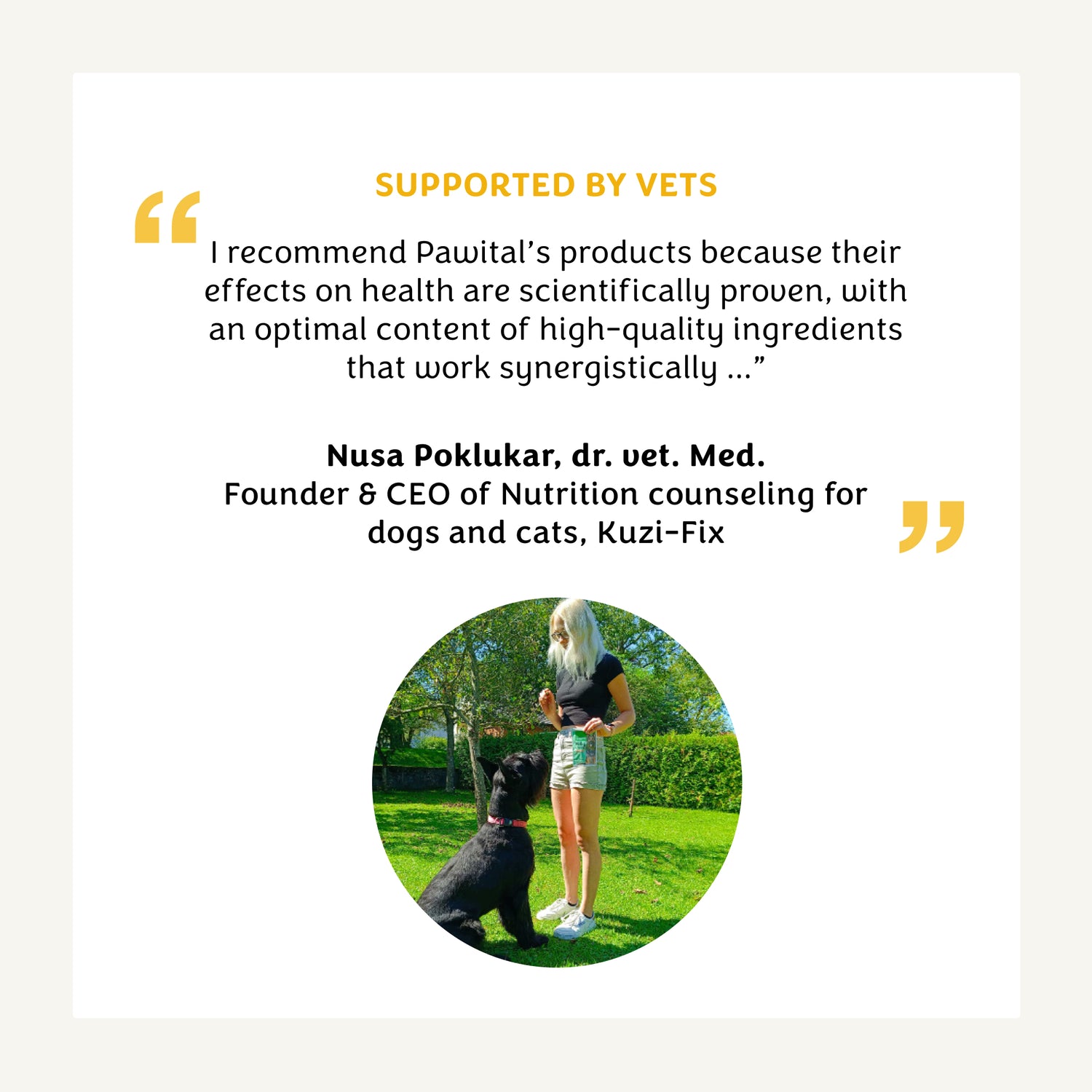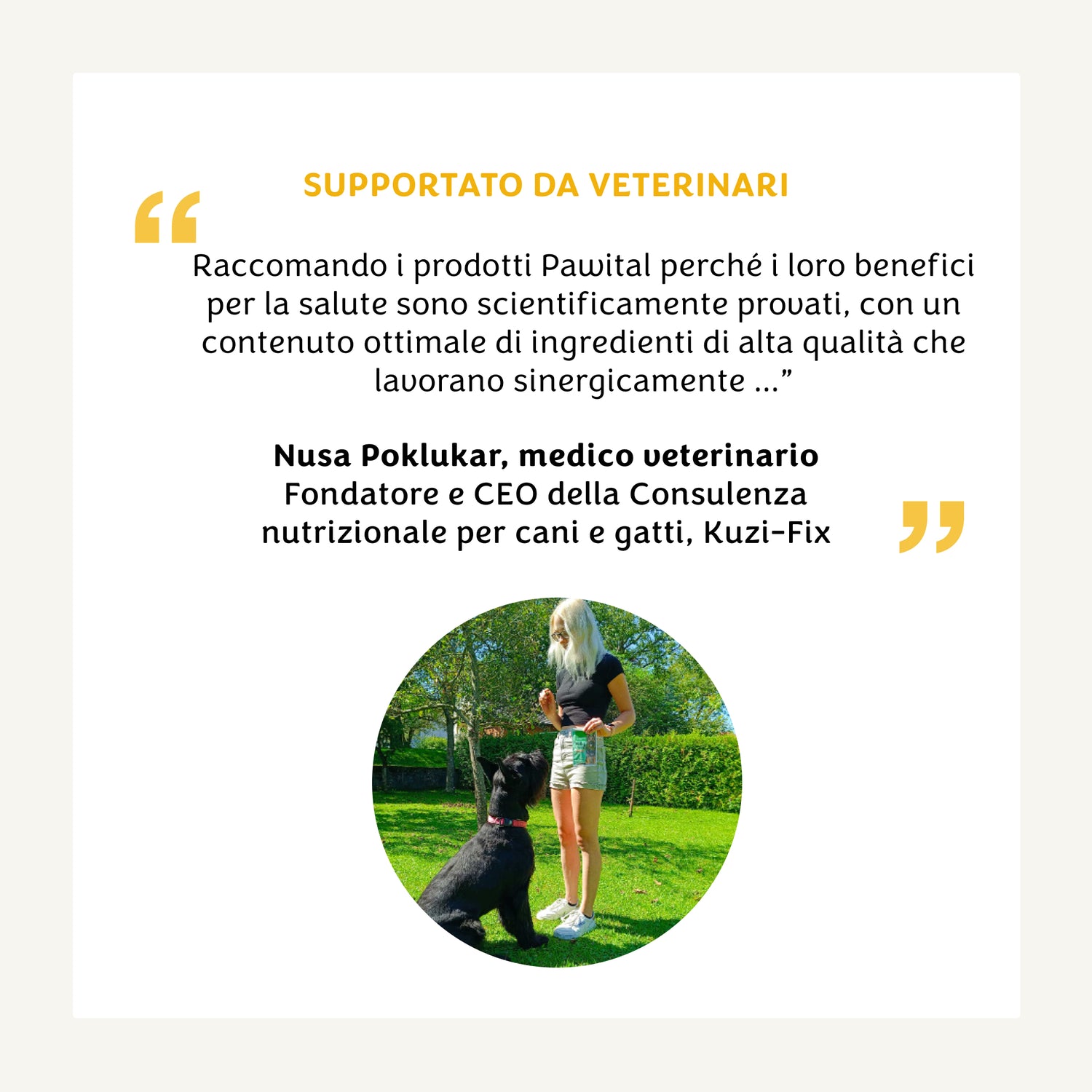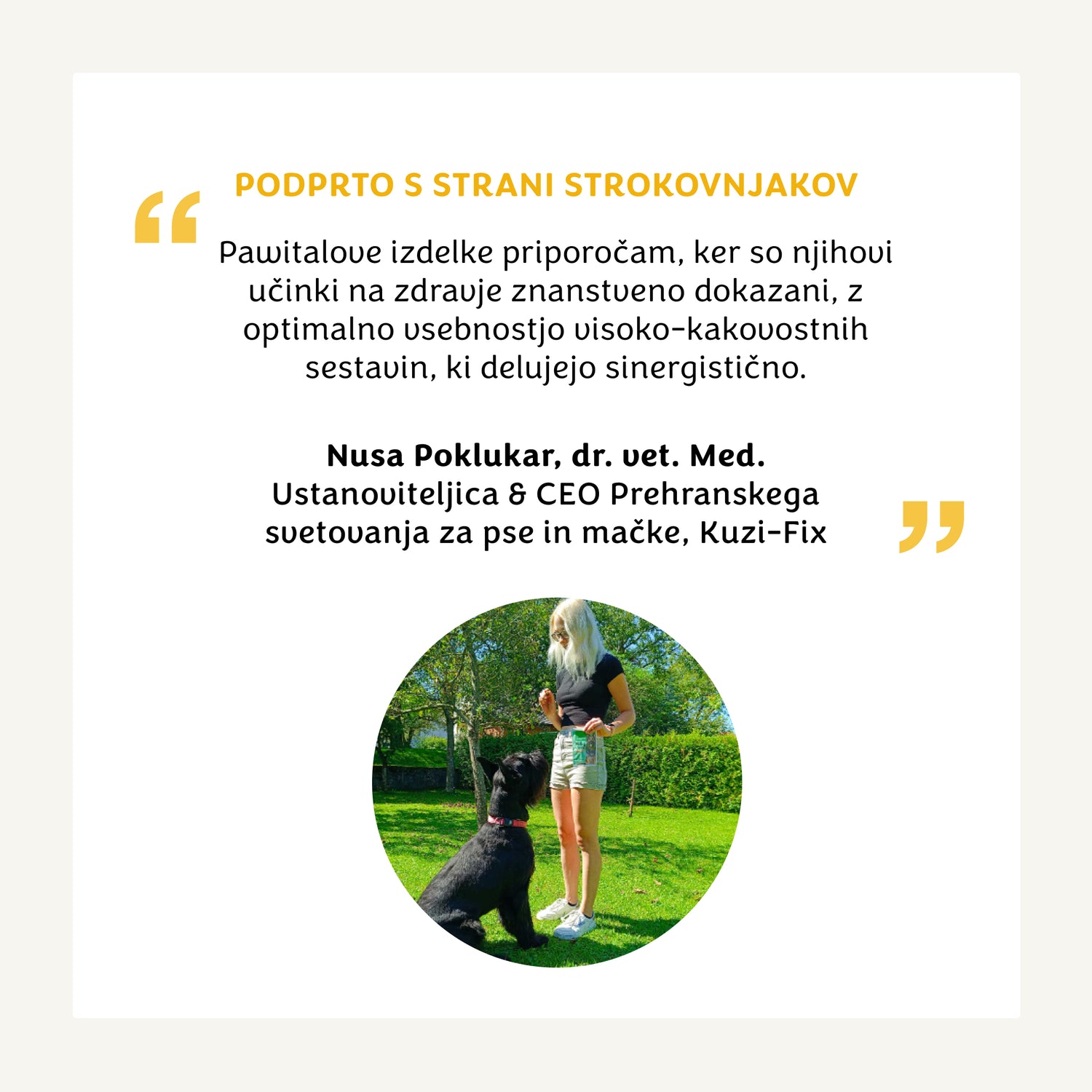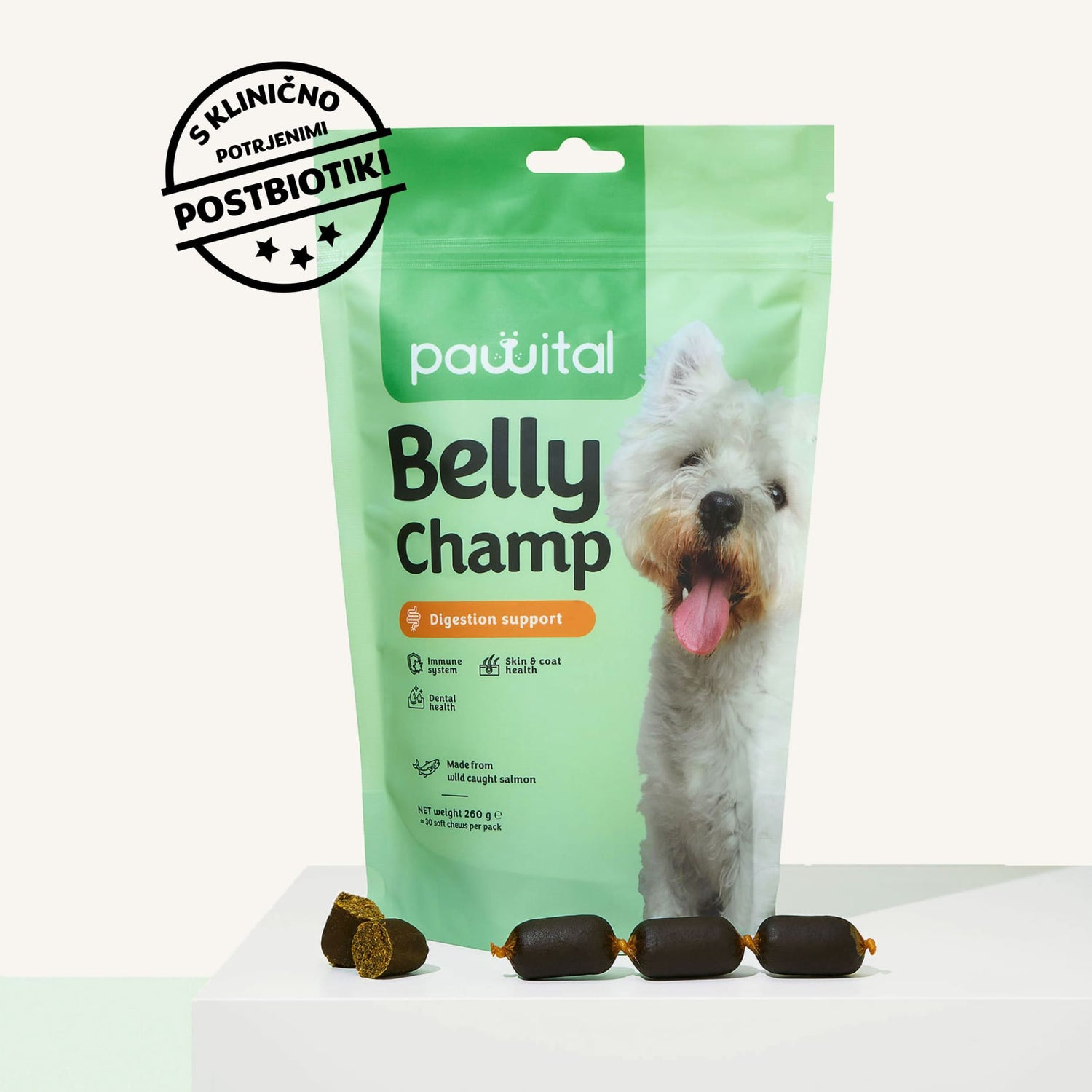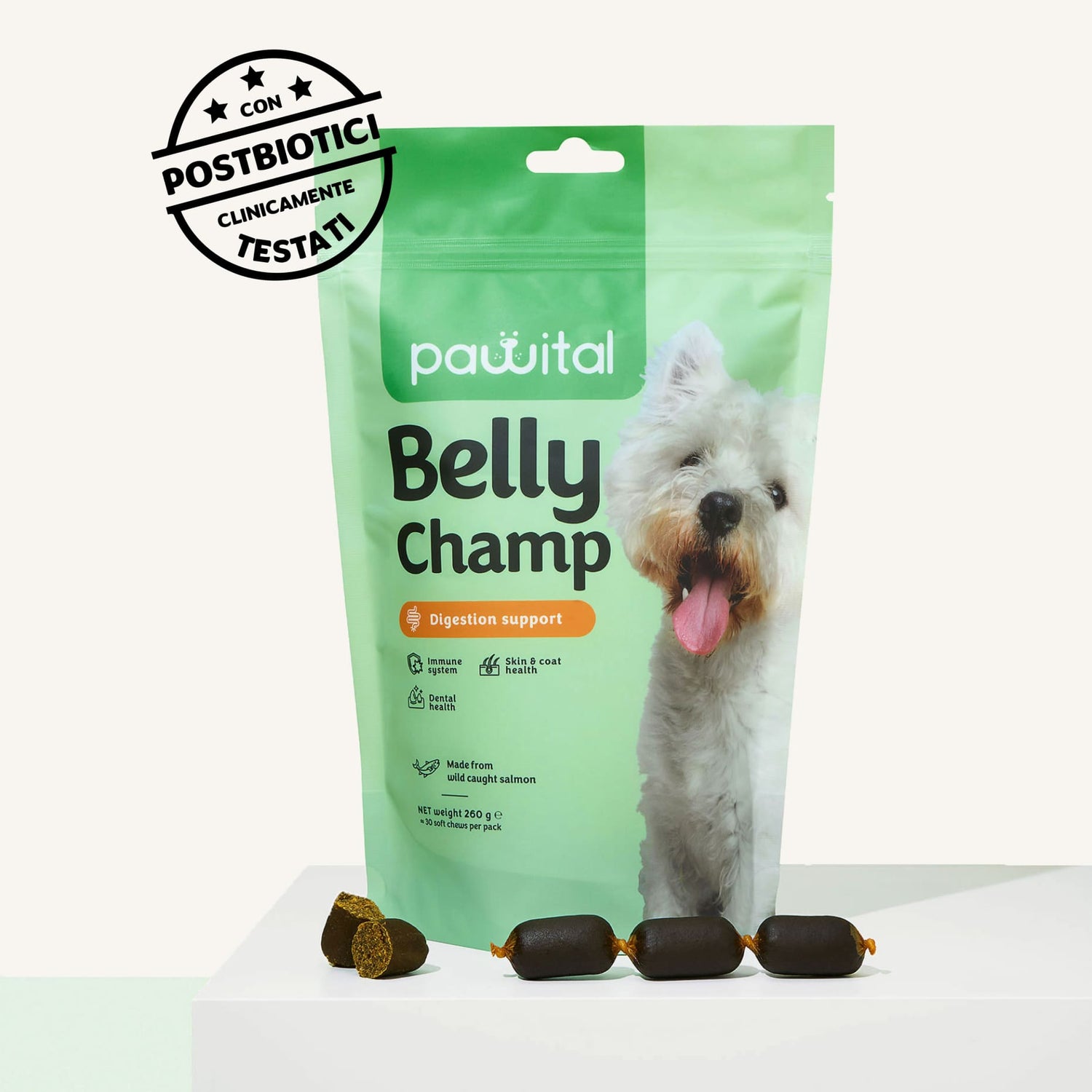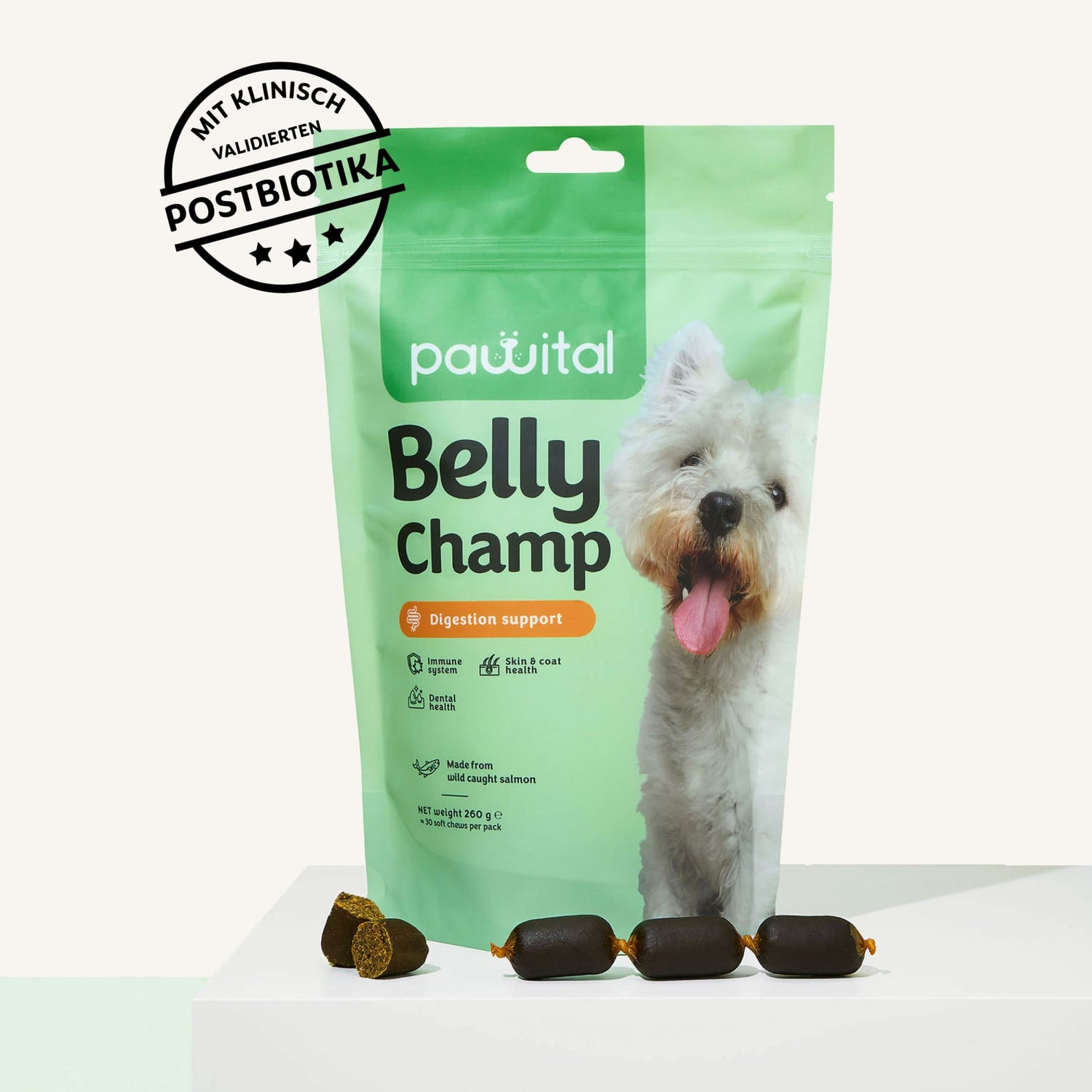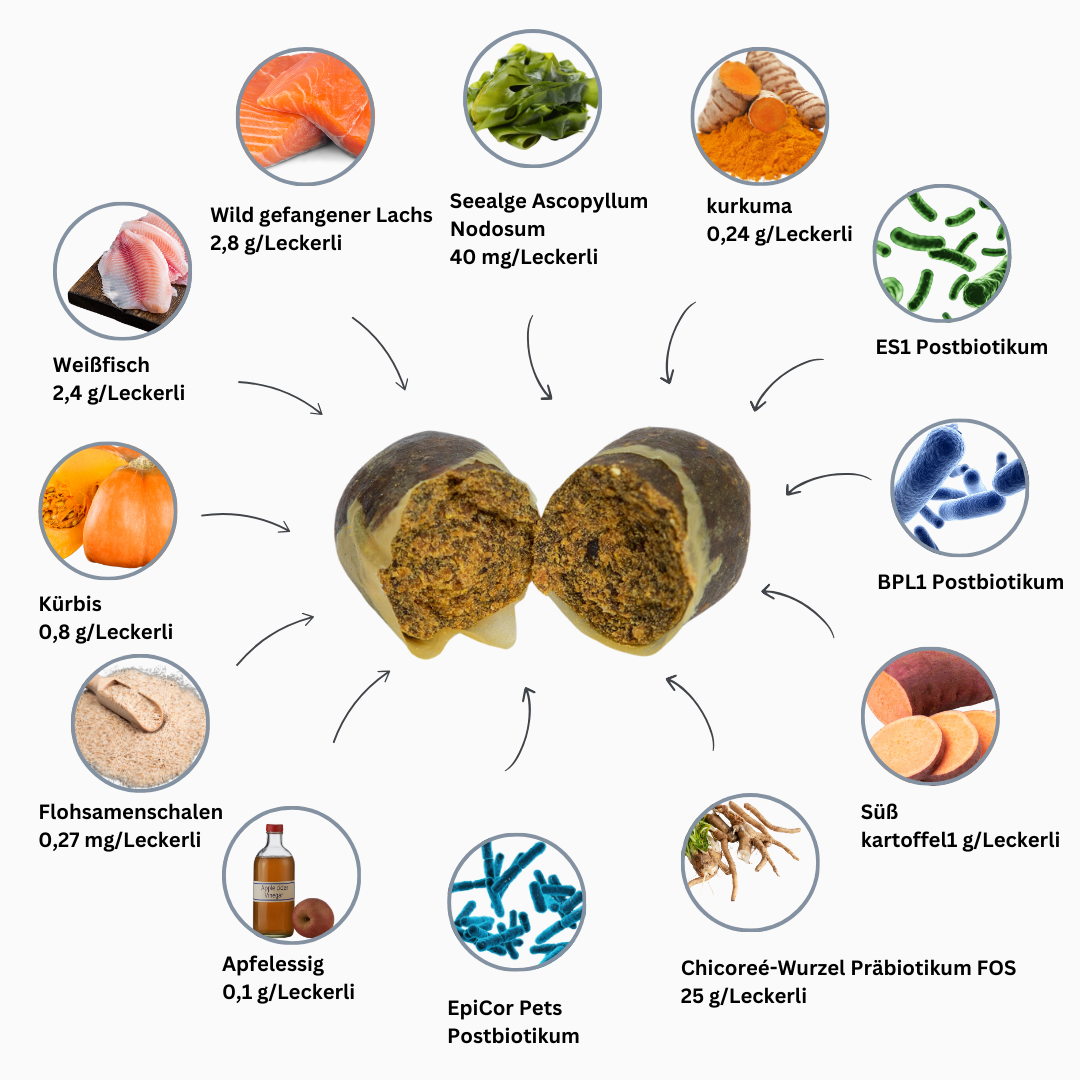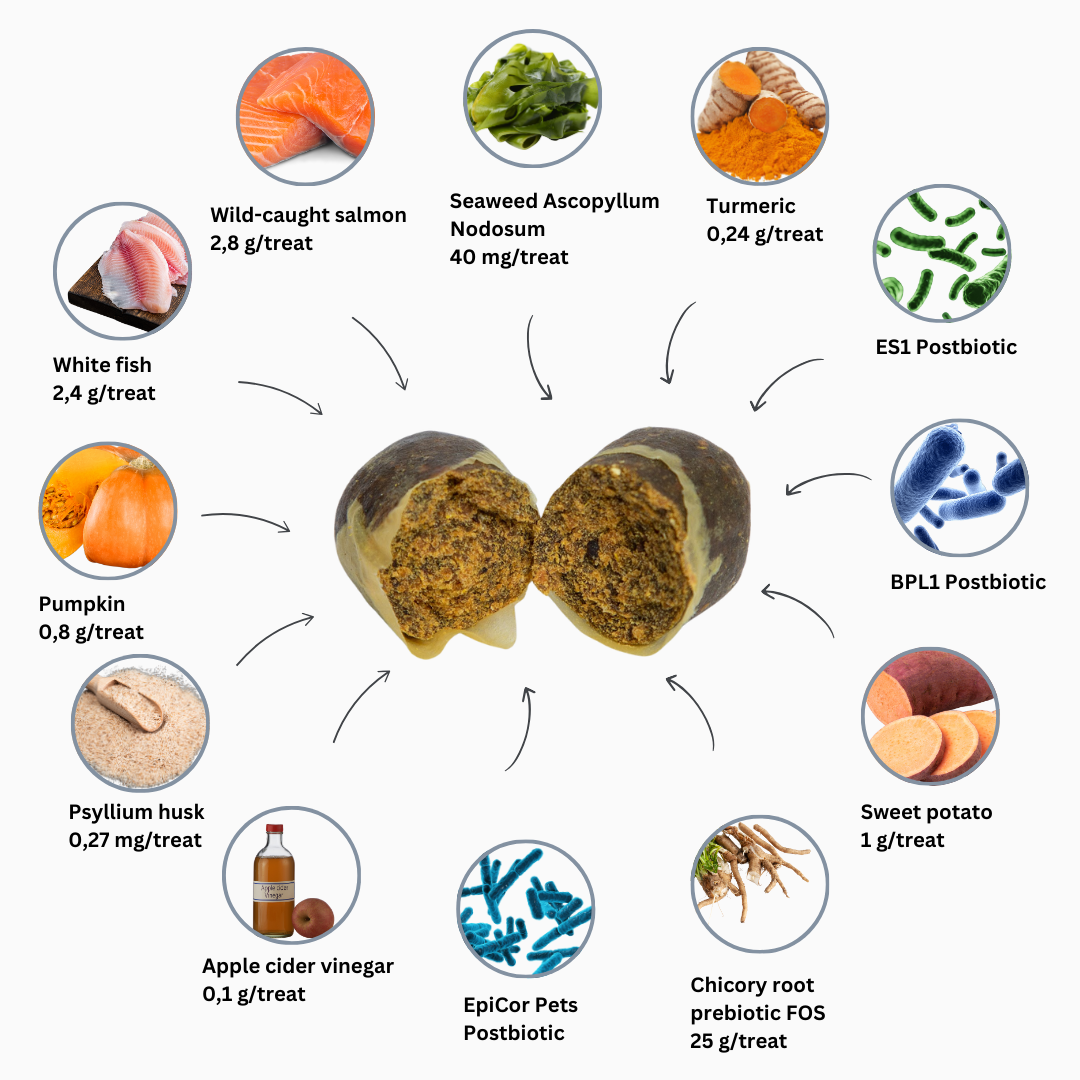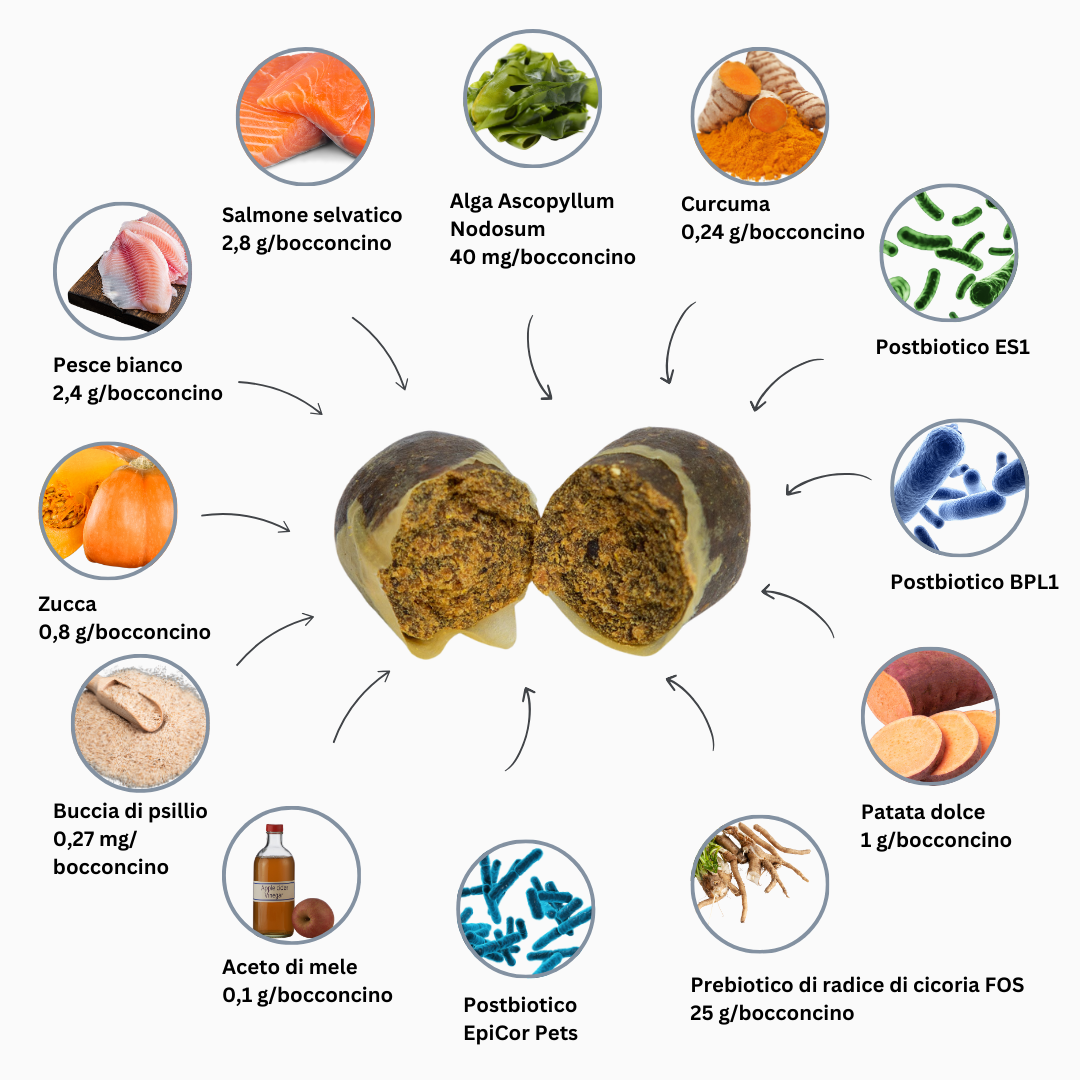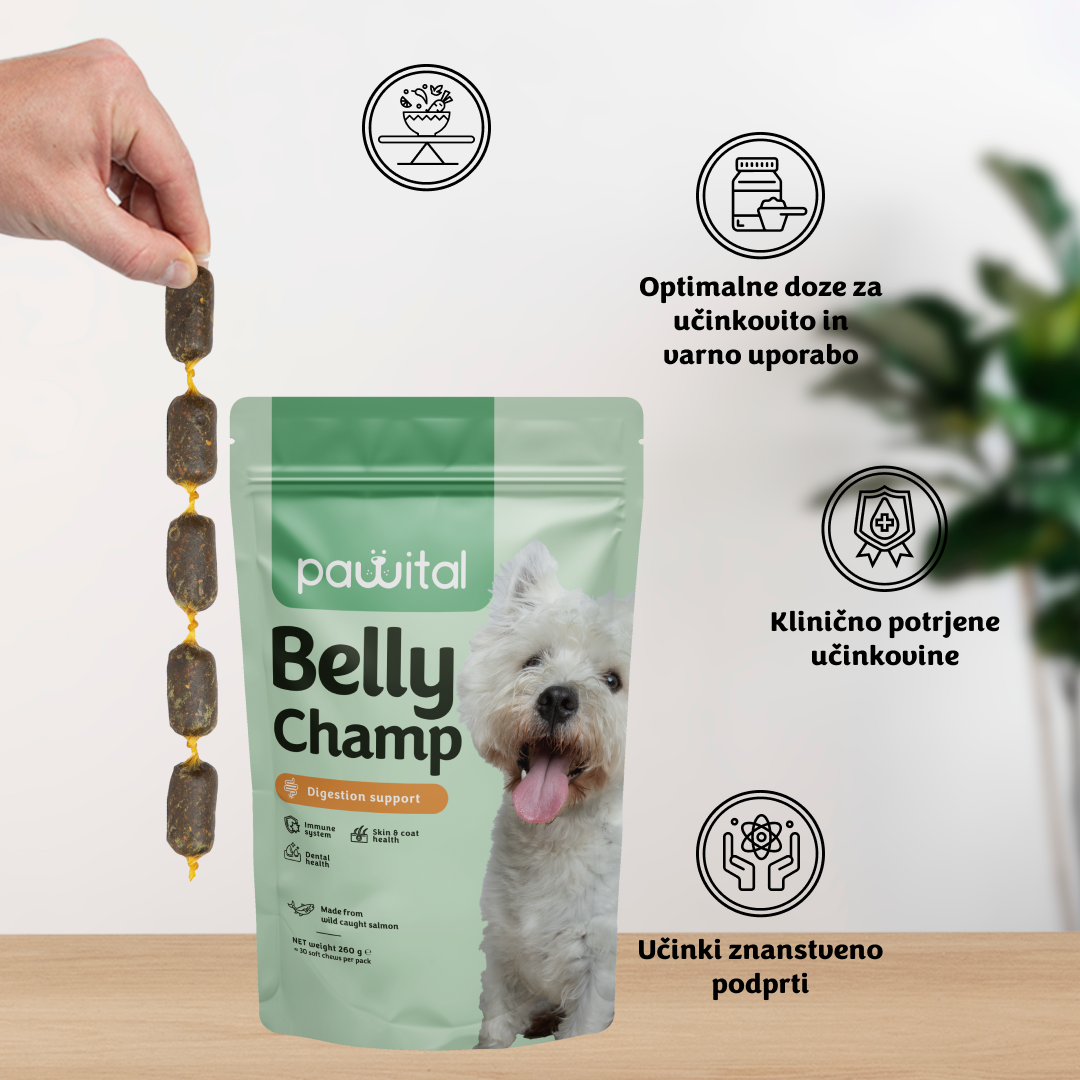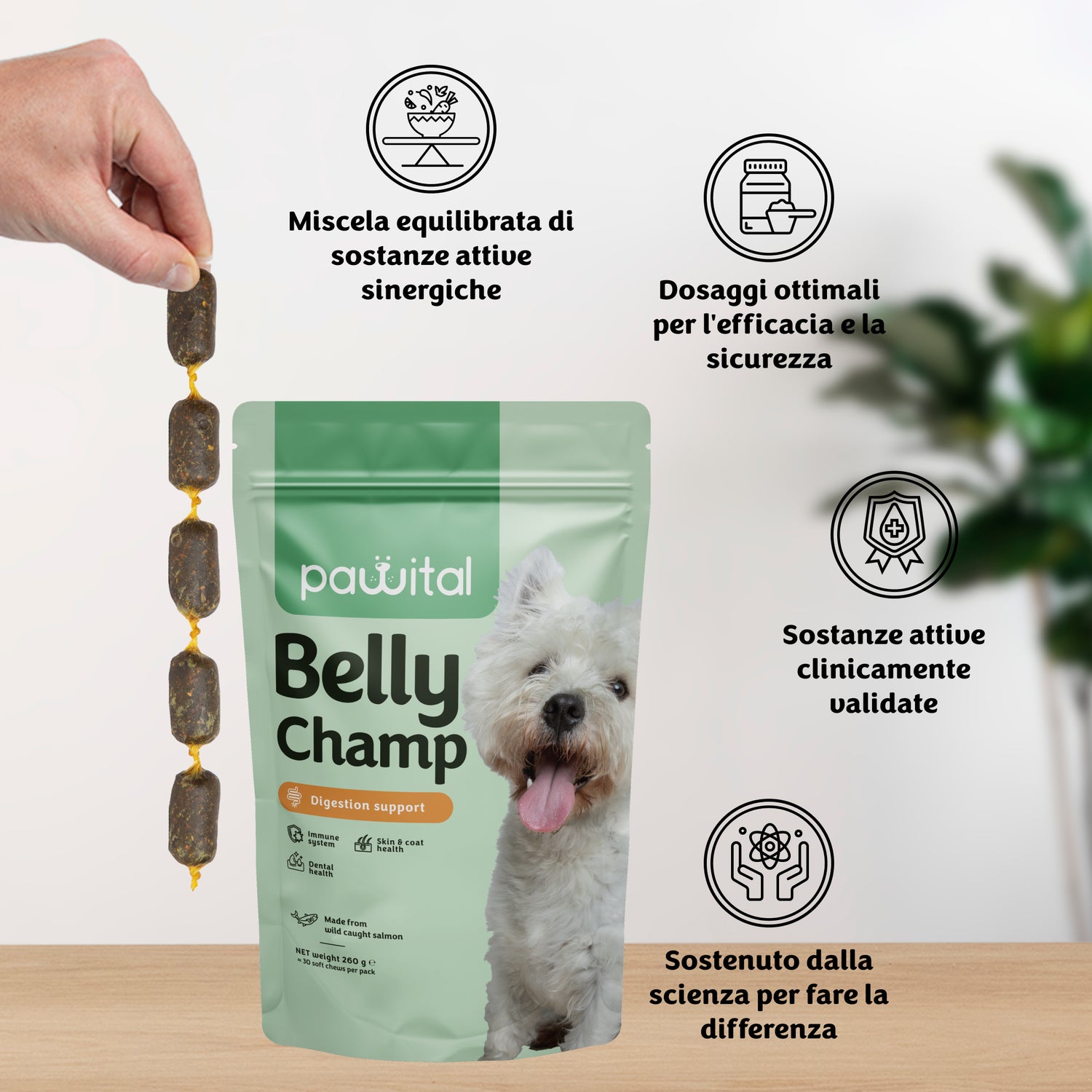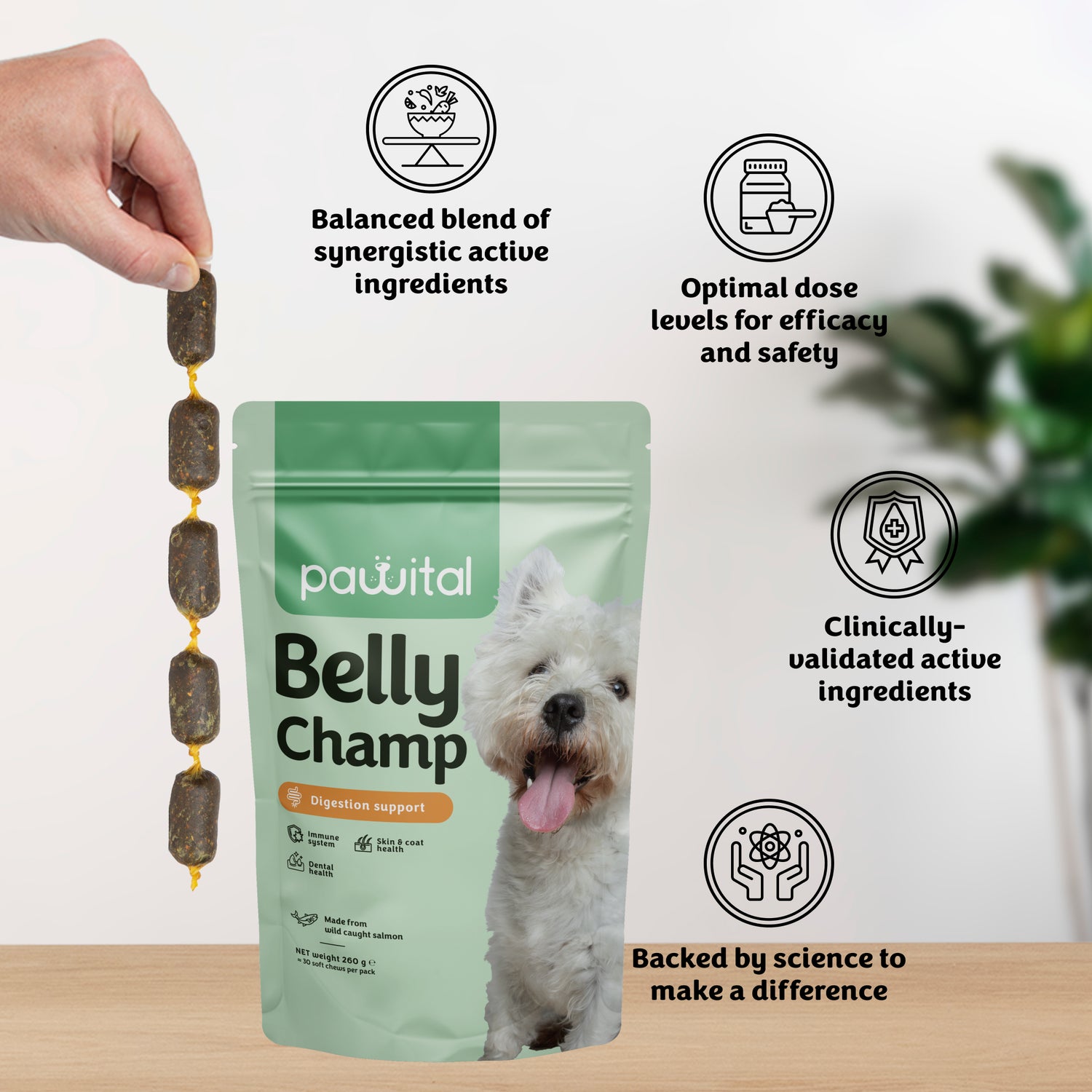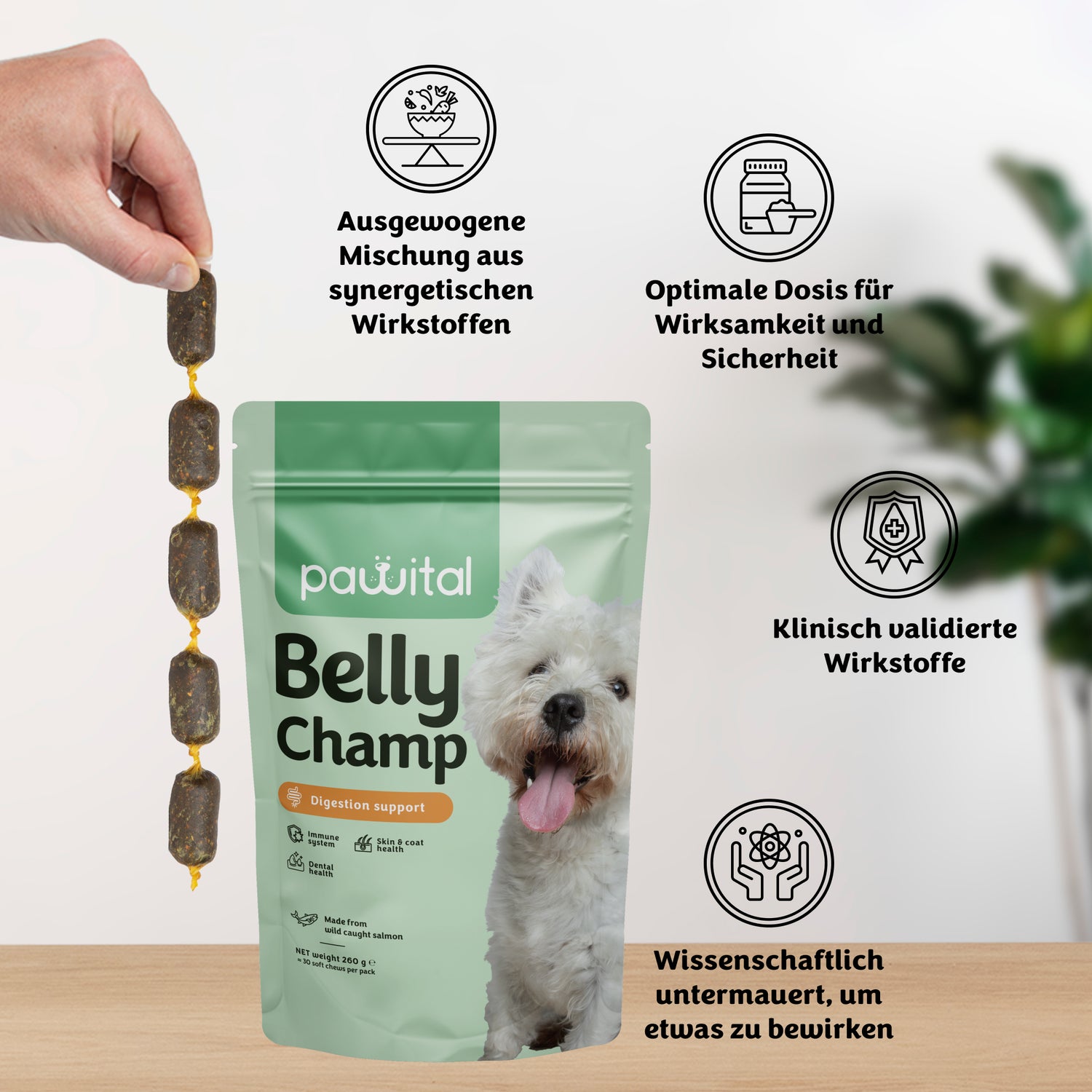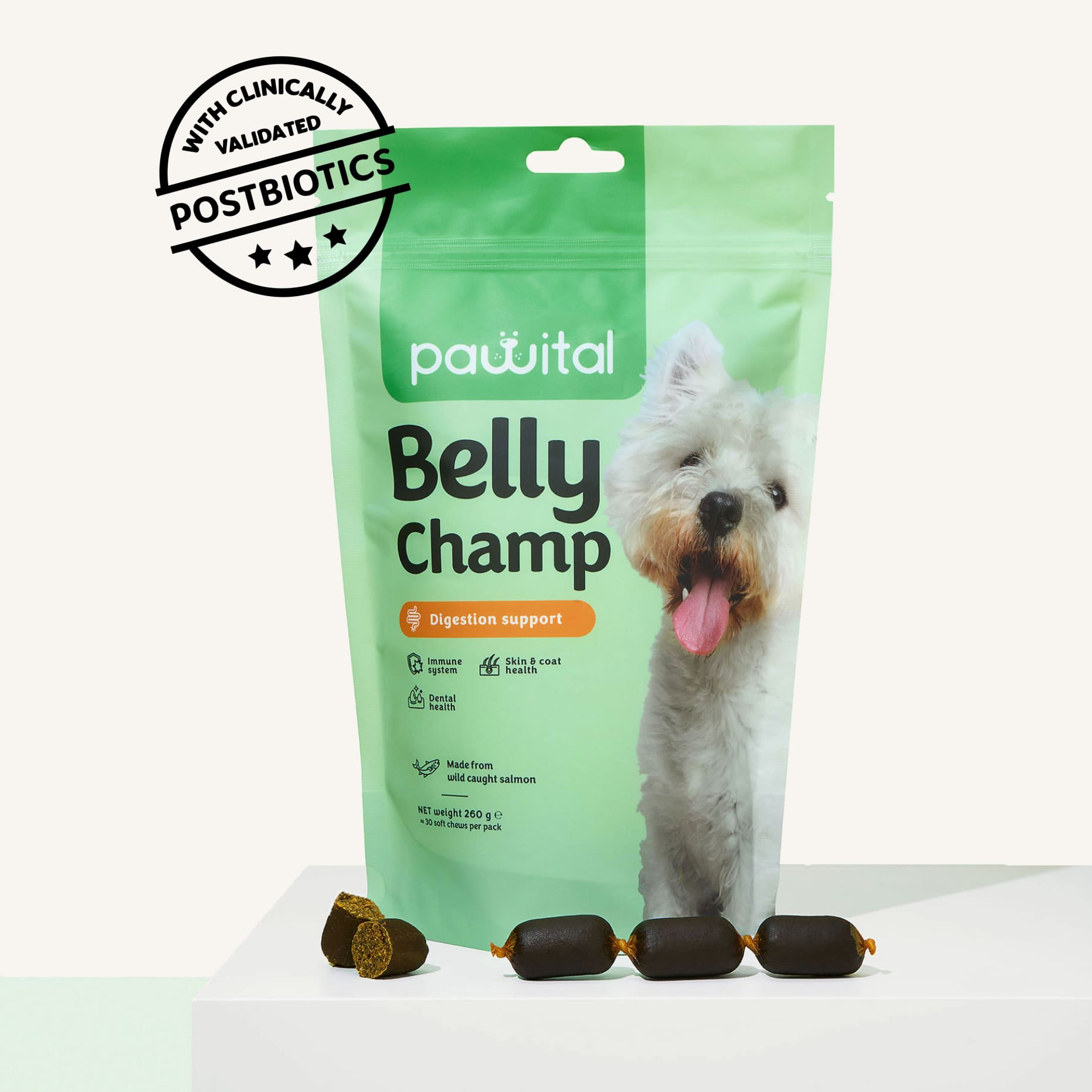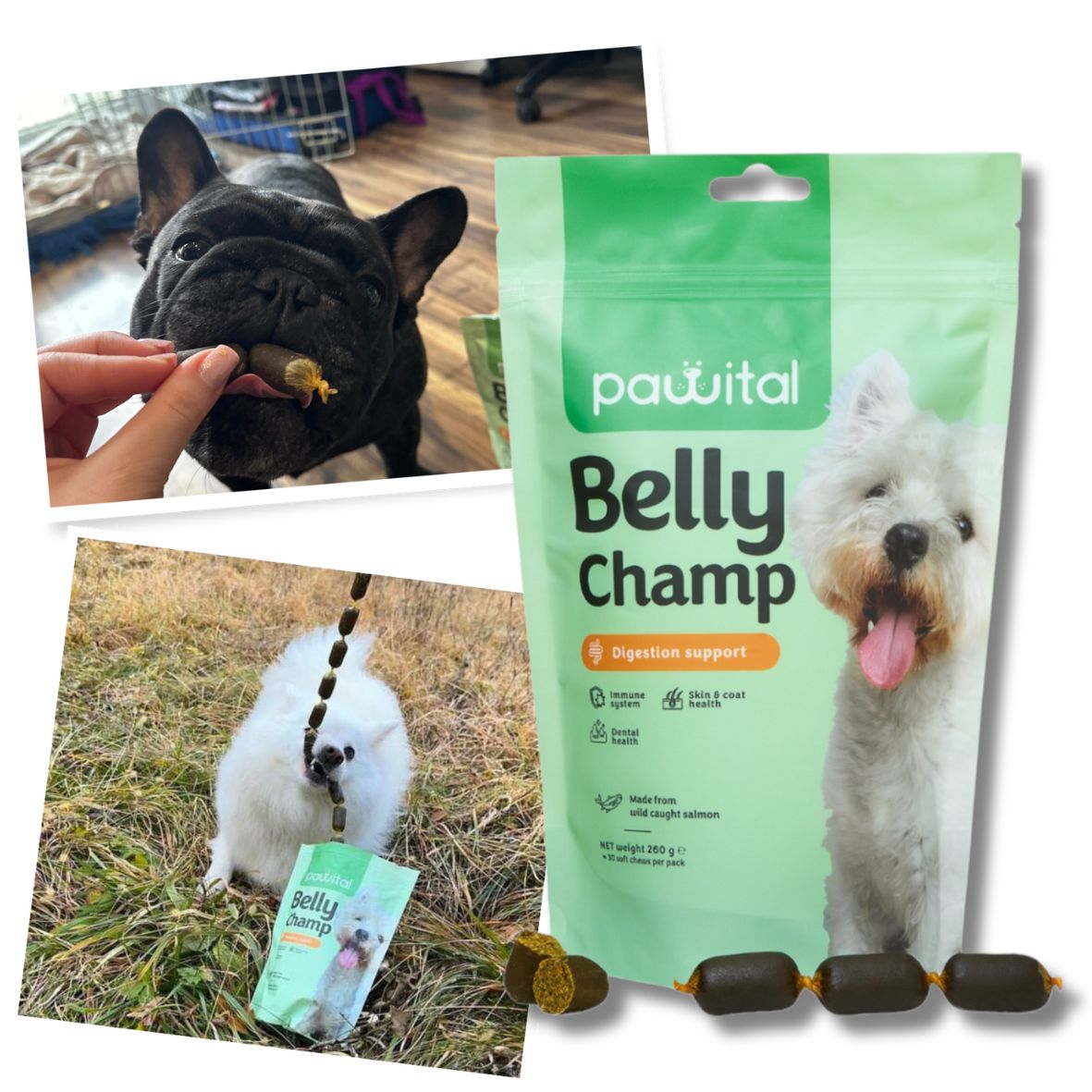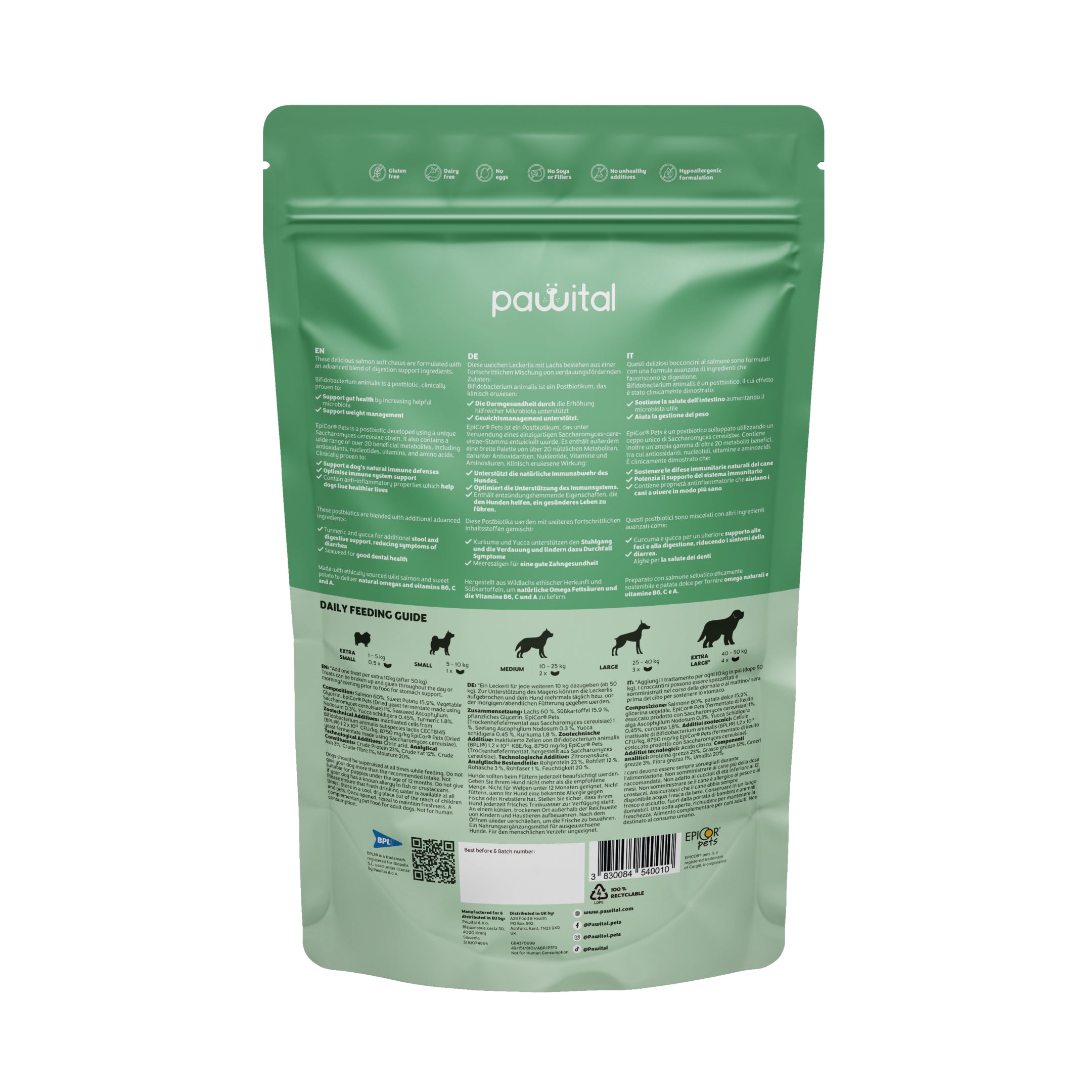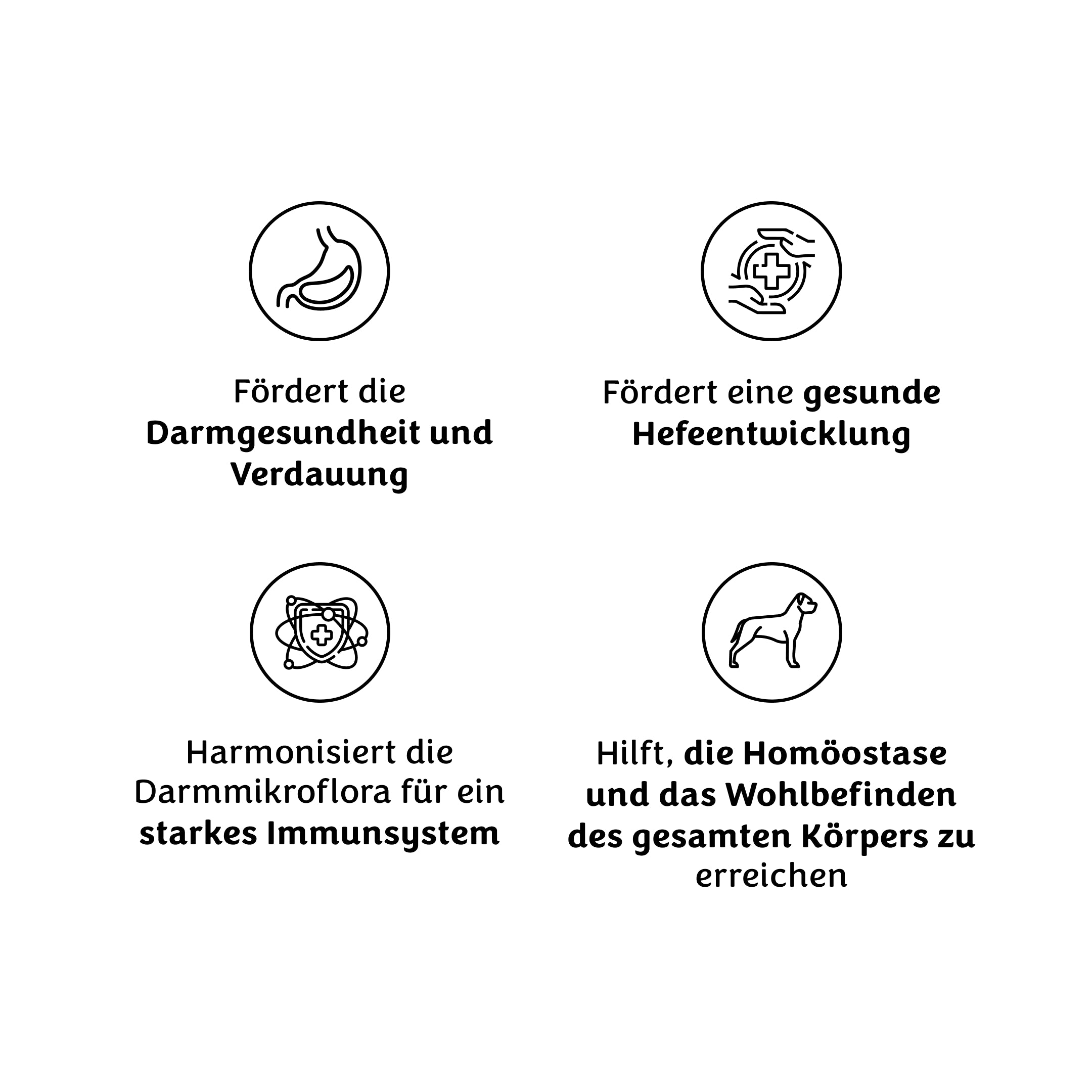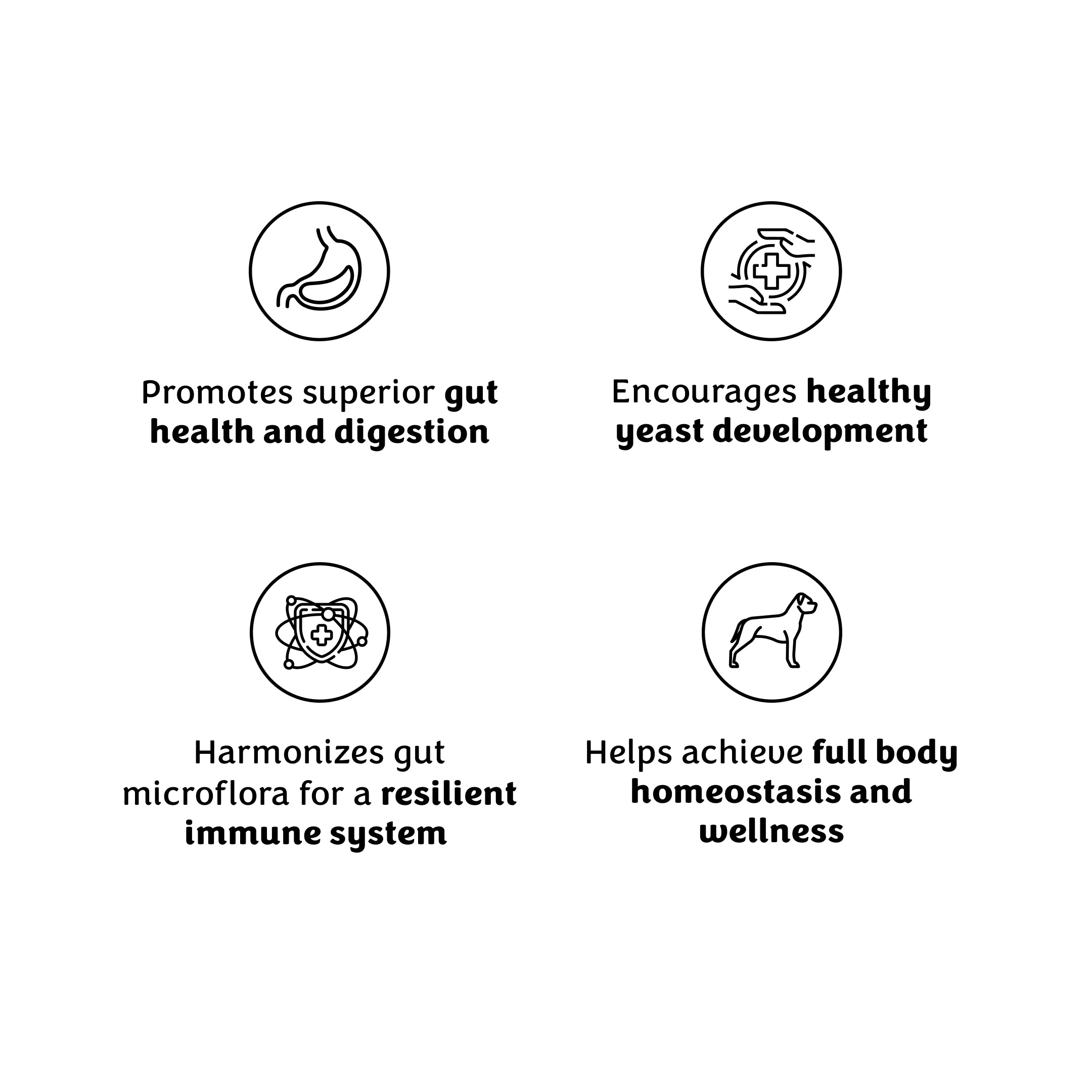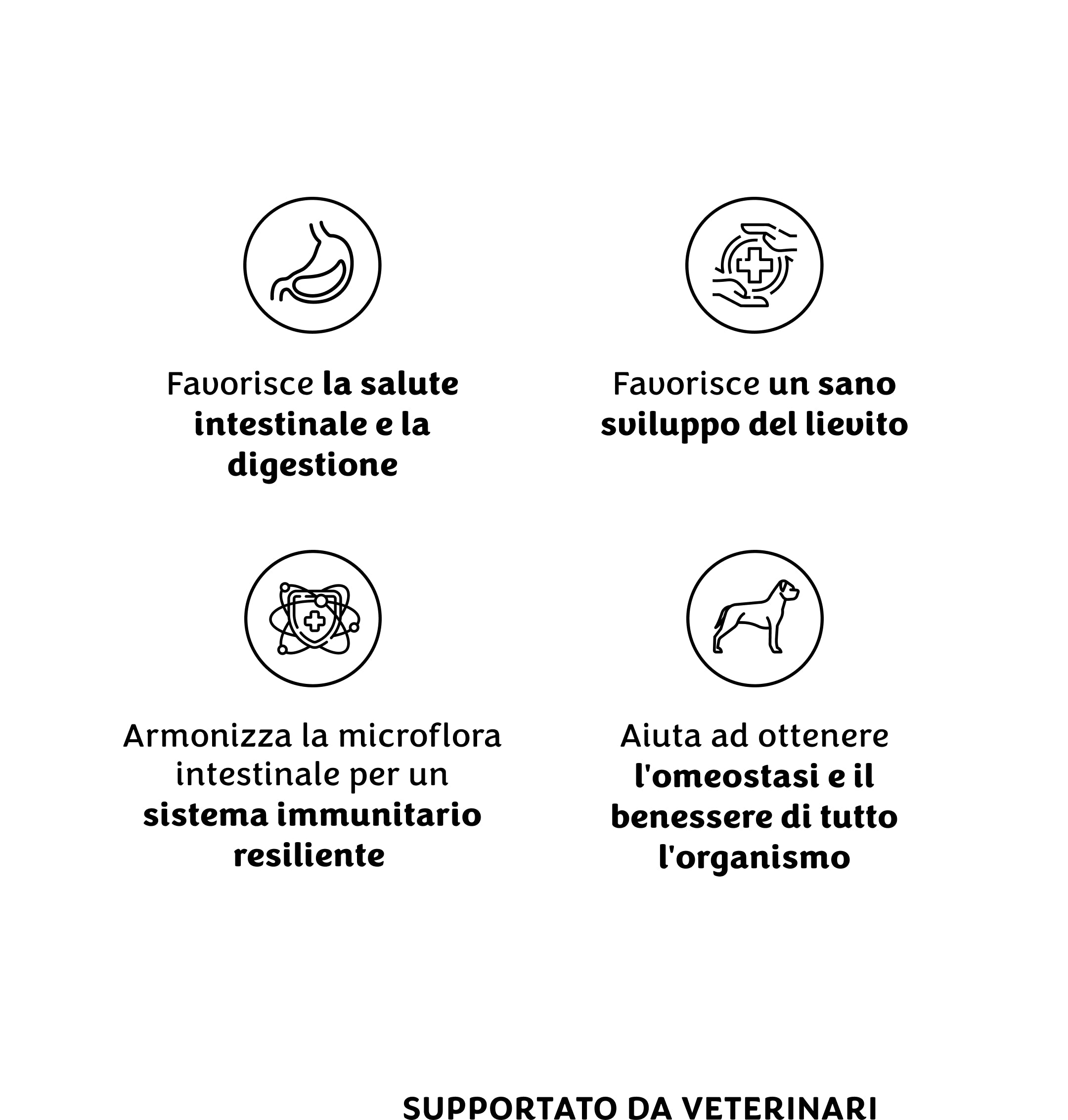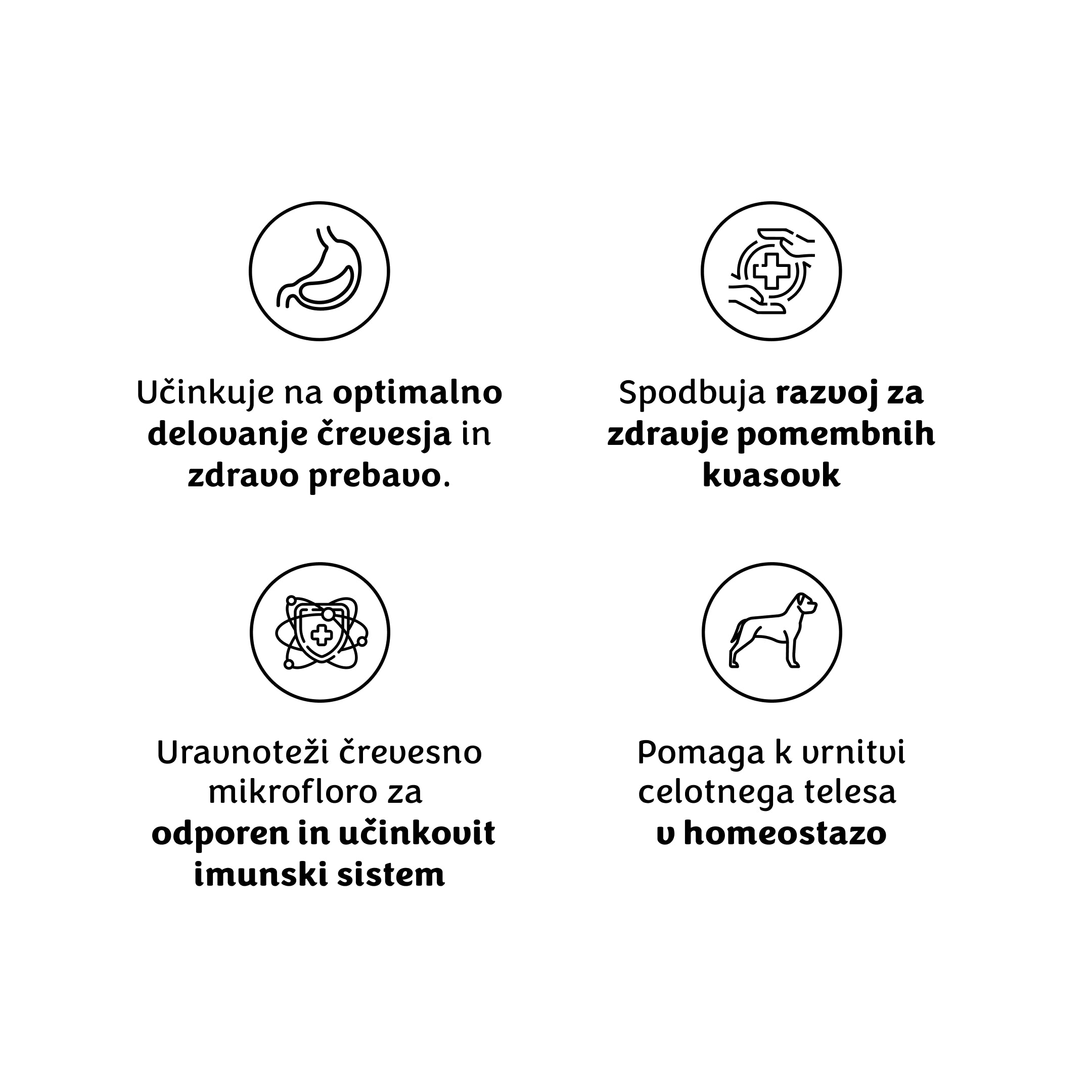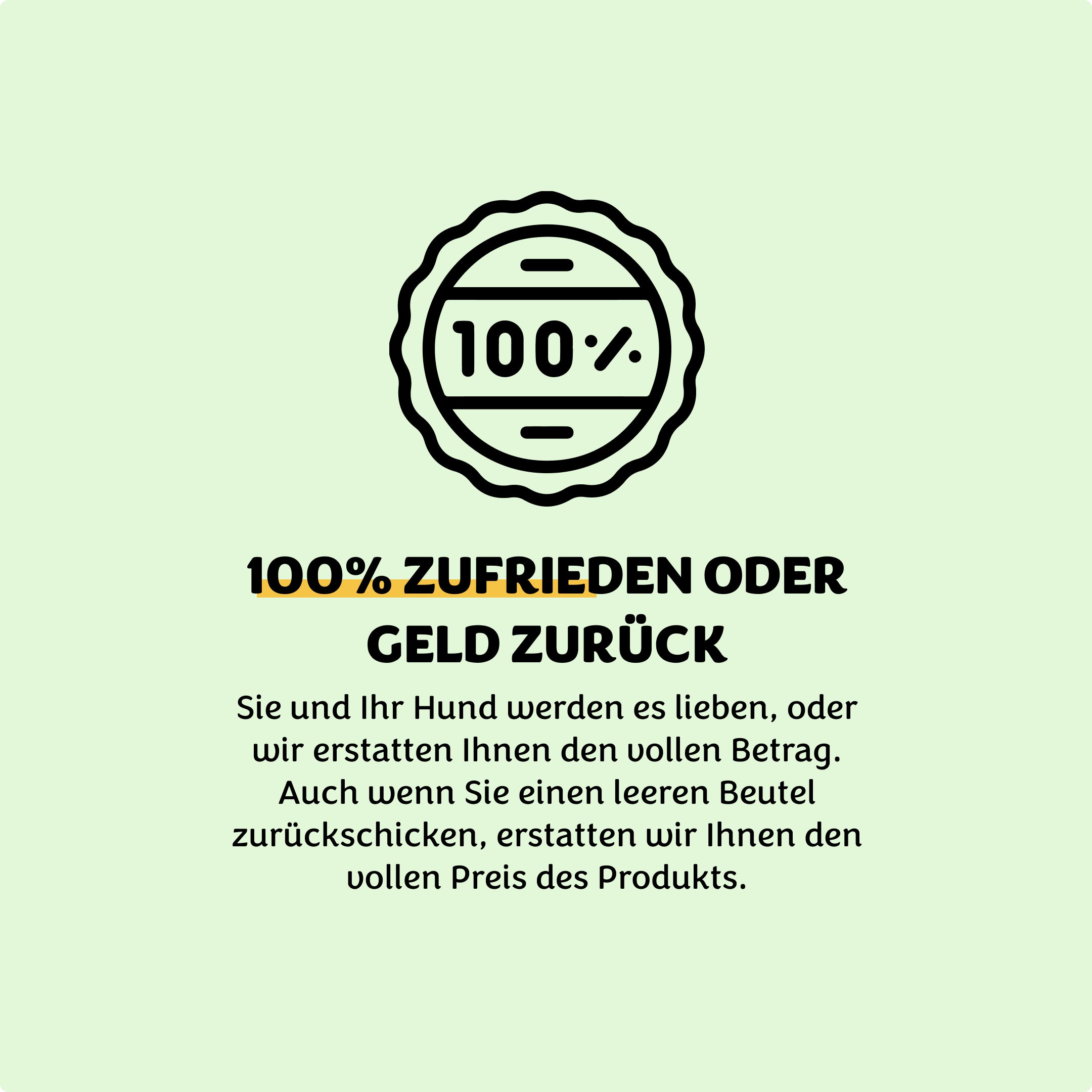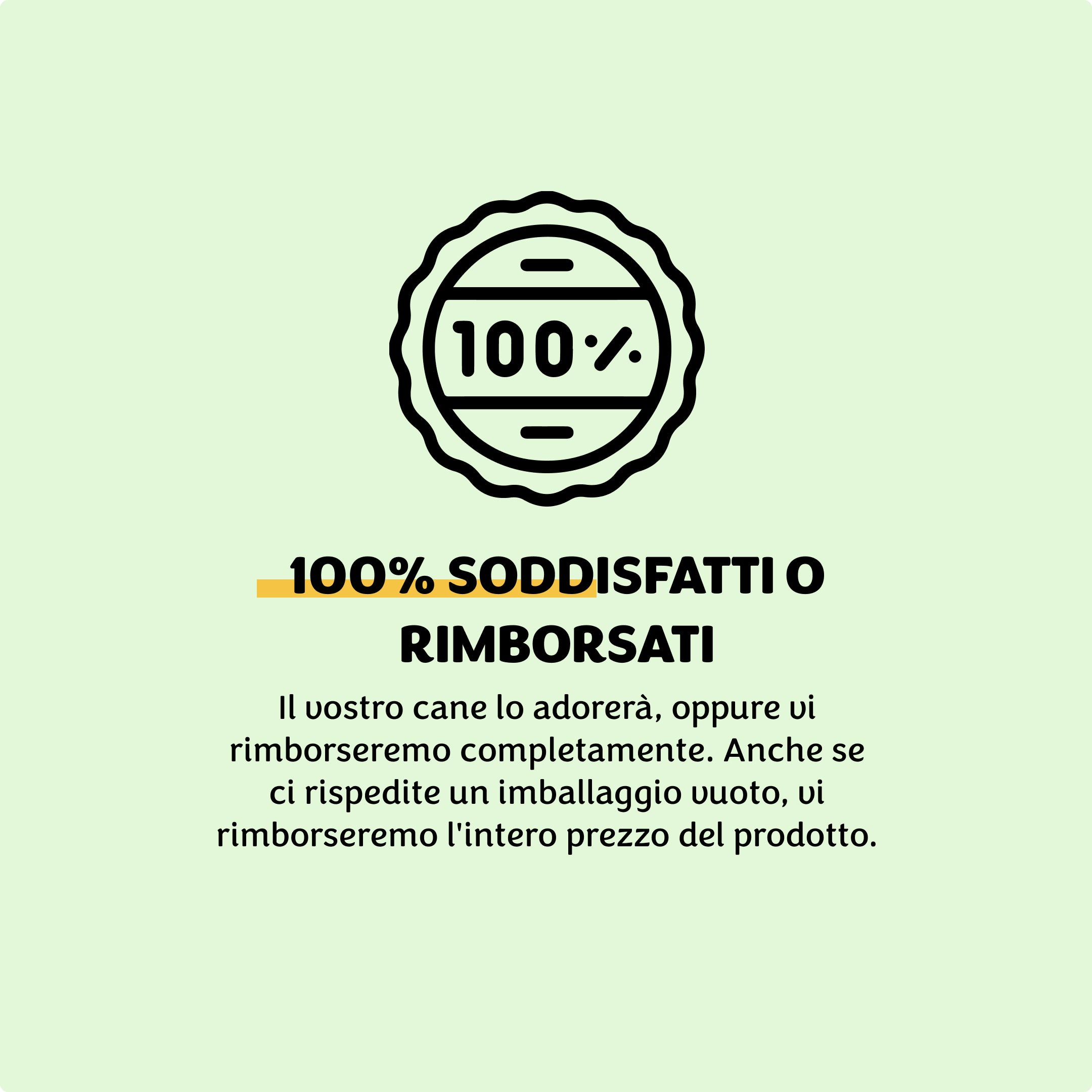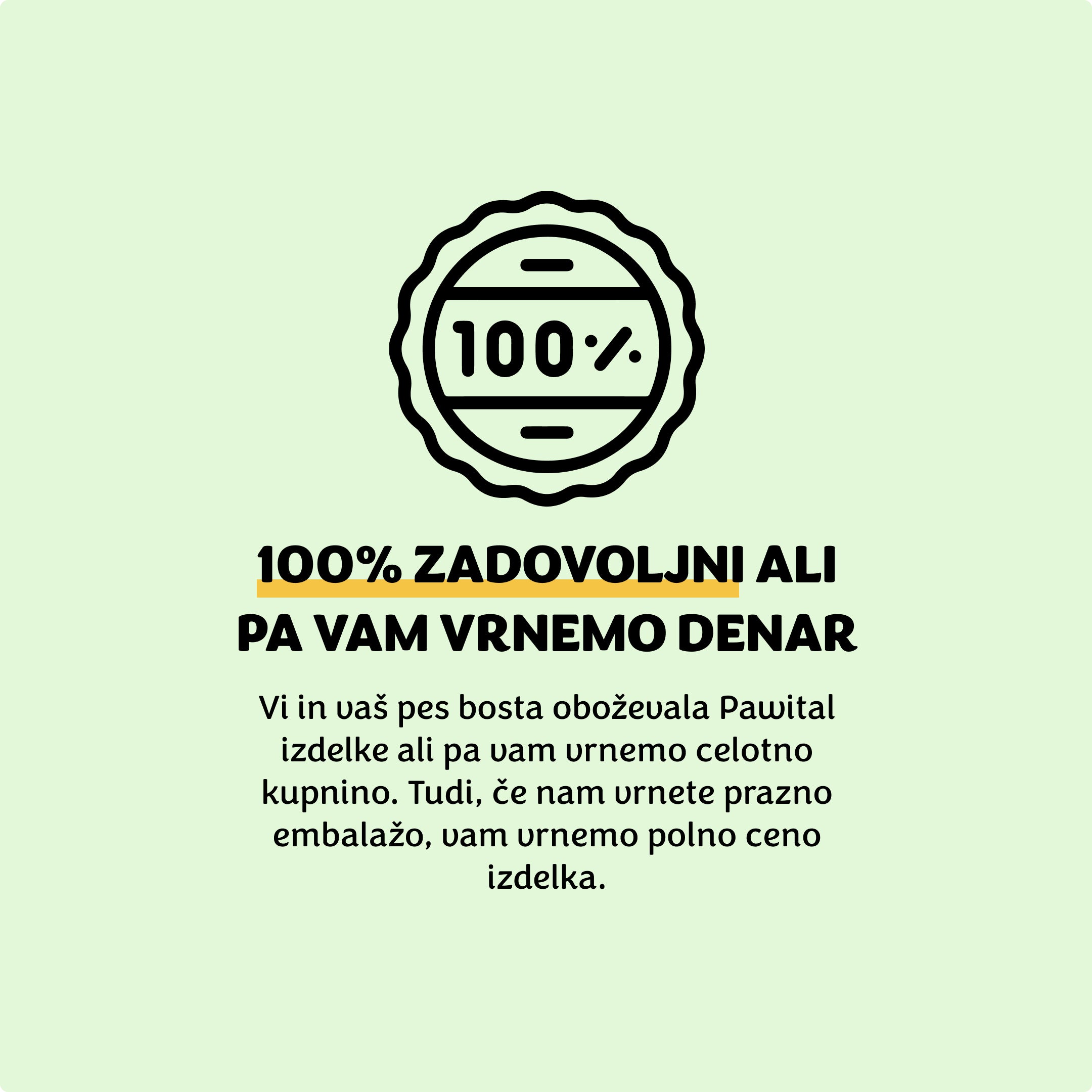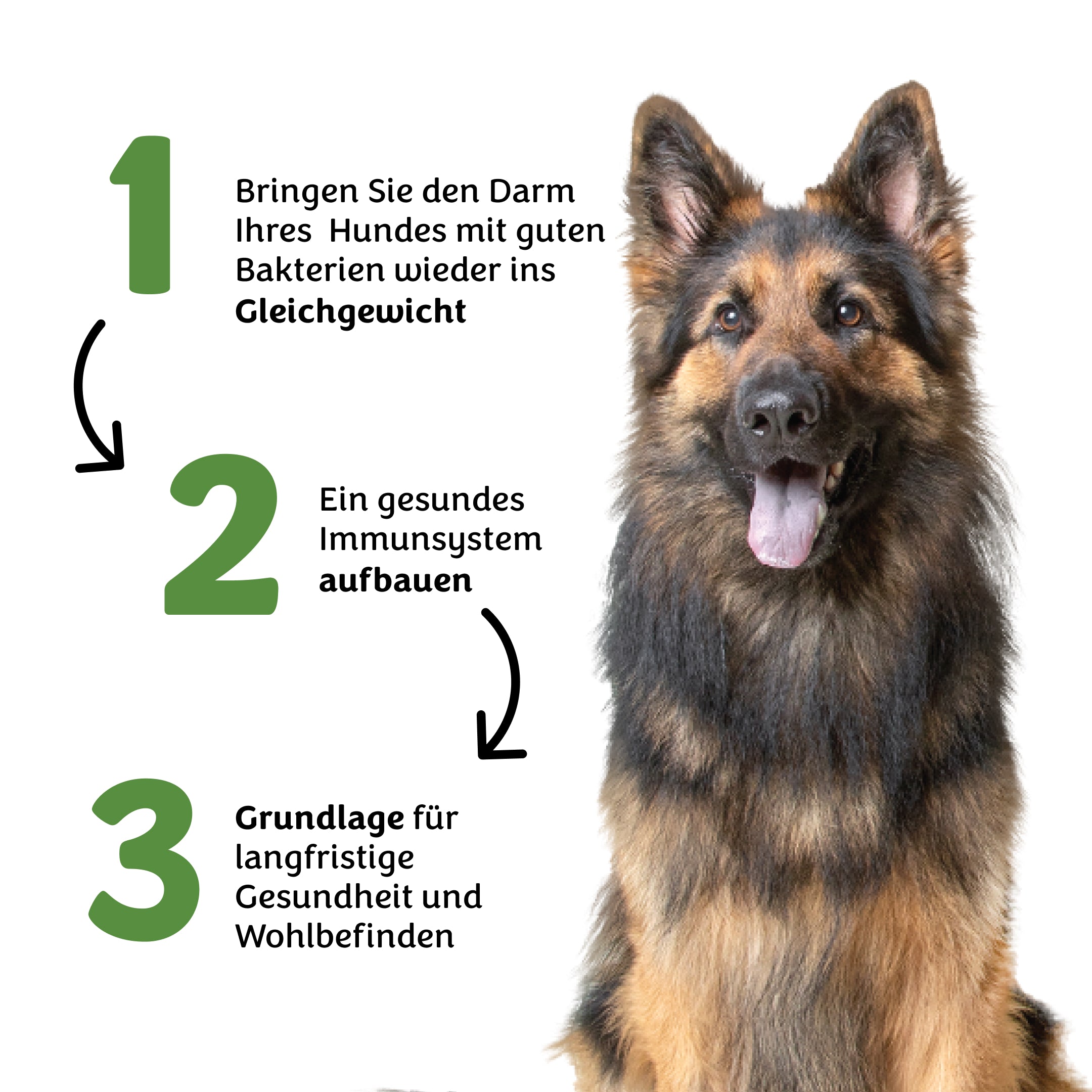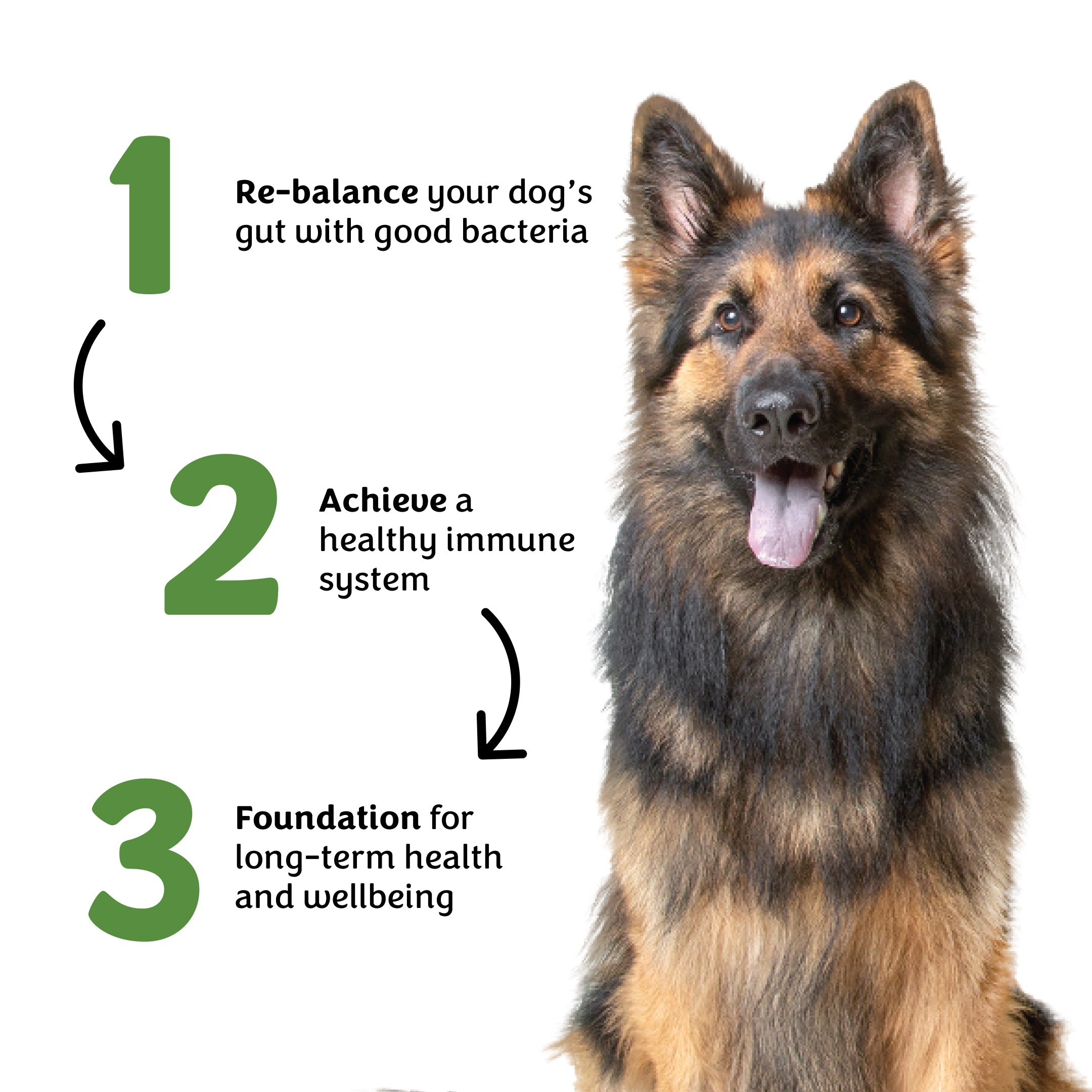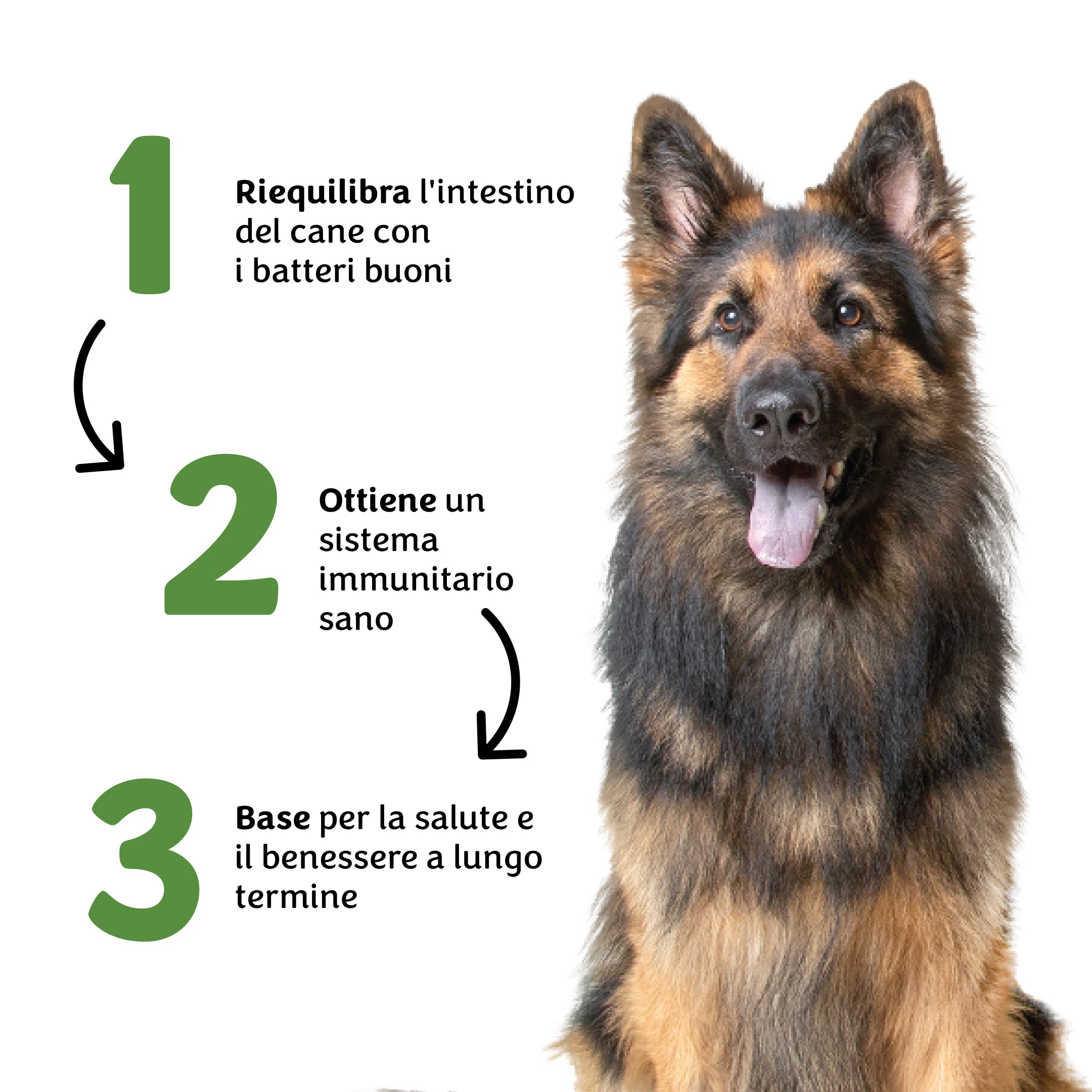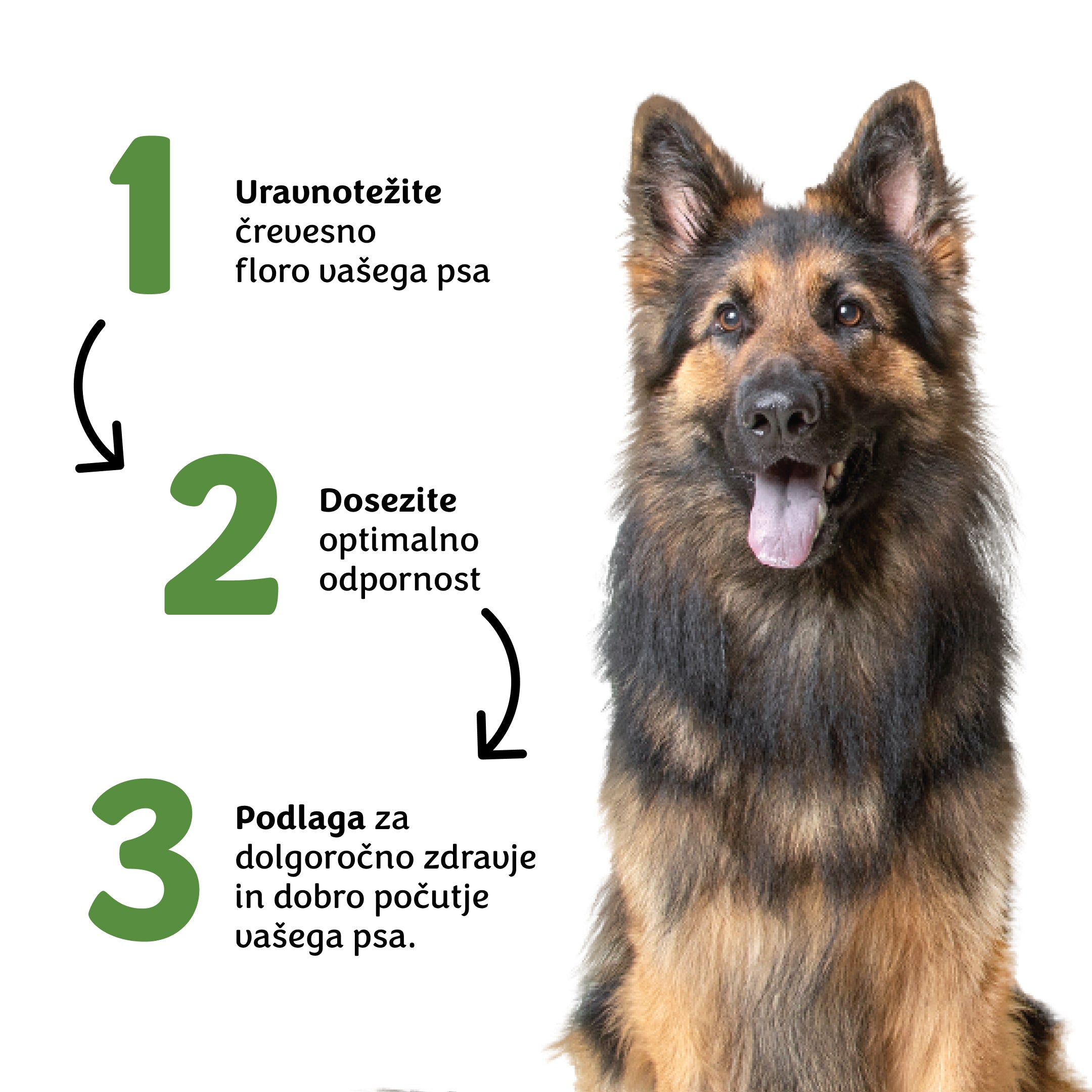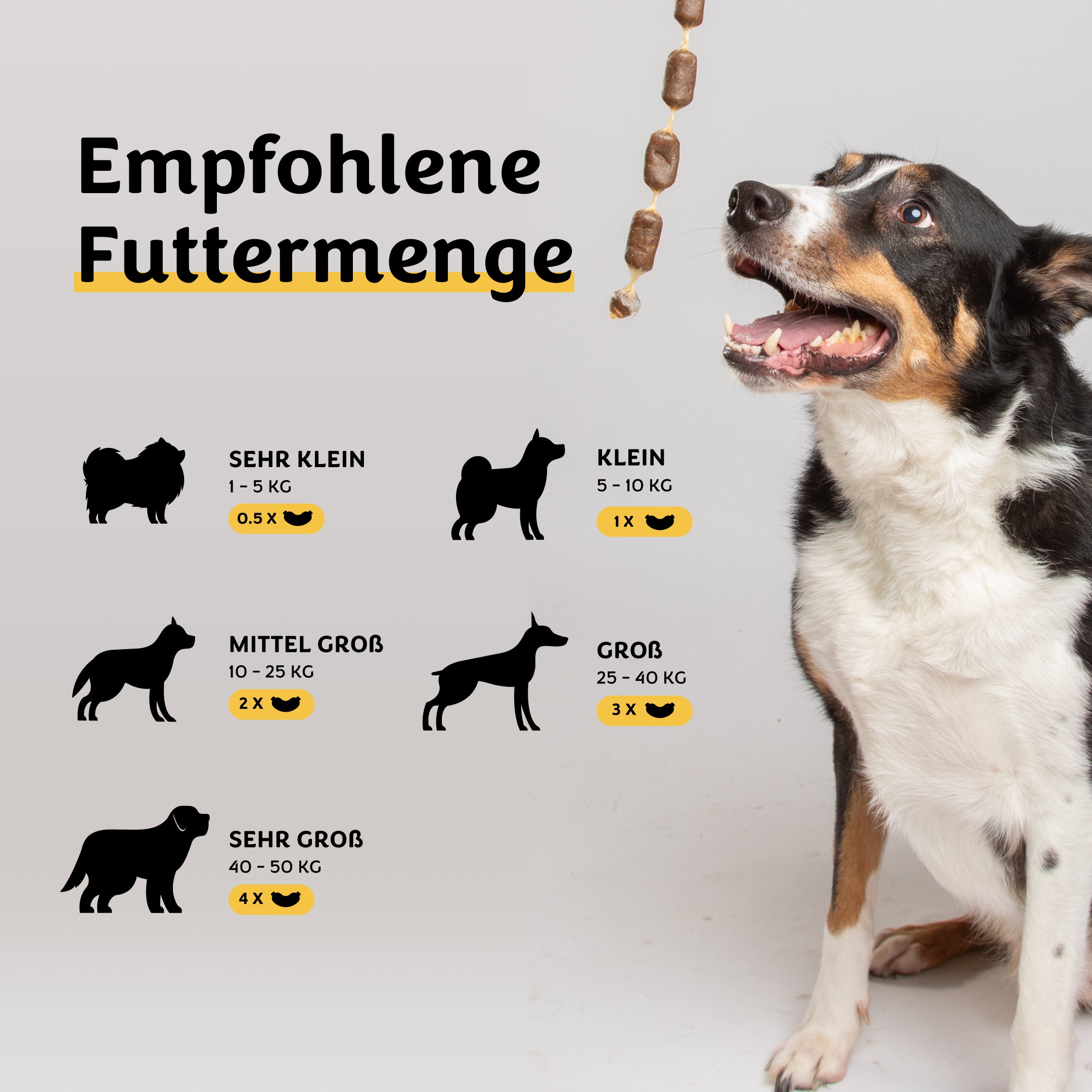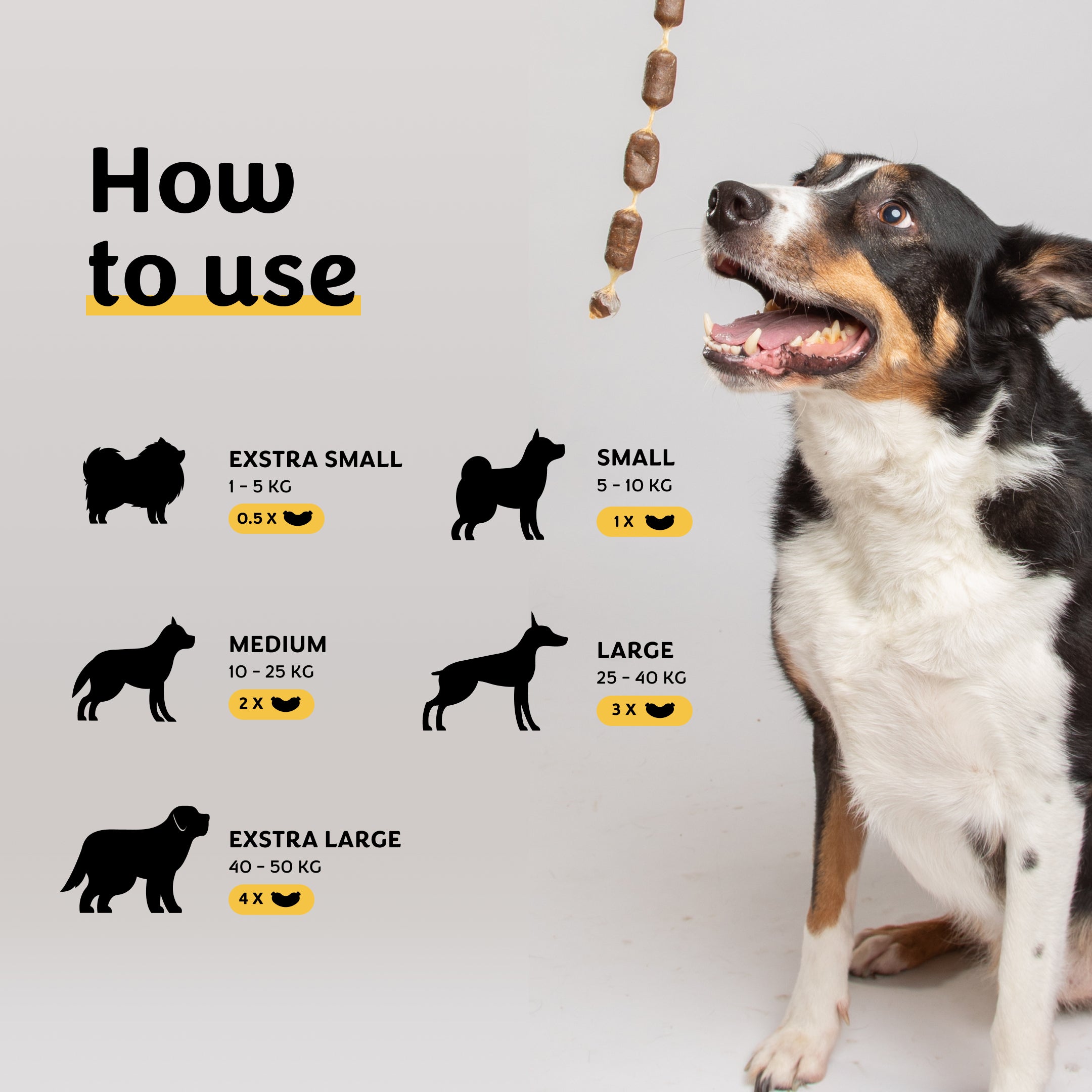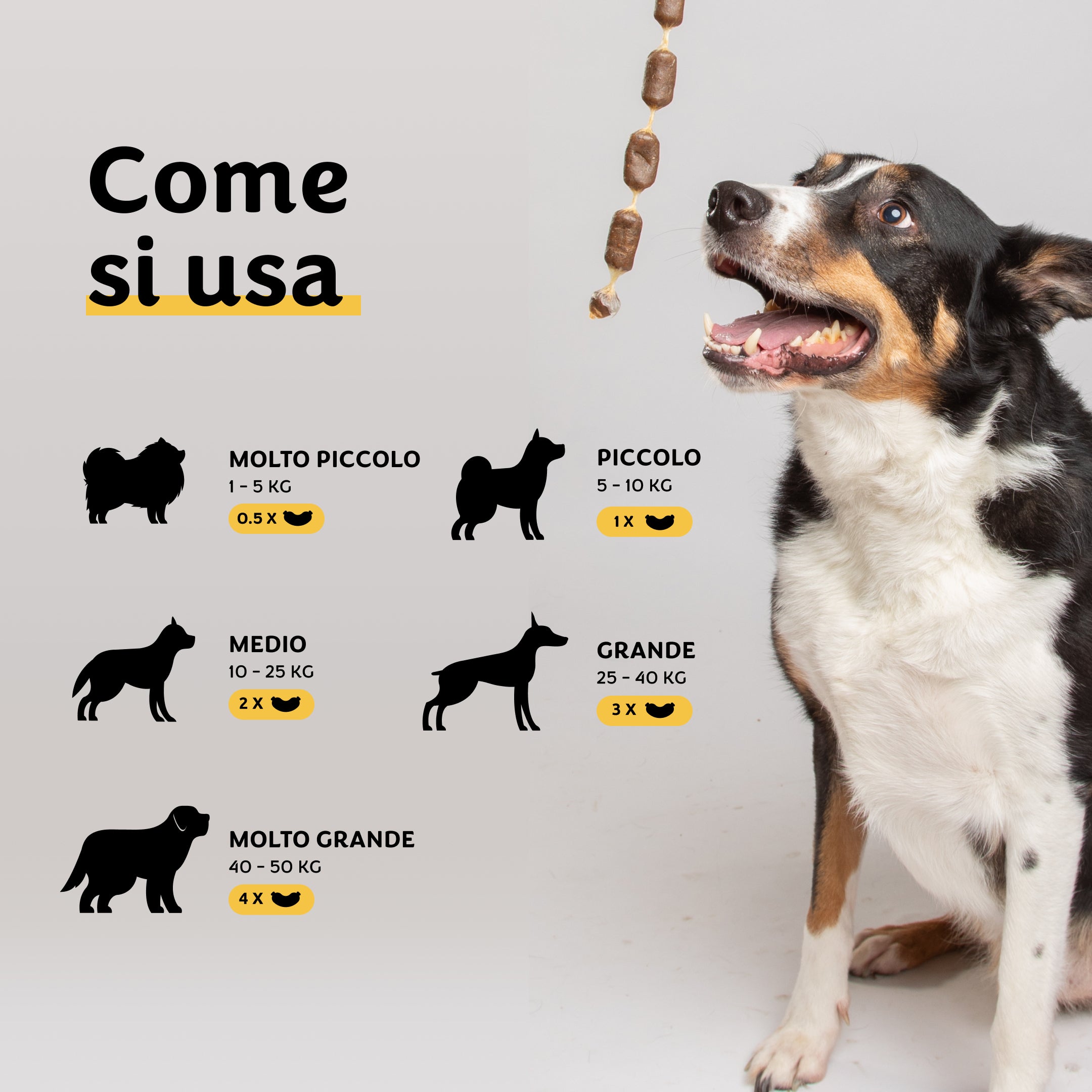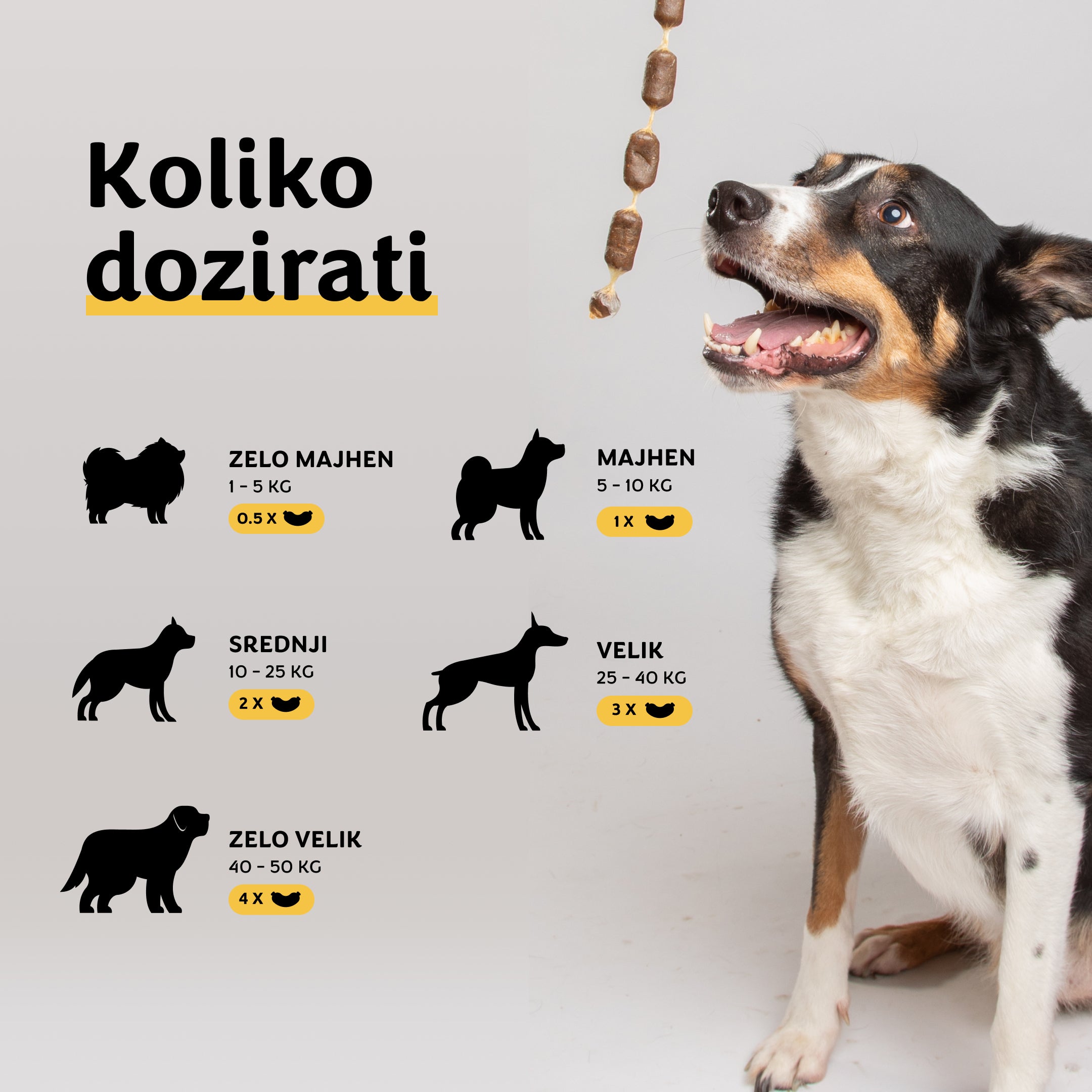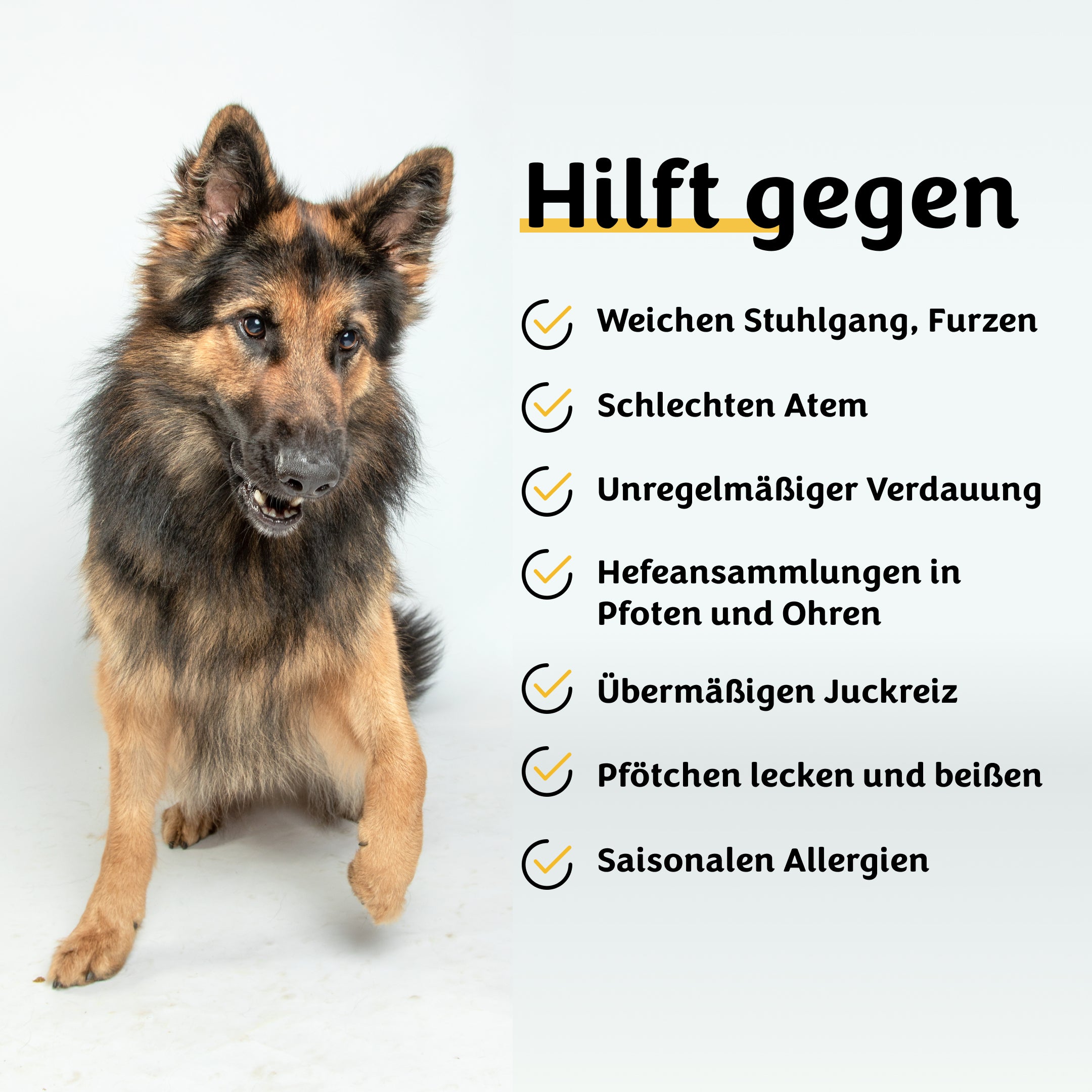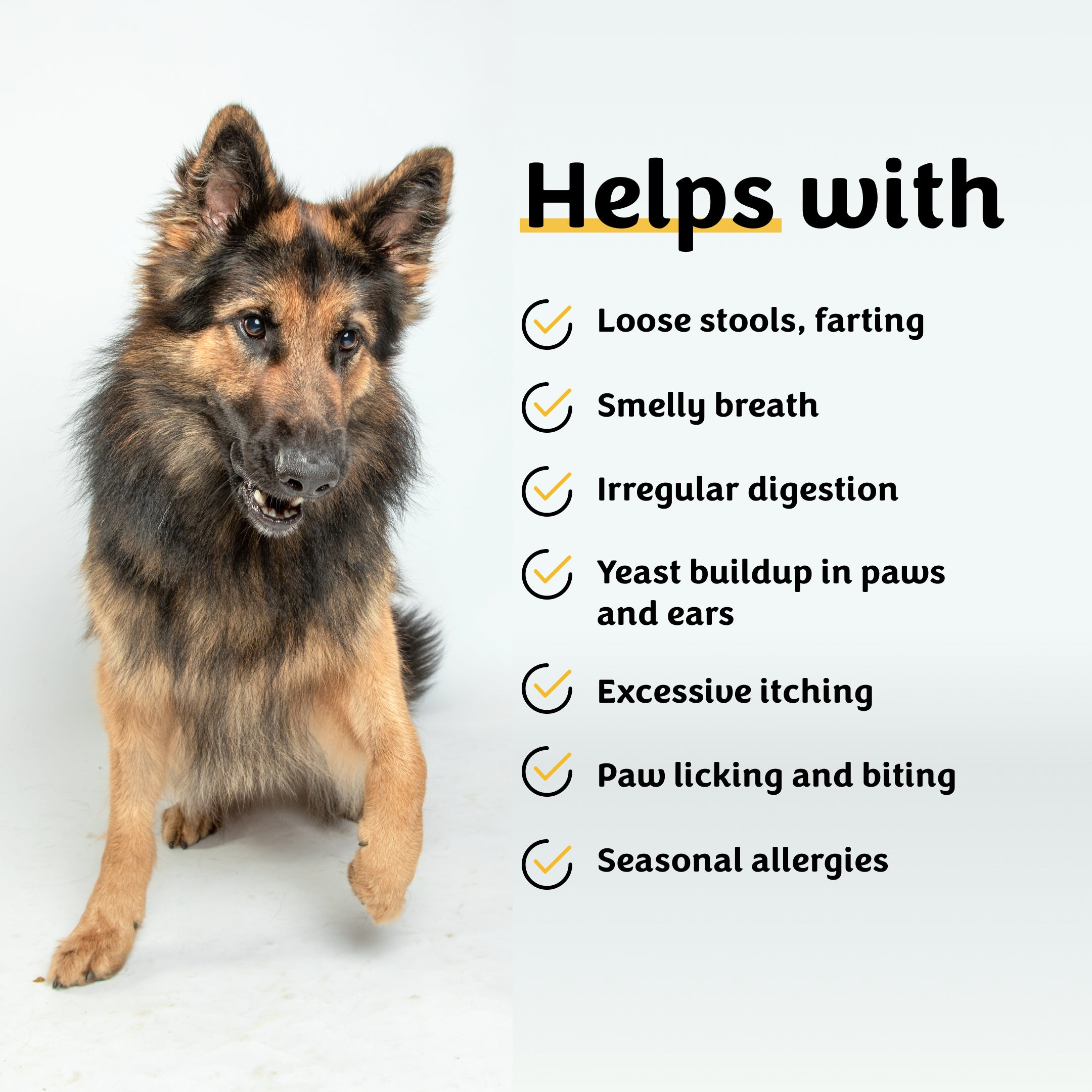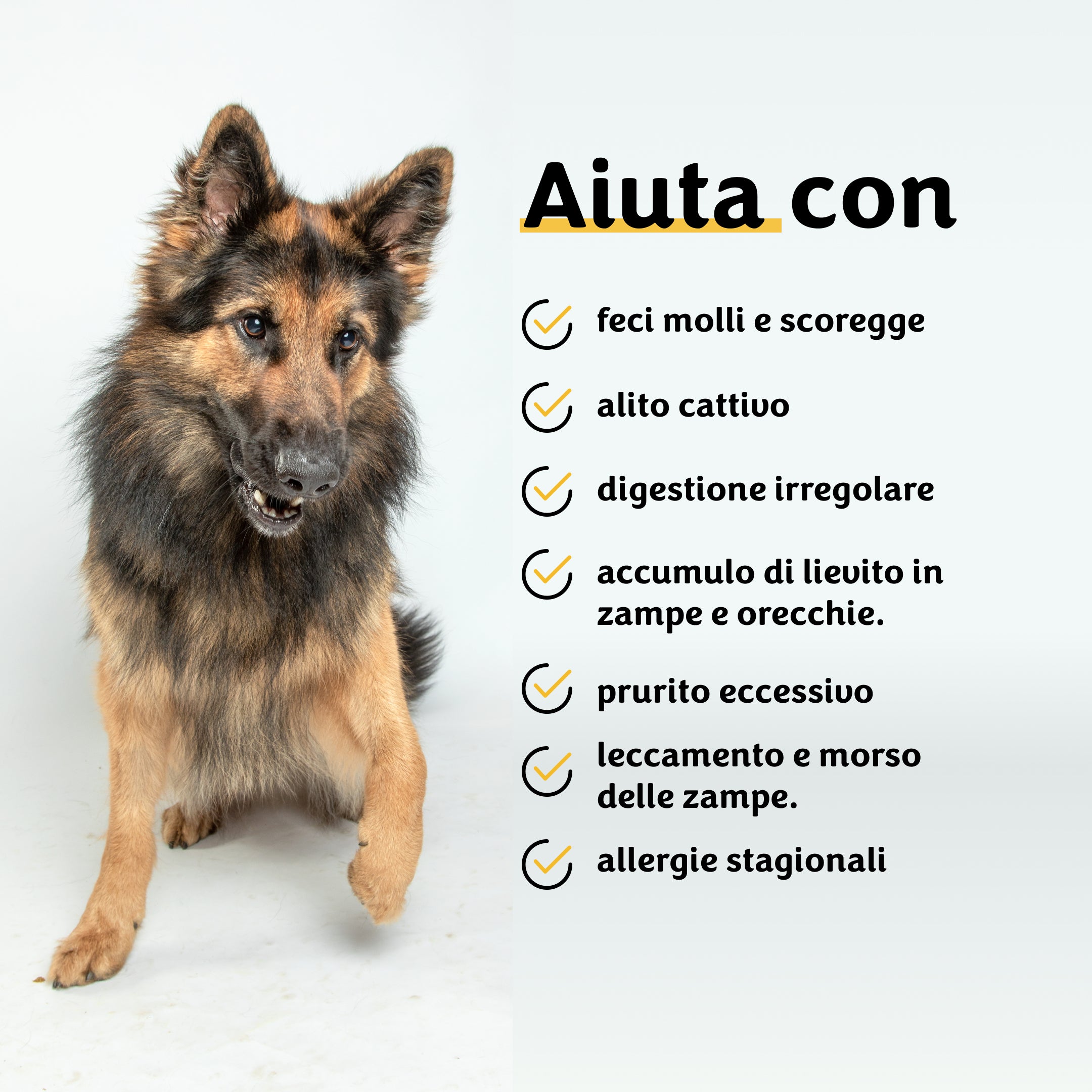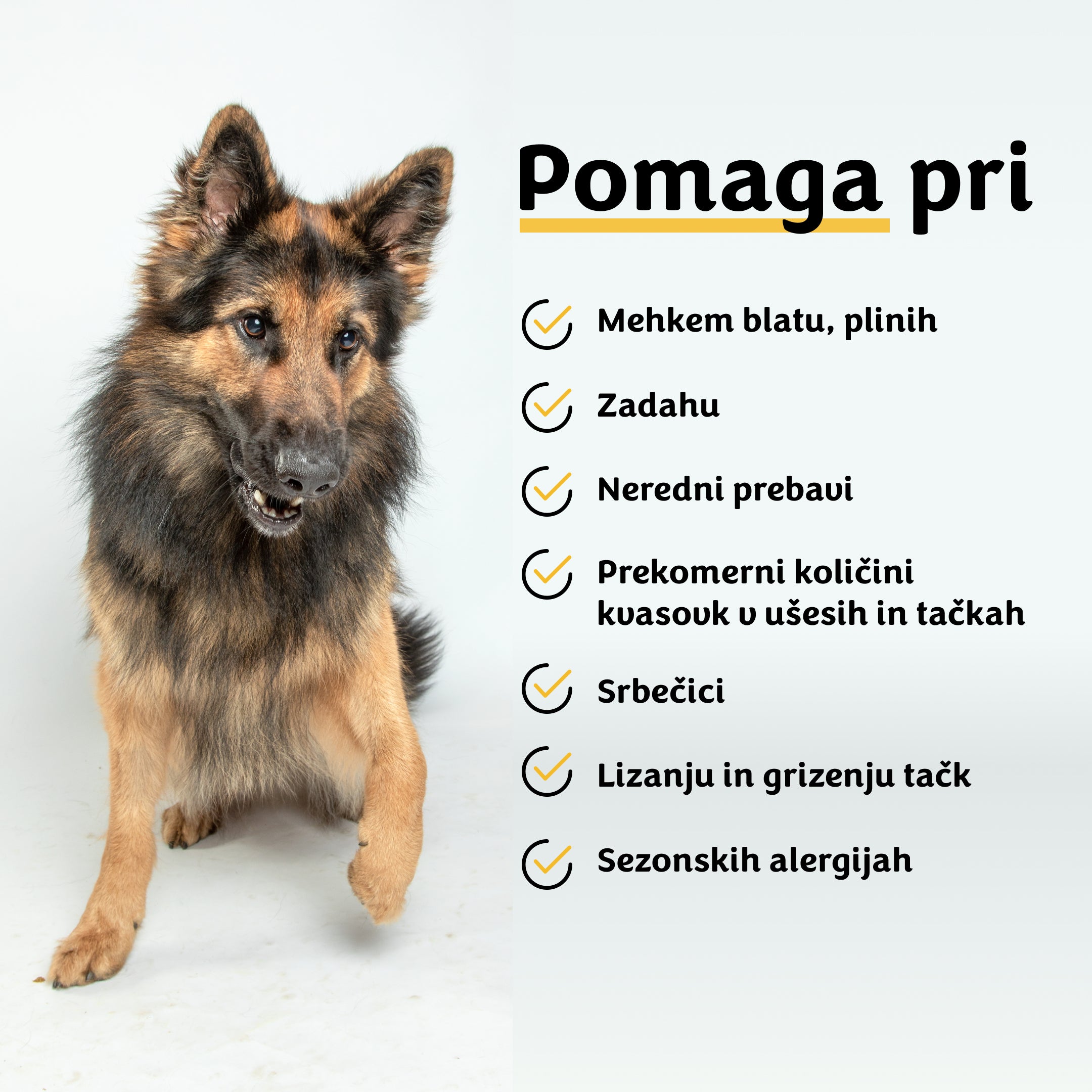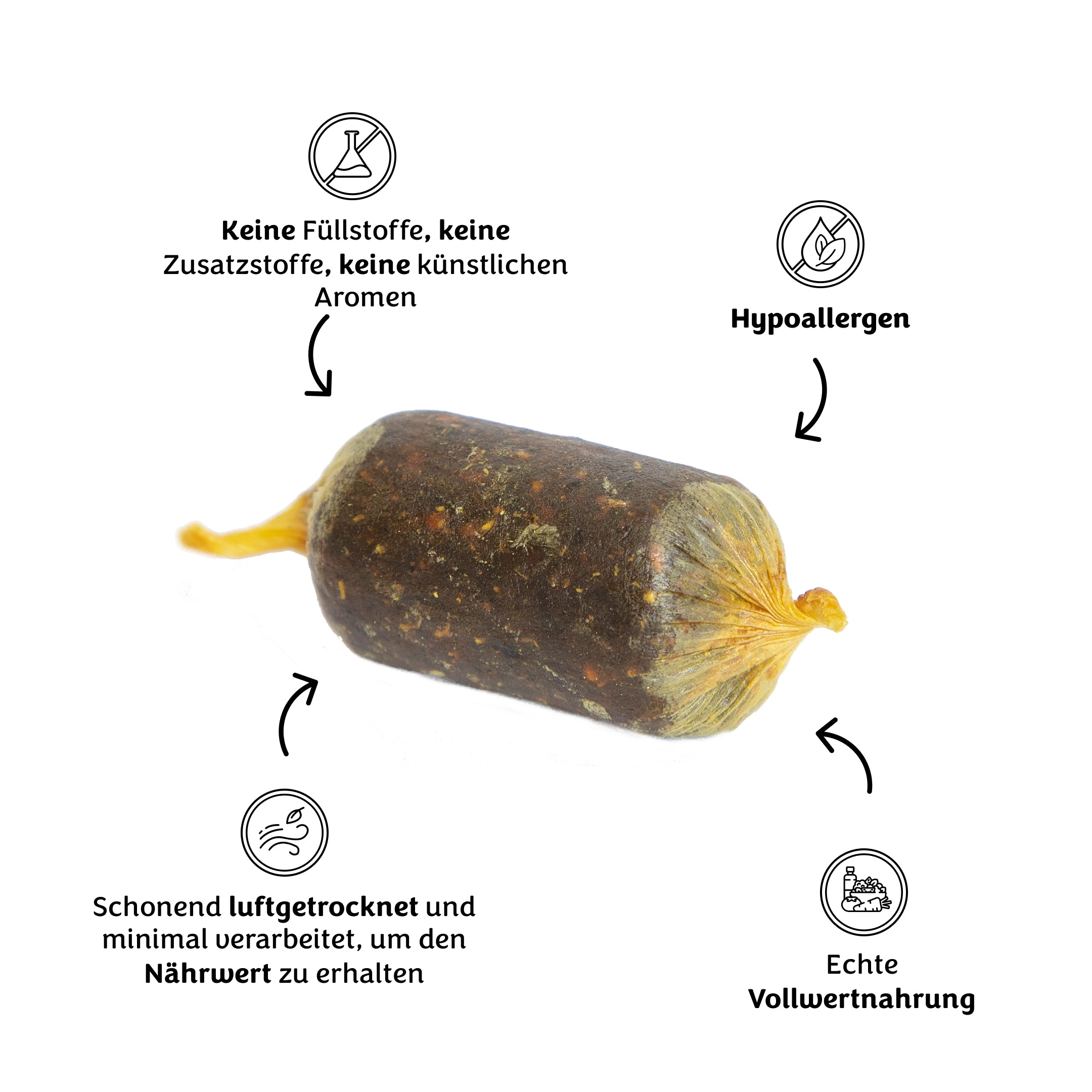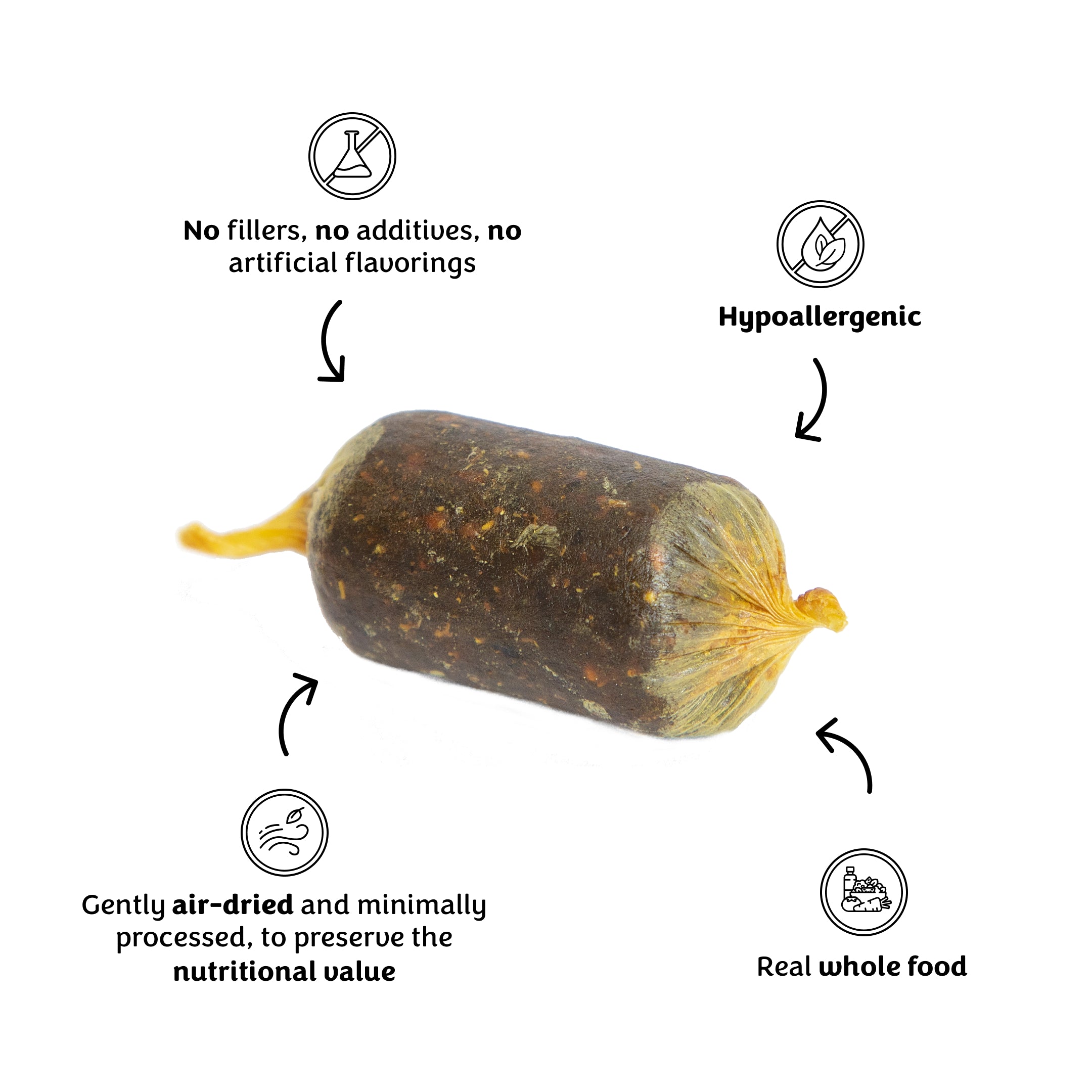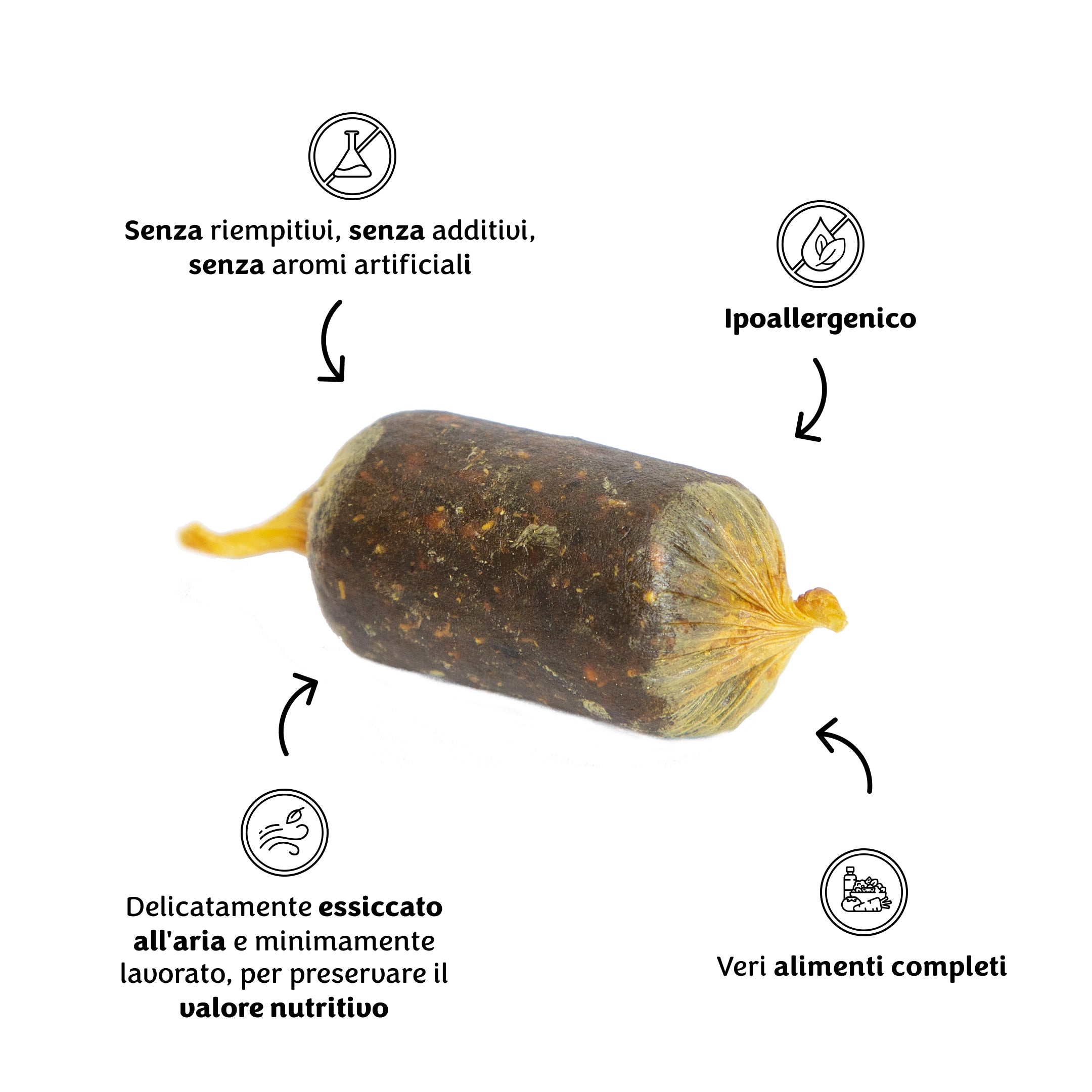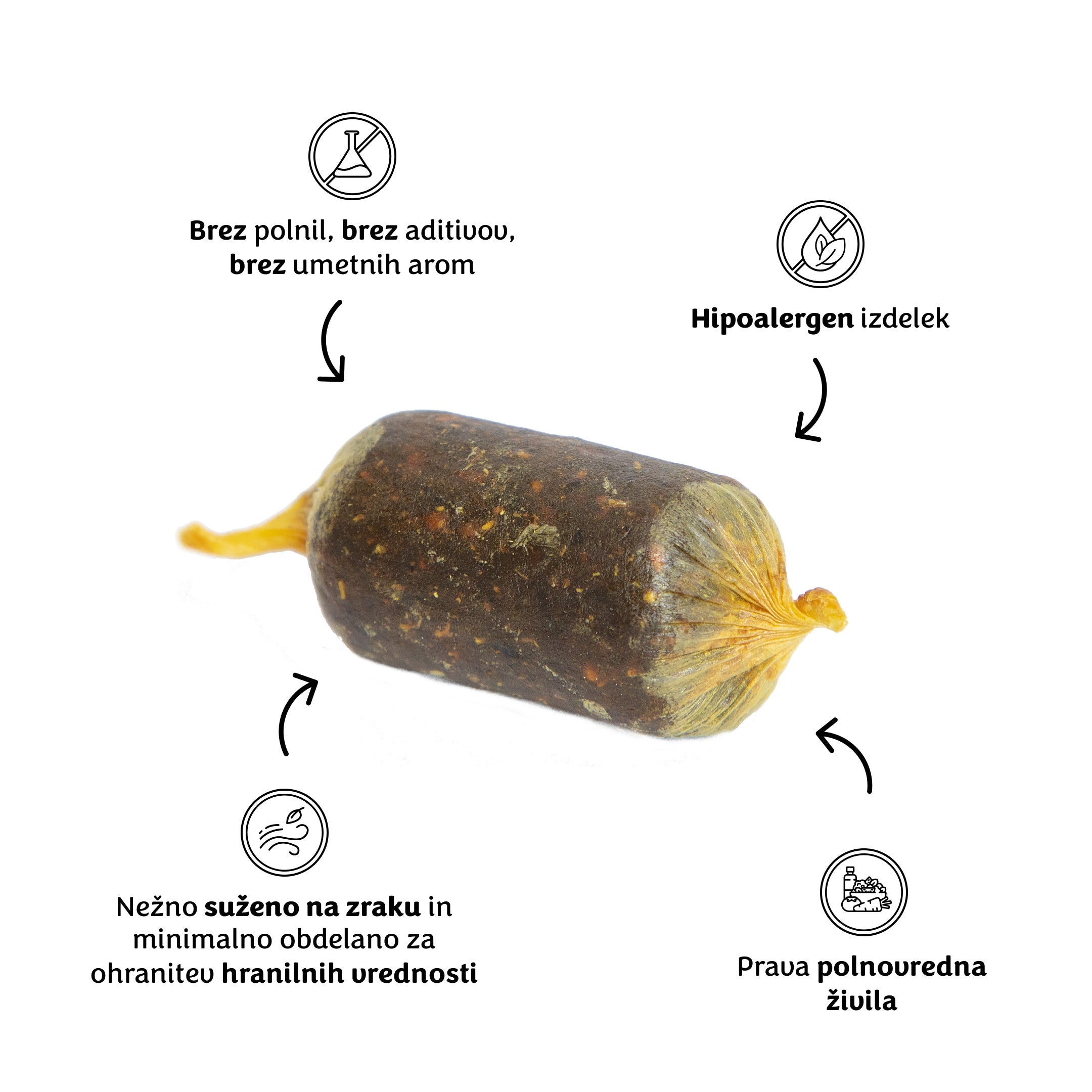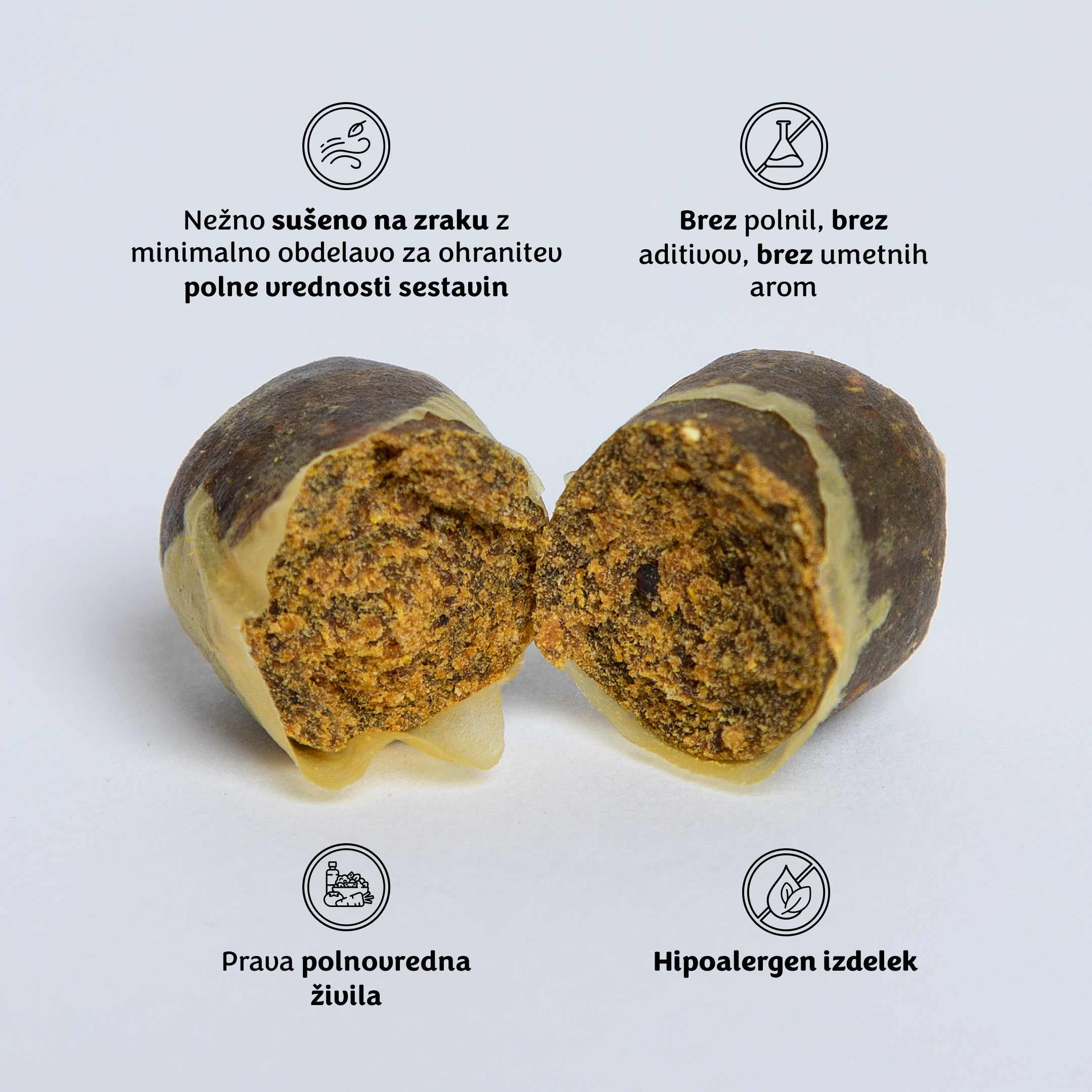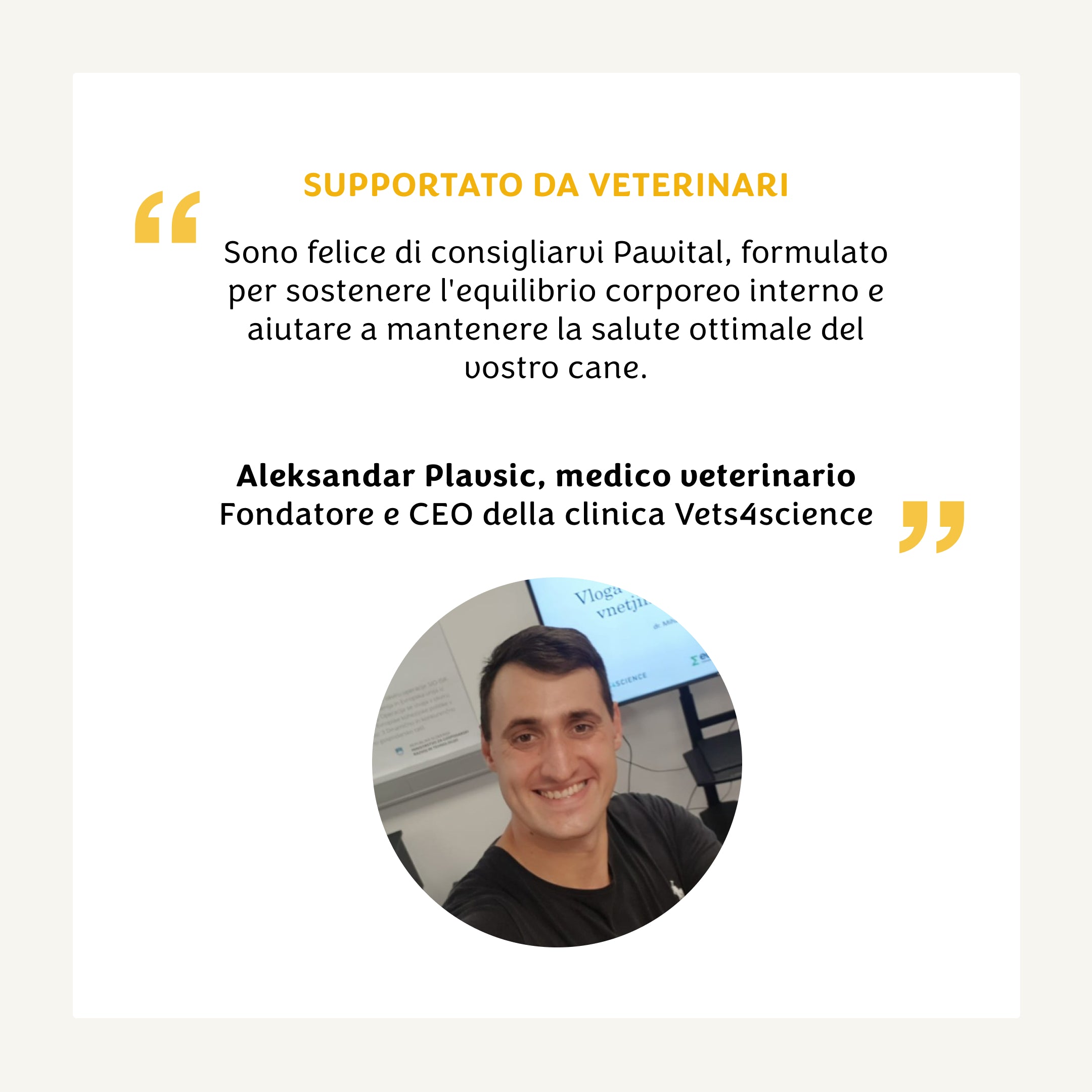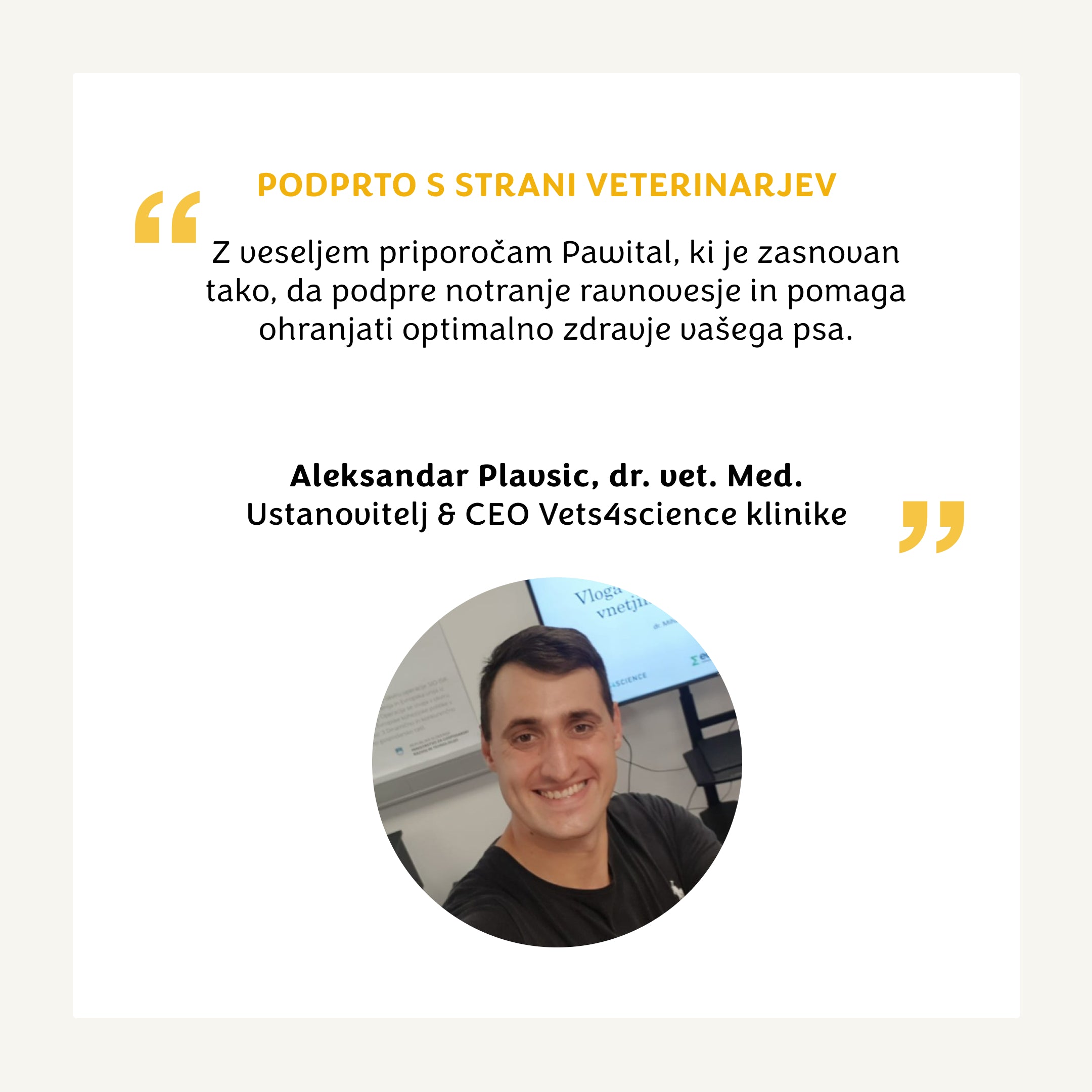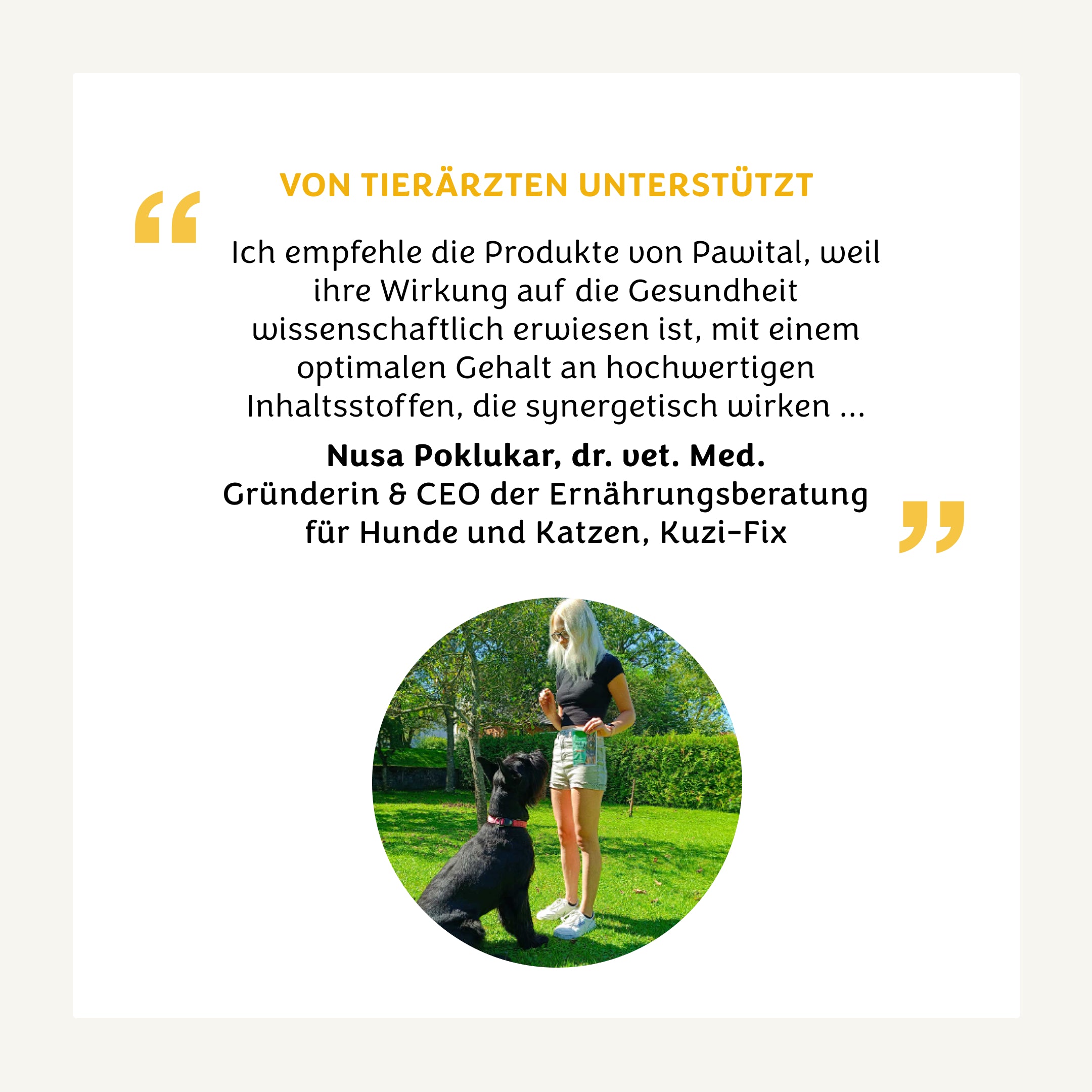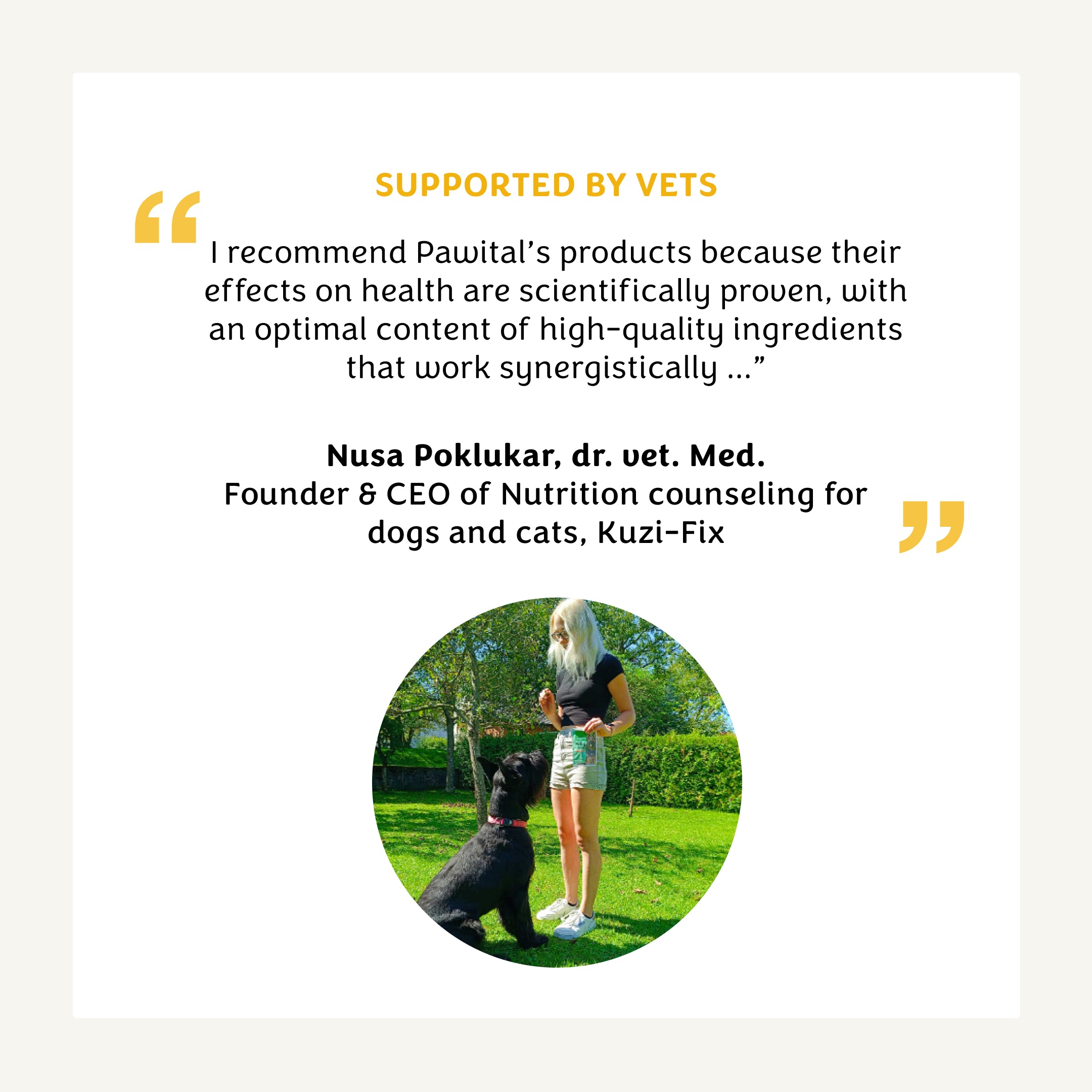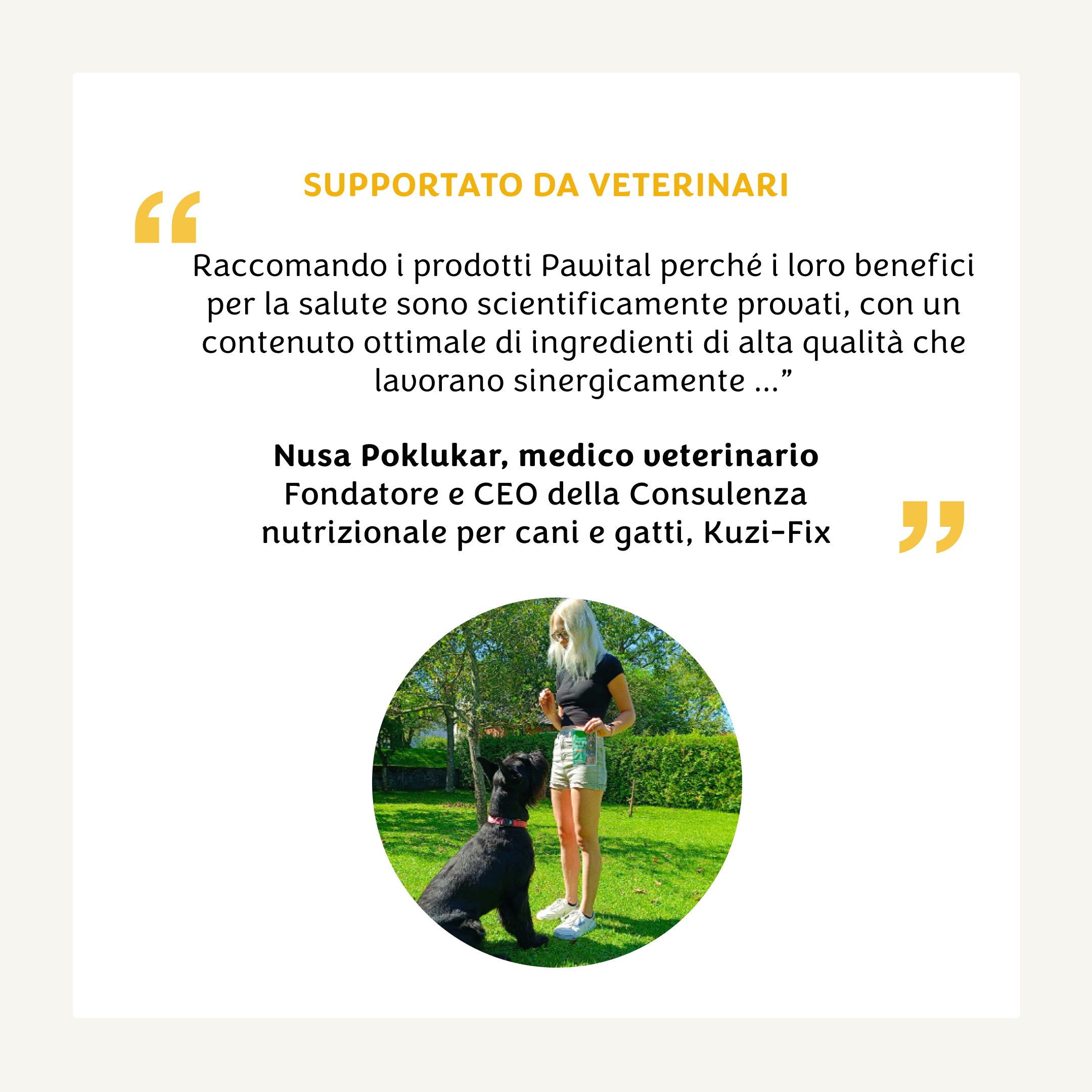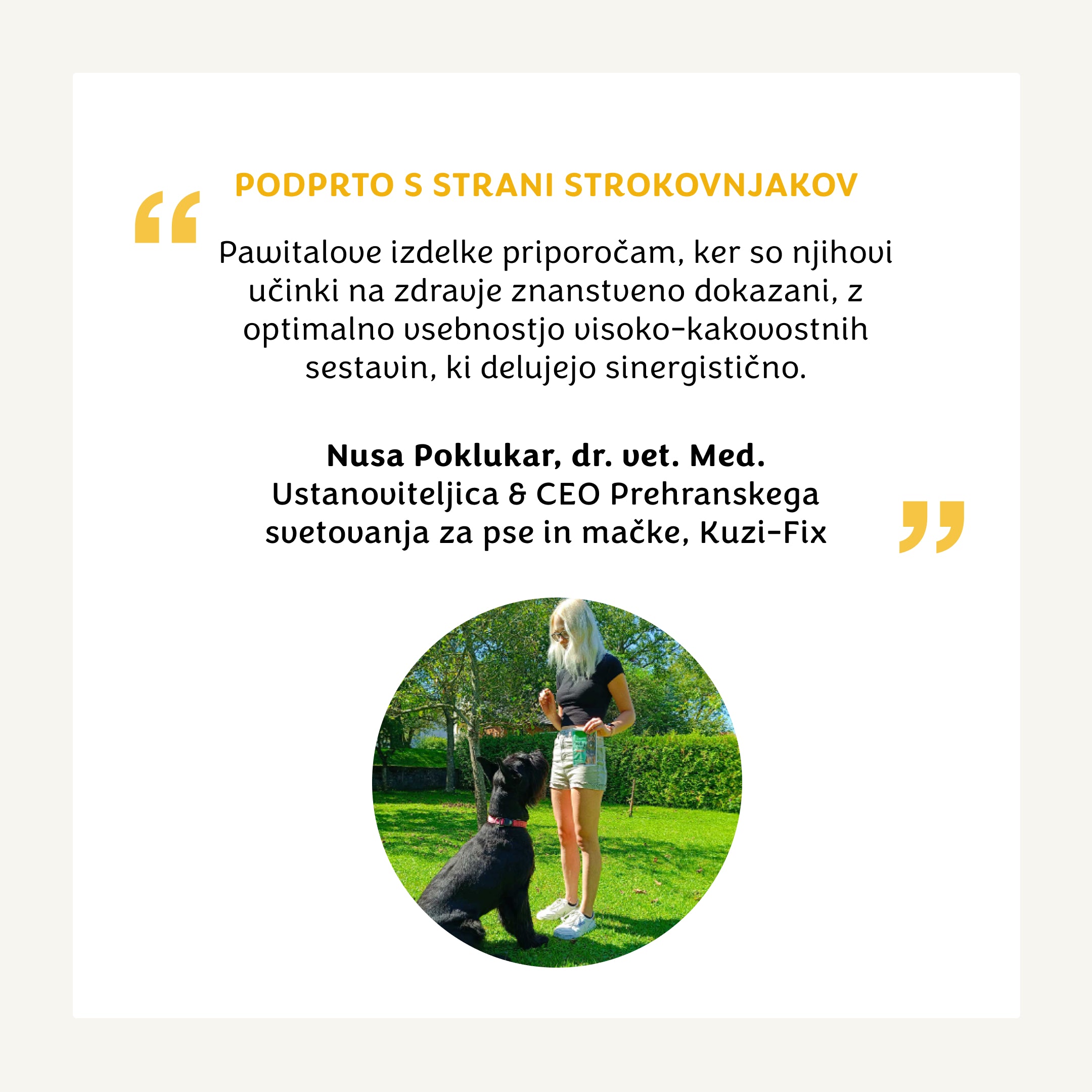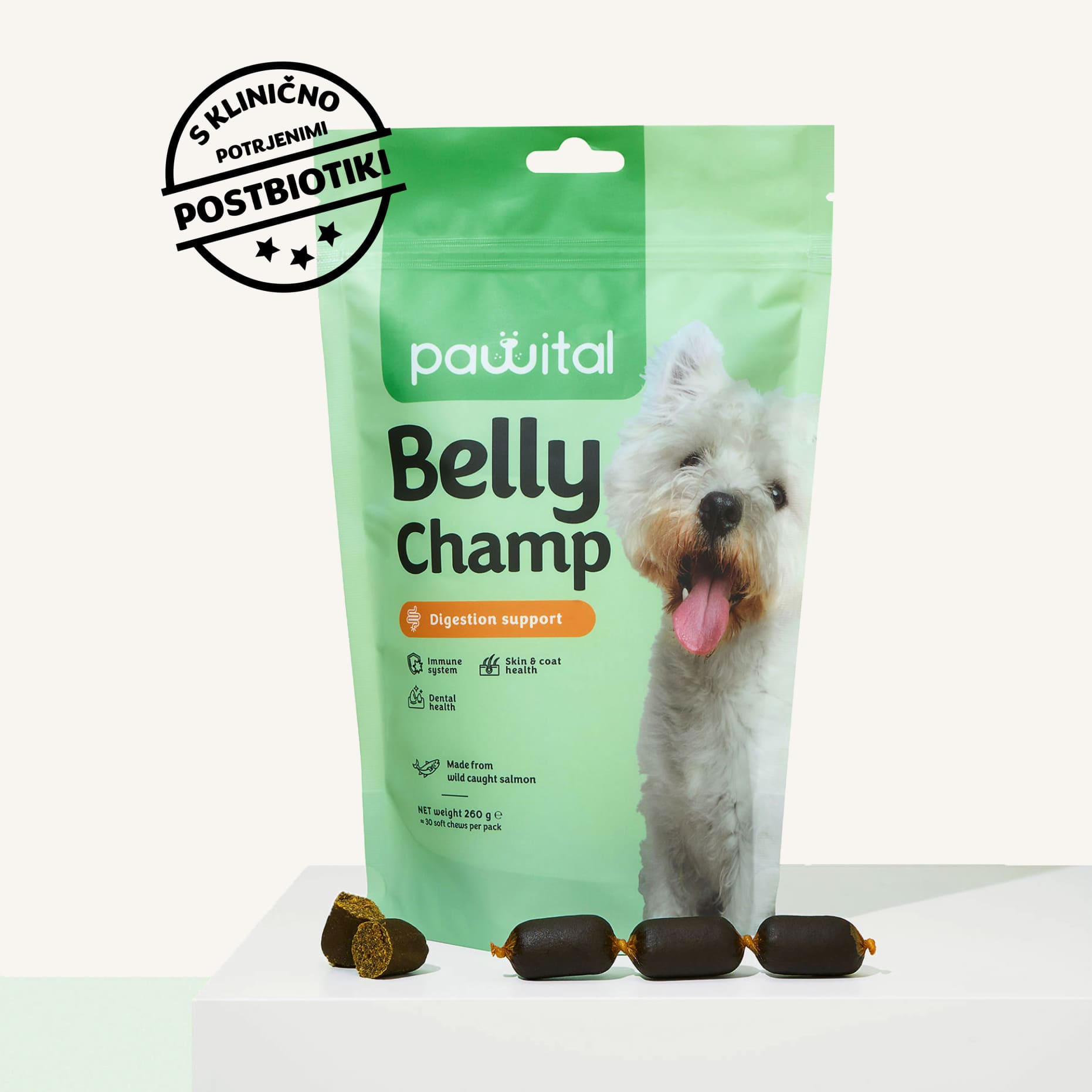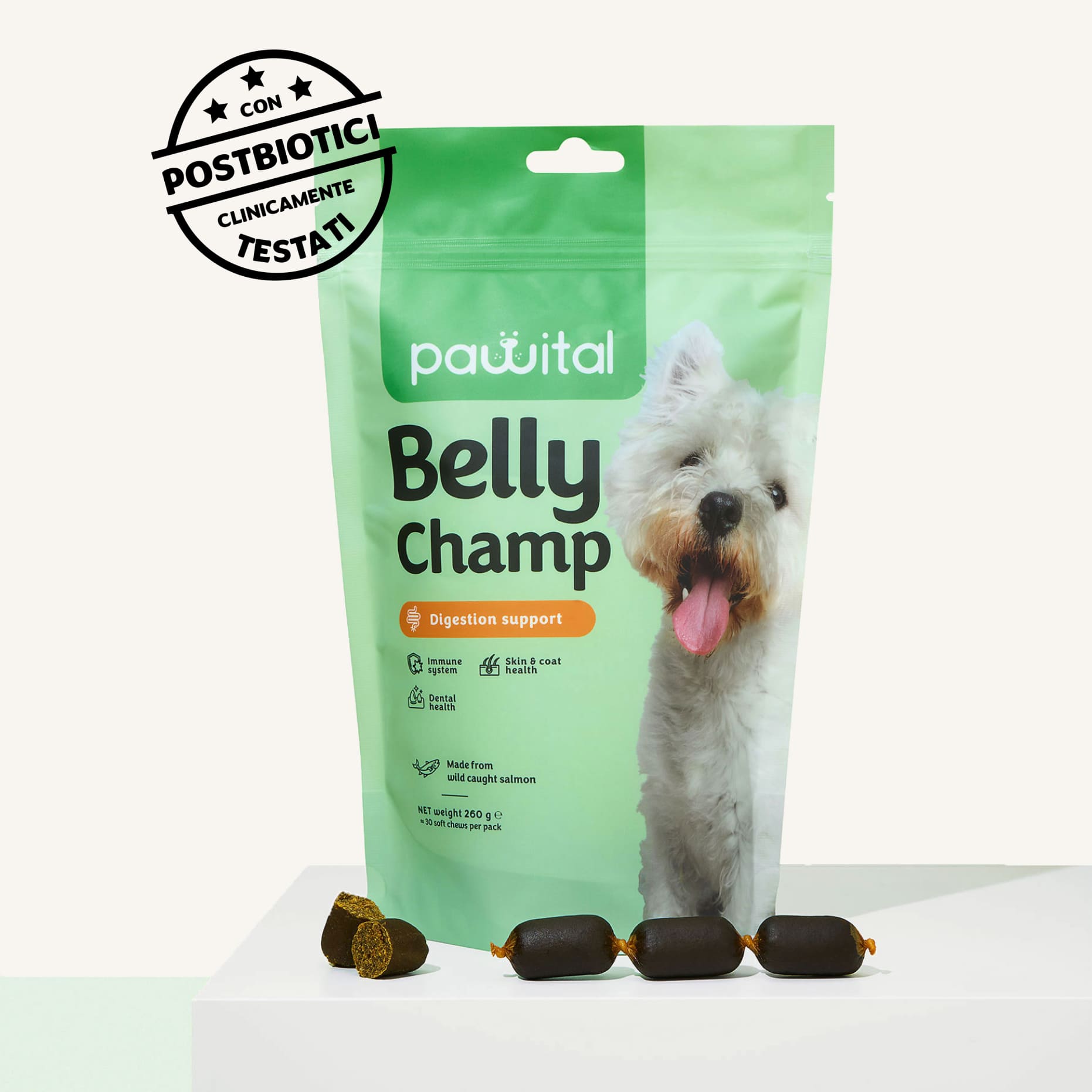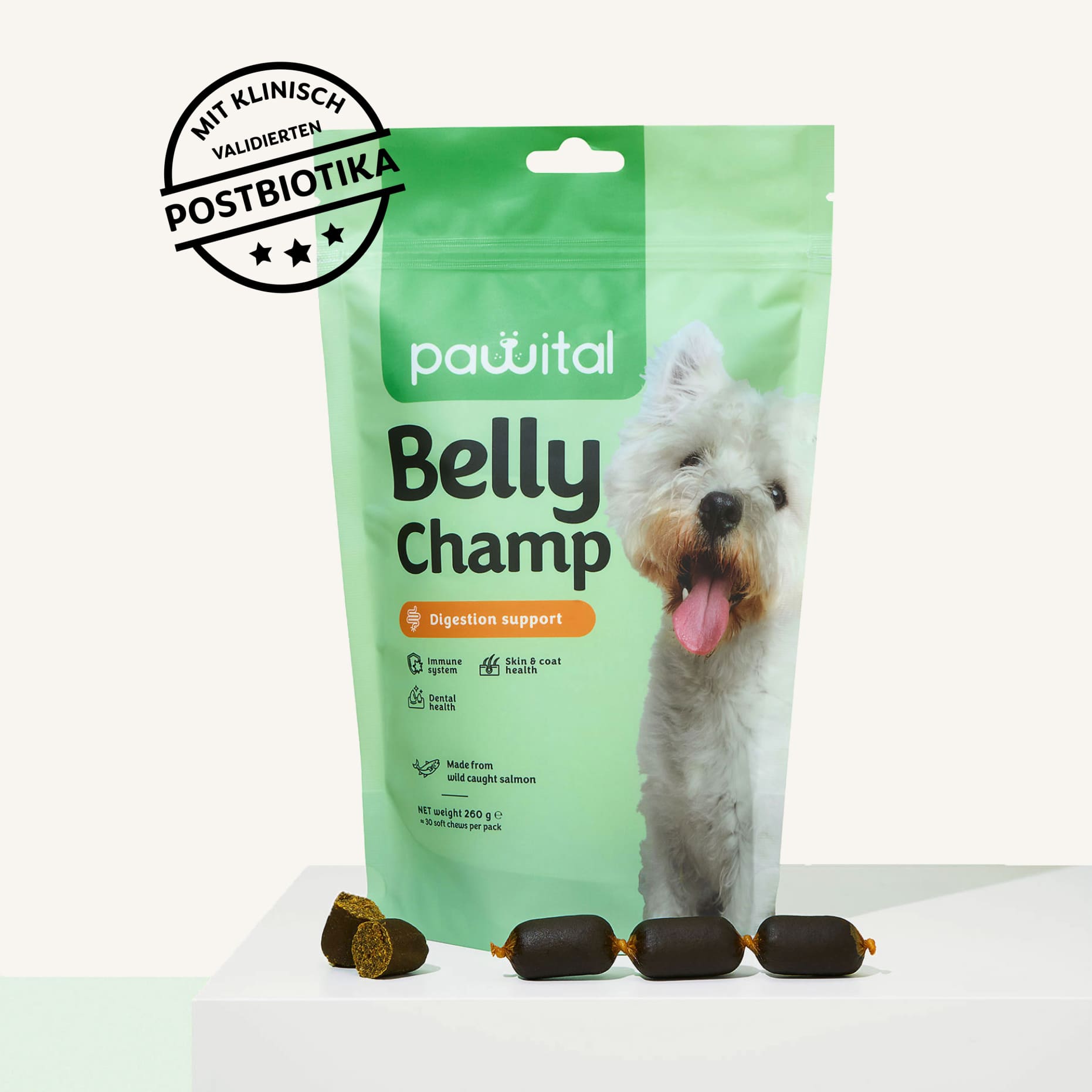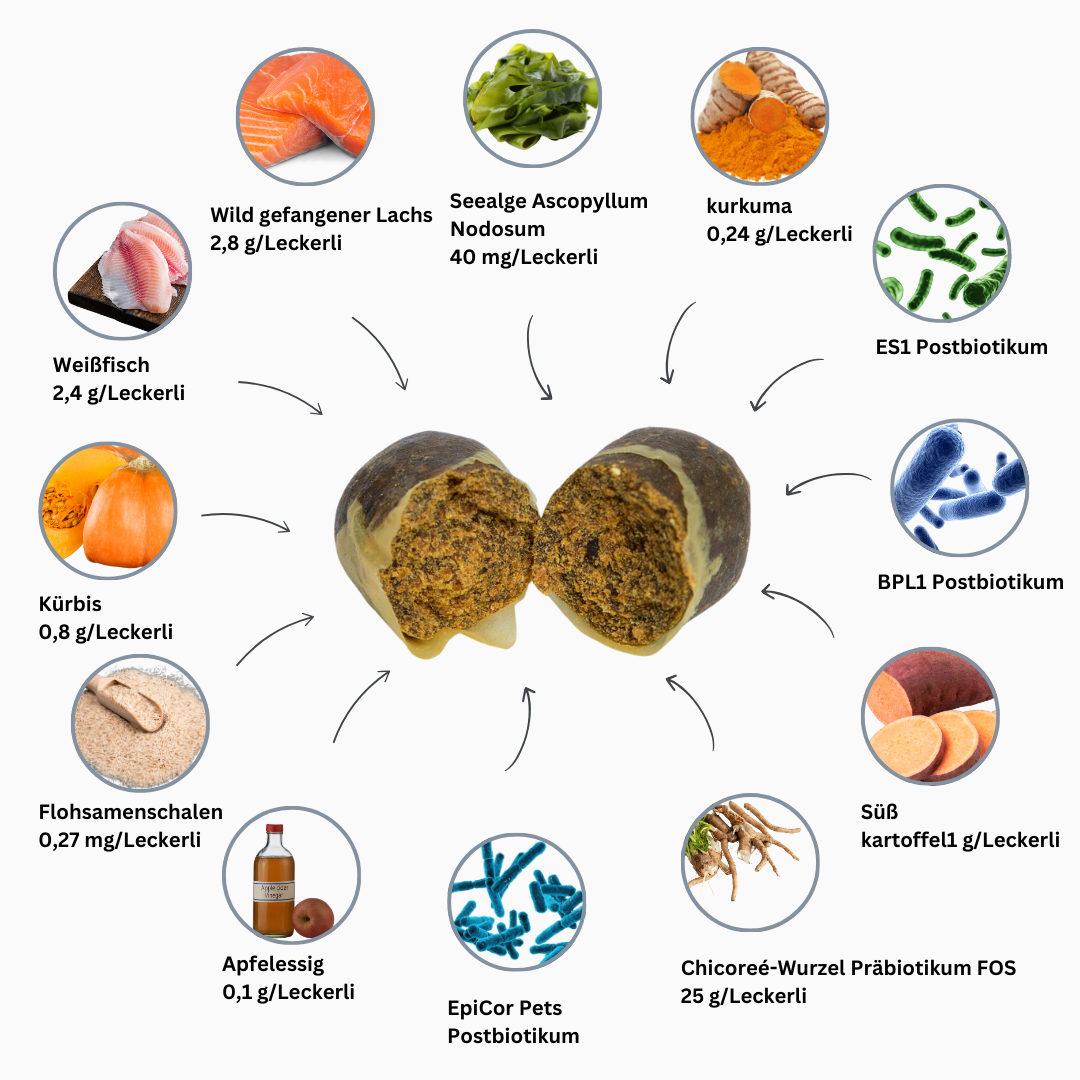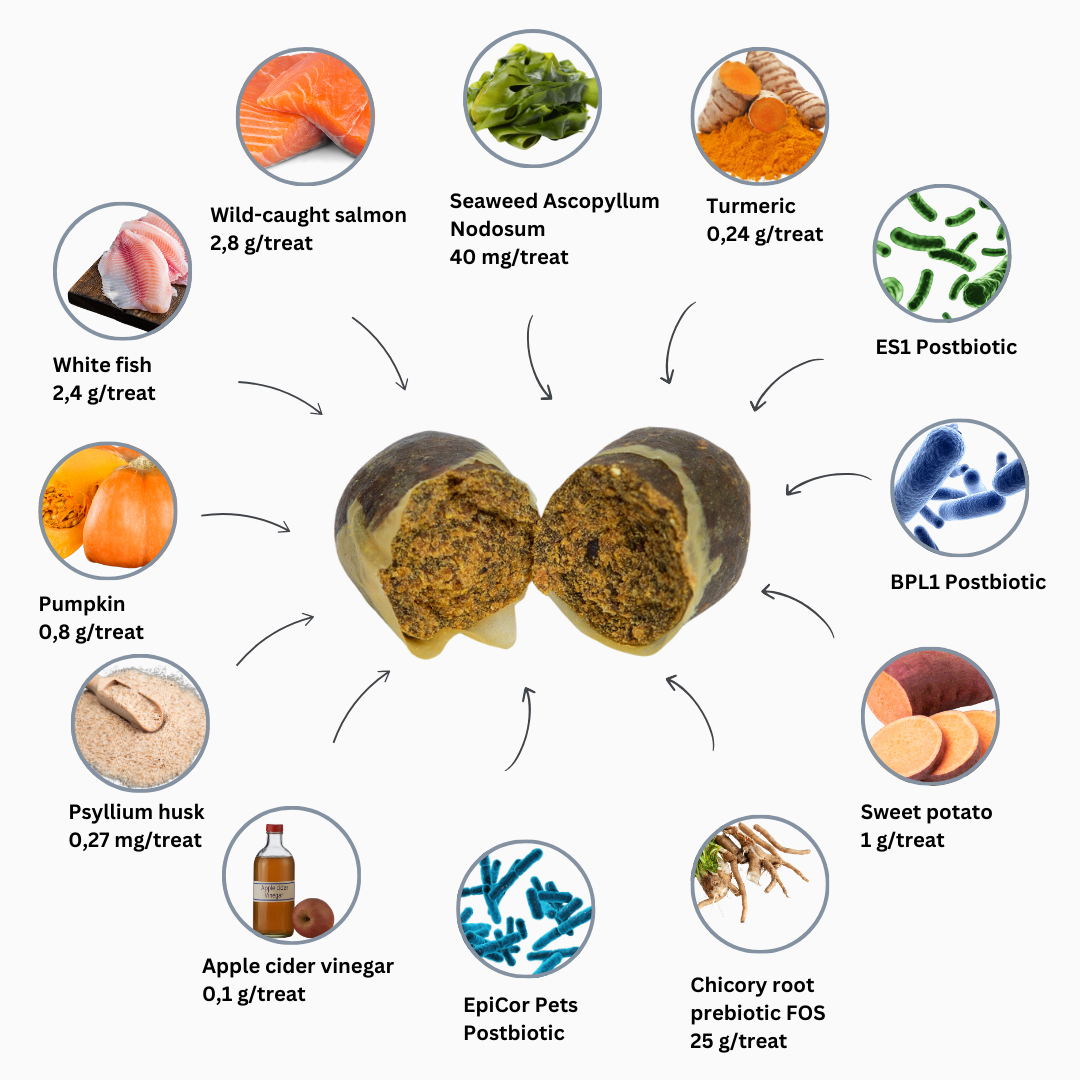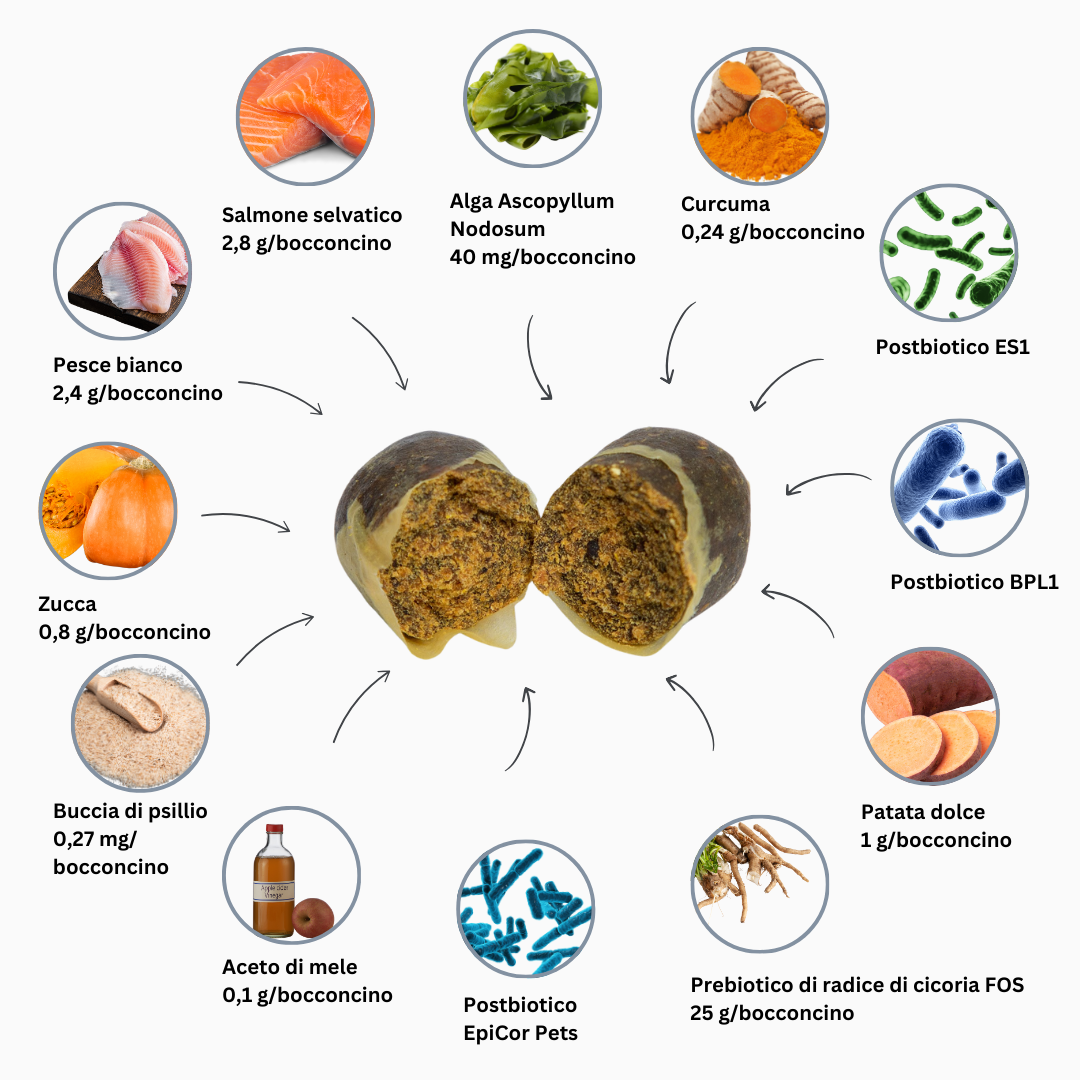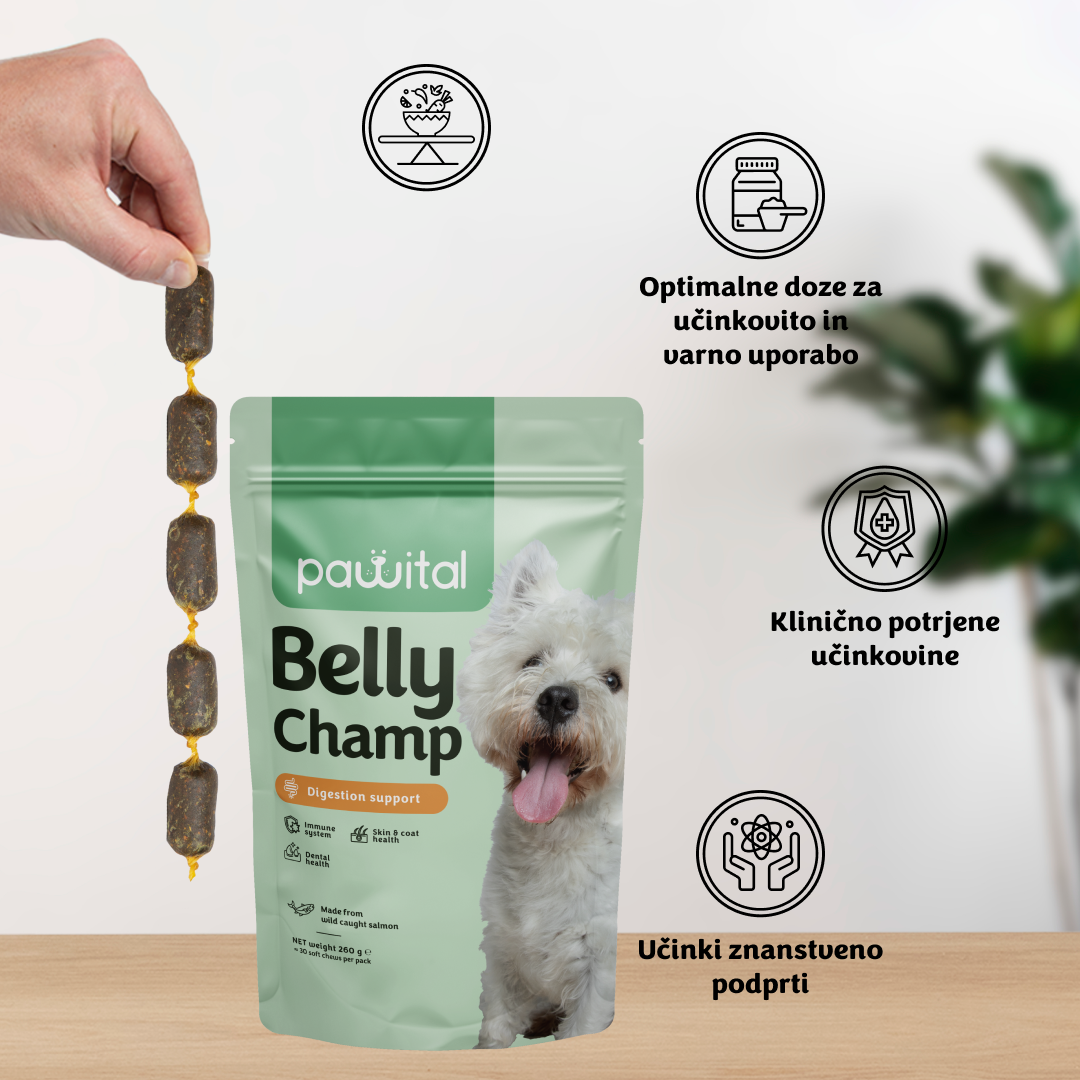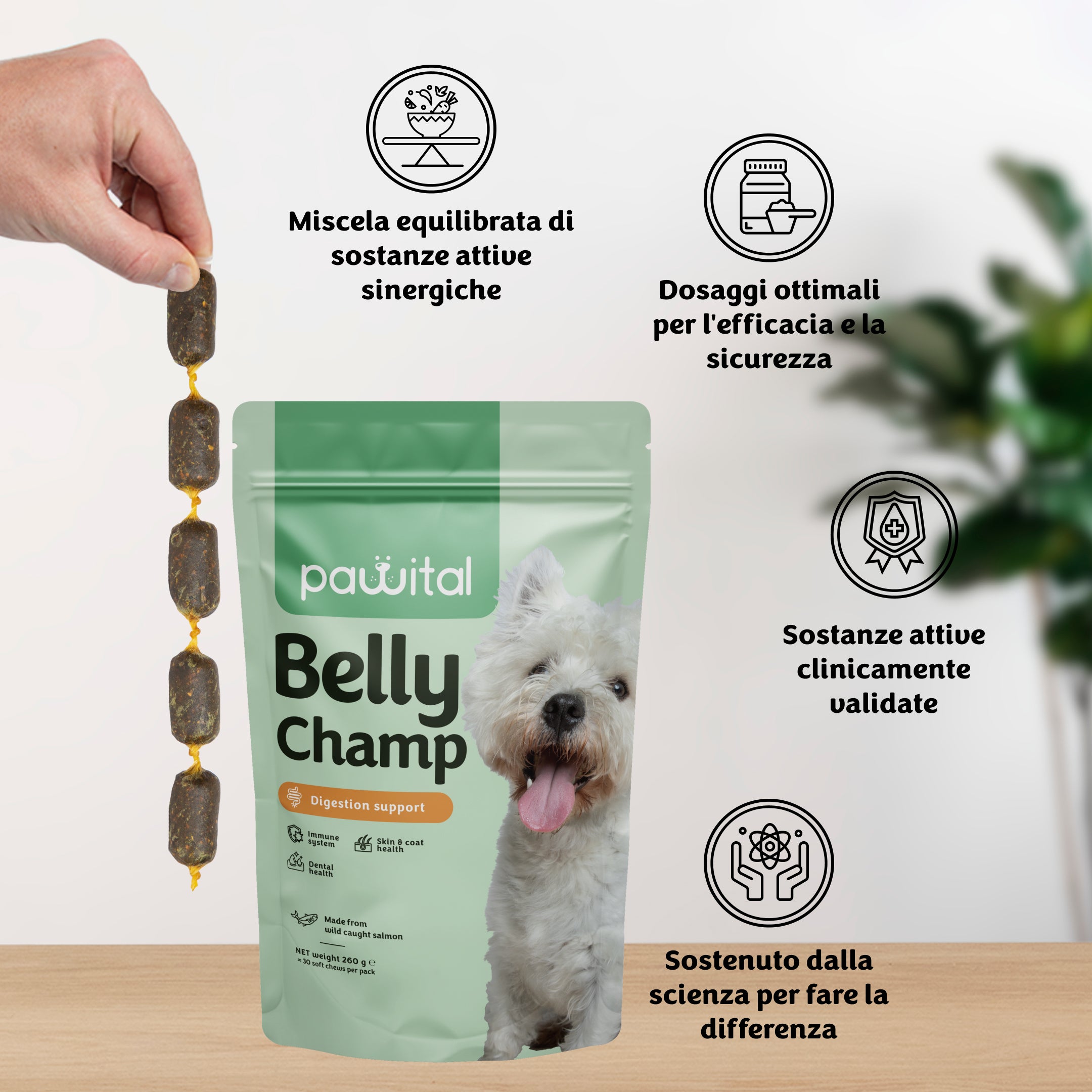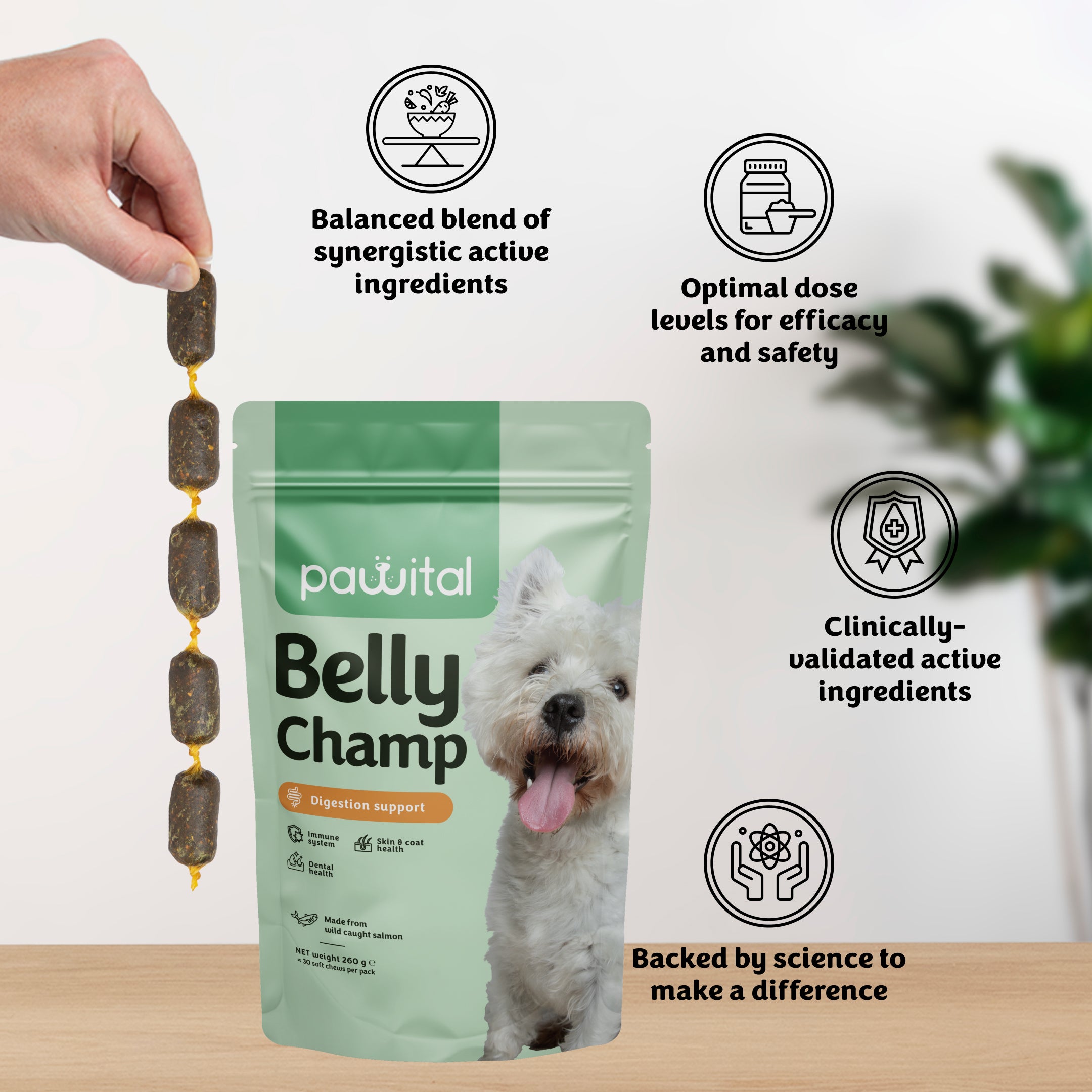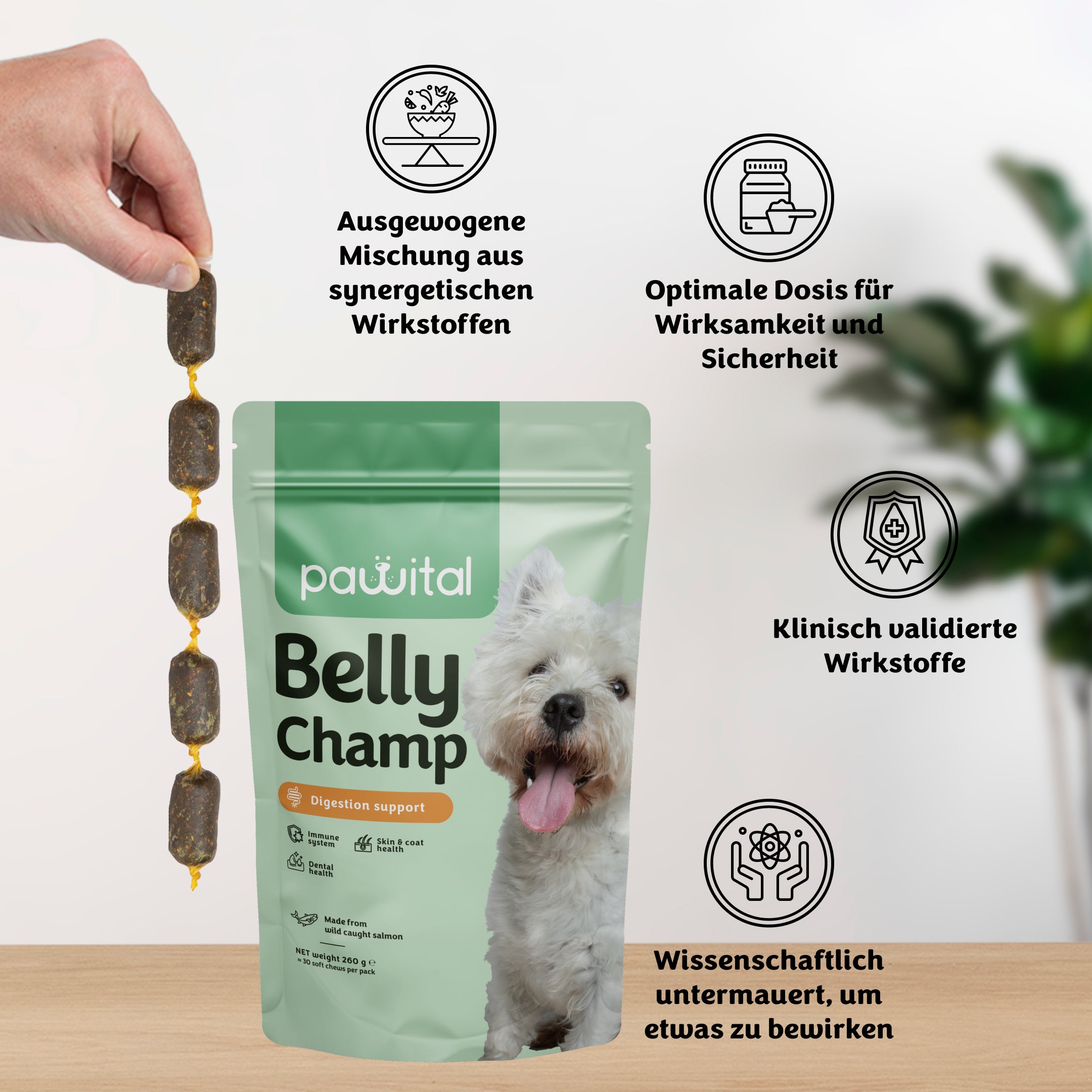Have you ever wanted to showcase your baking skills by crafting dog cookies? Here's an excellent beginner's recipe to kickstart your journey. It features six readily available ingredients from any supermarket, making it perfect for novice bakers.
Why opt for homemade dog treats?
The answer is straightforward: complete control over the ingredients. No artificial flavorings—just top-quality components that dogs adore.

Ingredients in the cookies
Salmon and sweet potato form the foundation, enticing every dog's taste buds. Beyond the flavor, these ingredients are rich in nutrients, complementing your dog's daily meals. We've incorporated chickpeas for added protein and fiber, a spoonful of sunflower oil as a natural preservative, an egg for cohesion, and a pinch of herbs for enhanced taste.

Why these ingredients?
Individually, these ingredients are a nutritional powerhouse, meeting all the dietary needs of dogs. Combined into cookies, it becomes a recipe for success.
Wild-caught Salmon
Rich in omega-3 and omega-6 fatty acids crucial for your dog's health, it reduces oxidative stress for joints, skin, coat, and gut health. Clinically proven to be more digestible than chicken, it's particularly recommended for dogs with sensitive stomachs. Choose high-quality salmon—refer to our article on Salmon labeling for guidance.
Sweet potato
A top source of vitamin A, promoting healthy skin, eyes, coat, nerves, and muscles. Additionally, it contains vitamins C, B6, potassium, calcium, iron, and serves as a significant source of fiber.
Chickpea flour
Another excellent source of protein and dietary fiber, aiding digestion, muscle tissue growth, and supporting a healthy immune system. Ideal for pet parents seeking a grain-free baking substitute to avoid grain-related allergies. In case of chickpea allergies, alternatives include oat flour, almond flour, rice flour, coconut flour, or quinoa flour—adjust quantities for the desired cookie dough consistency.Sunflower oil
A vitamin and antioxidant-rich oil beneficial for your pooch. It contains vitamin E, maintaining your dog's skin and coat health while acting as a natural preservative for the cookies. Additionally, it's rich in vitamin A, omega-6 fatty acids, and vitamin C.

Herbs
While avoiding classics like salt and pepper, certain herbs are safe and even beneficial for dogs. Commonly found in modern dog food, these include basil, chamomile, cilantro/coriander, cinnamon, dill, ginger, mint, oregano, parsley, peppermint, rosemary, sage, thyme, and turmeric. Use them sparingly in dog cooking.
Recipe
Ingredients
250g wild-caught salmon, sautéed and mashed
400g sweet potato, peeled, cubed, boiled, and mashed
350g chickpea flour (our flour of choice), plus extra for rolling out
1 large egg
1 spoon of sunflower oil
1 pinch of thyme, oregano and basil
Directions
1. Wash salmon under cold running water and sauté in a pan with water for 15 minutes, flipping midway. Set aside to cool.
2. Peel and cube sweet potato, boil for 8 minutes, and drain well. Set aside to cool.
3. In a large bowl, combine cooked ingredients, sunflower oil, spices, and egg. Blend with a stick blender or food processor.
4. Gradually mix in 350g of chickpea flour. Place the mixture in the fridge for at least an hour before shaping the cookies.

(Extra step: Fend mixture from your dog.)
5. Preheat the oven to 175 degrees Celsius with ventilation. Line a cookie sheet with parchment paper or a silicone baking sheet.
6. Dust a clean surface, rolling pin, and hands with flour. Roll out the dough to 3mm thickness, cutting out cookies with desired shapes.
7. Place cookies on the sheet and bake for approximately 20 minutes until completely dried out. Adjust oven temperature if browning occurs.

8. Transfer to a cooling rack after baking. Once completely cool, store in an airtight container for up to a month.

9. Clean the kitchen, you dirty animal. :)
Sharing is caring
Share your dog enjoying their new favorite cookie with our community:
IG: @pawital.pets
FB: @pawital.co.uk
Share this recipe with a friend.



